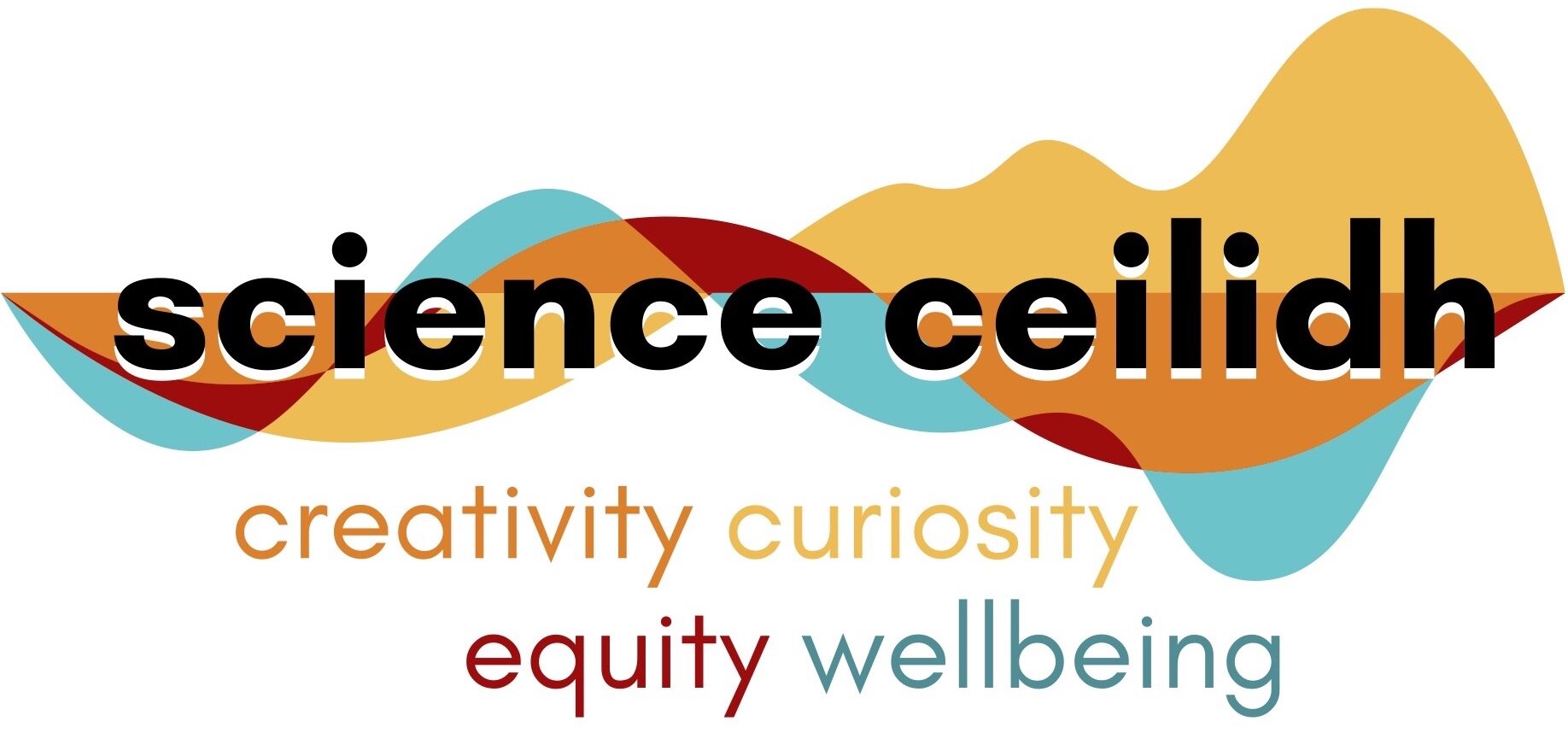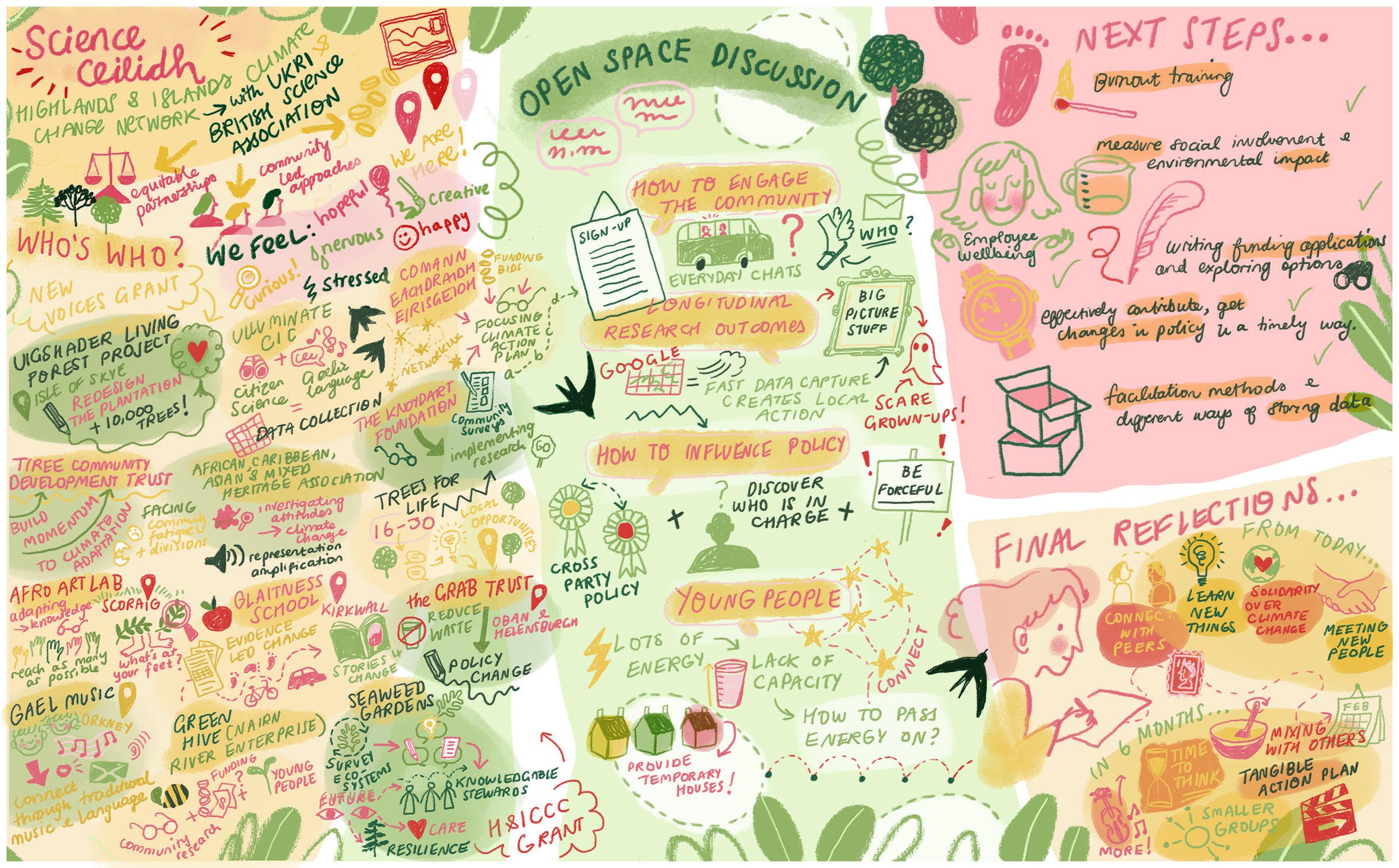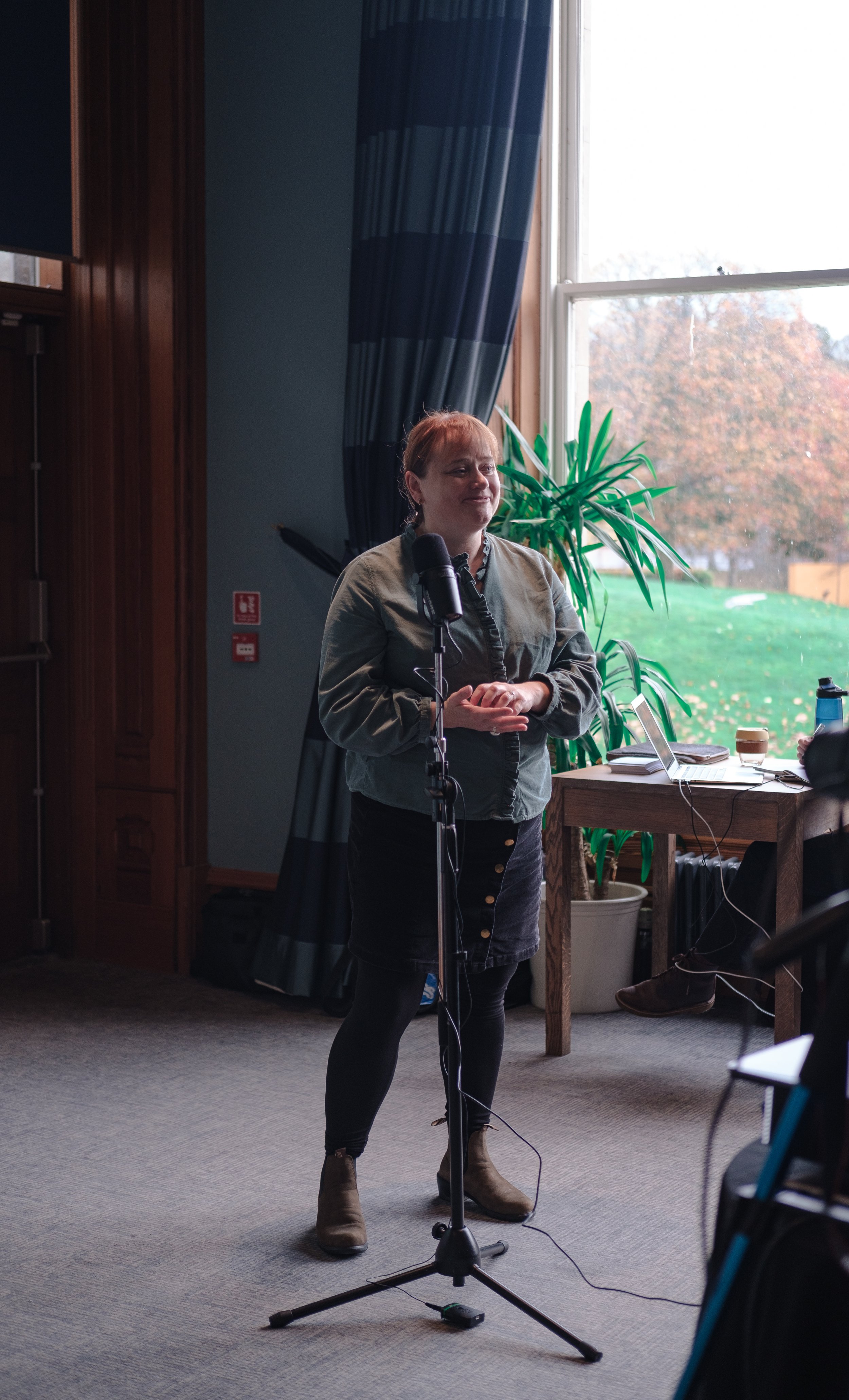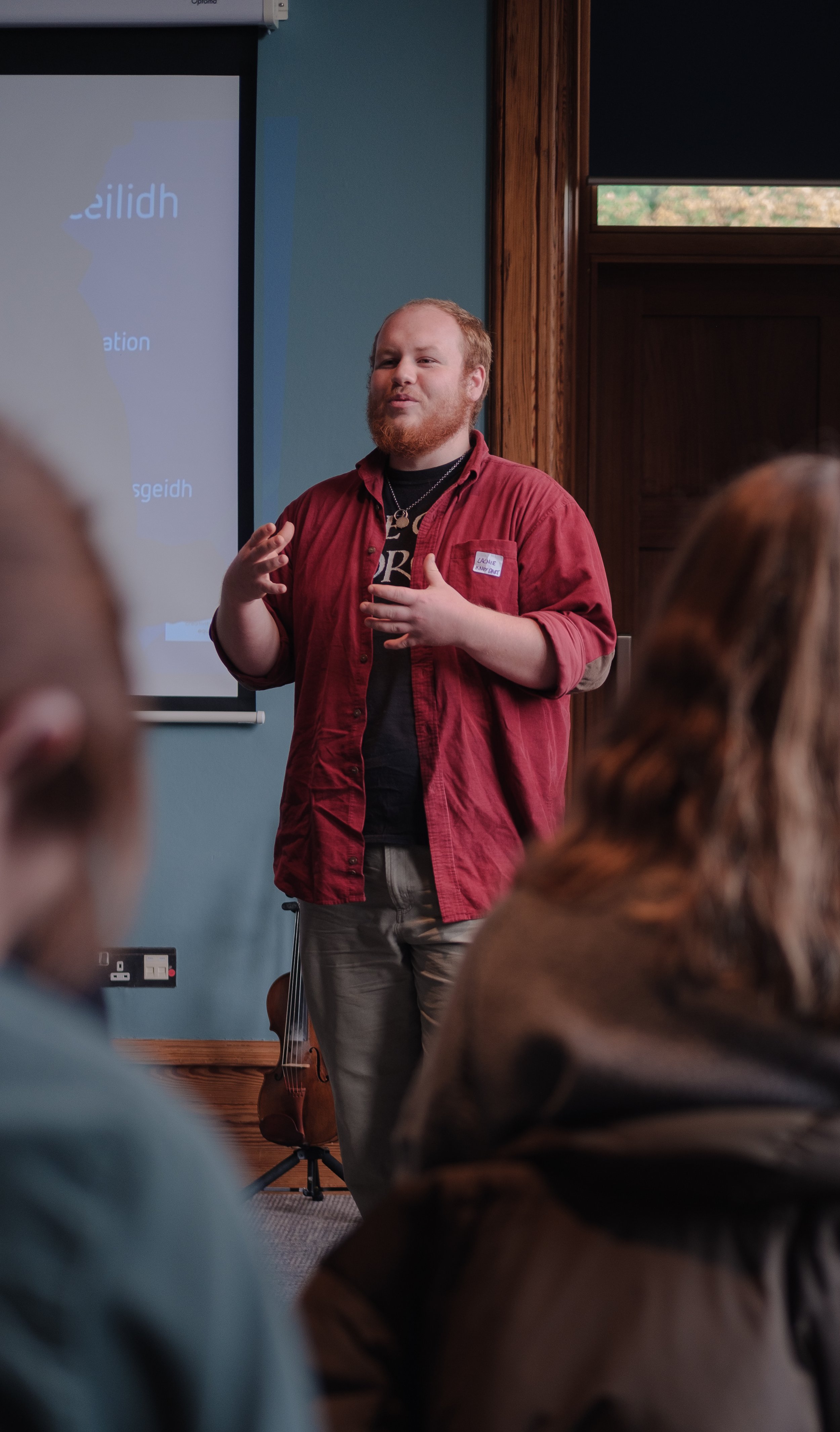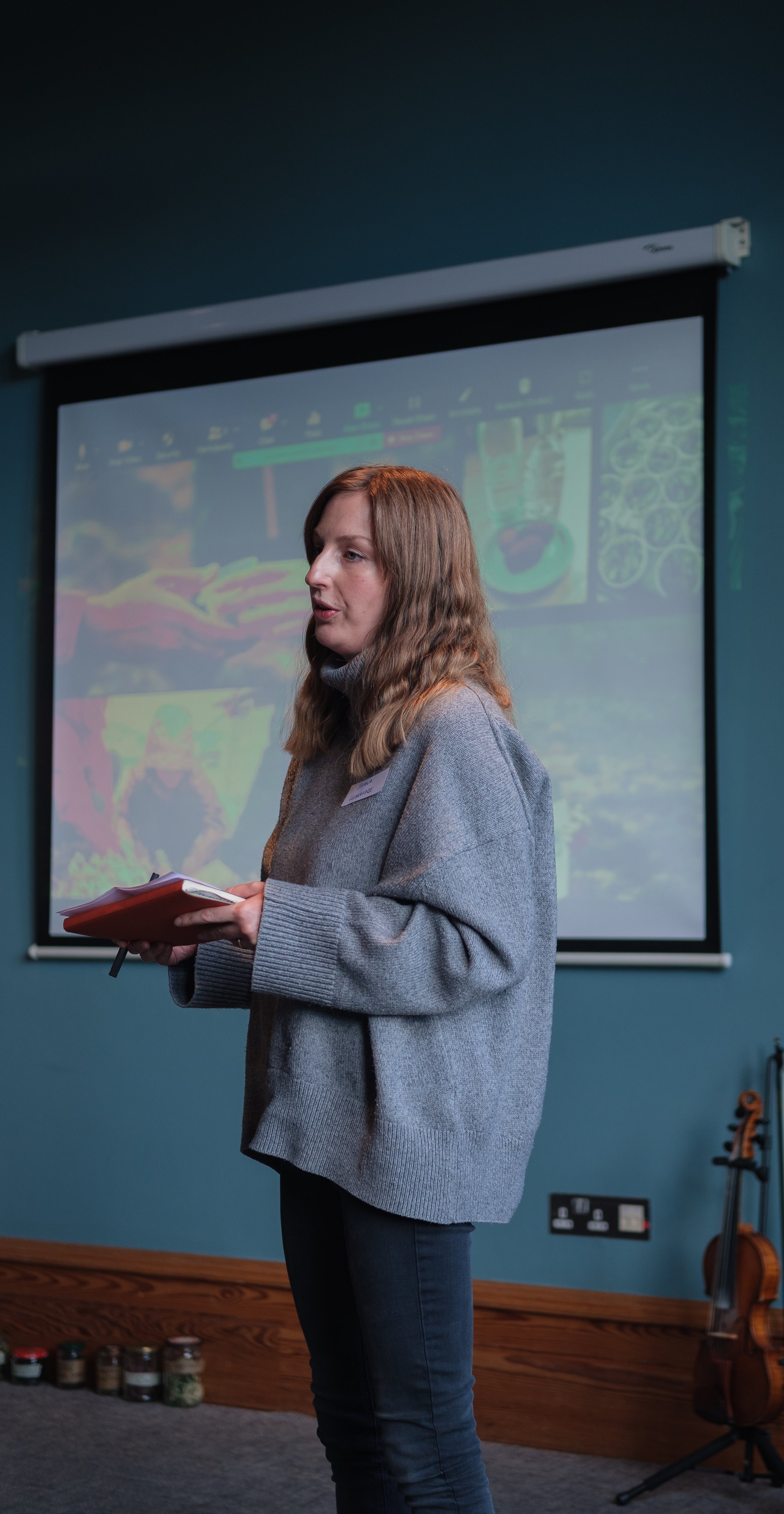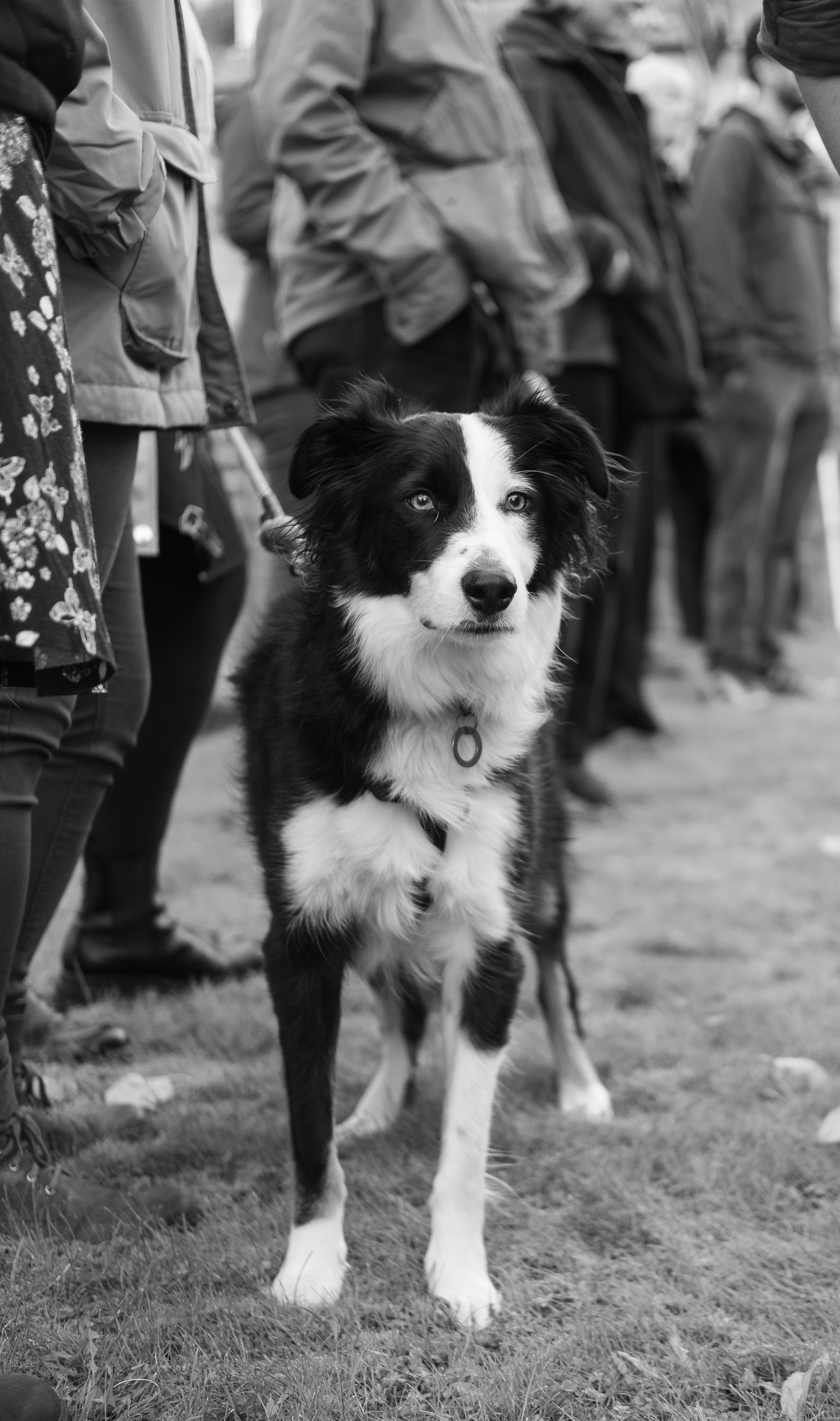Highlands and Islands Climate Change Community-Researcher Network
We have been supporting a network of community groups across the Highlands and Islands who are funded through small “relationship building” grants to lead partnerships with researchers that respond to local climate change issues in partnership with the British Science Association and funded by UKRI.
The programme also sought to explore how participatory grant giving which funds communities directly – alongside a package of support – can enable more meaningful knowledge exchange and capacity building efforts.
About the Programme
About the Programme
In Phase 1 (2022), 9 grassroots community groups across the Highlands & Islands were matched with professional researchers, to work on a climate change issue that mattered to them, with knowledge flowing both ways. You can read learnings from phase 1 of the programme here, alongside an impact report from UKRI.
In Phase 2 (2023-4), this programme was expanded with the launch of 6 “New Voices” Grants, designed to support new and amplify existing community ‘voices’ in the programme, giving priority to community groups that are often underrepresented in climate action, research & innovation including:
those from an ethnic minority background;
speakers of minoritised languages;
those who face disadvantage including in terms of educational and economic opportunities.
This sat alongside our Capacity Building Grants, for the first cohort of 9 funded partnerships, to build on learning from their community-led research projects, with tailored support for groups to strengthen their organisational capacity and identify ways to sustain community-led research in the long term.
This programme has now finished and you can see the learning and impacts here.
Anyone interested in finding out more about how communities can be supported to lead on (climate change) research, check out our Community Knowledge Matters network.
We also host a group on our online forum community lab for people interested in the role of community-led research around climate change specifically. Anyone is welcome to join the group for a chance to connect with peers.
Hear from some of our community-researcher partnerships about why they feel it’s important that communities are able to lead on research about climate change in their communities.
(Video credit: Paul Maguire Film)
Support Network
The groups were supported by Science Ceilidh throughout the programme through a series of Community of Practice sessions, emphasising peer learning and connectivity between projects across the Highlands & Islands, with one-to-one support also available.
A bespoke training programme was also developed to address specific needs and challenges that the groups were facing, as part of an attempt to build more widespread capacity for community-led research on climate change across the region.
We also host a group on our online forum community lab for people interested in the role of community-led research around climate change specifically. Anyone is welcome to join the group for a chance to connect with peers.
Impact & Learning
The Scottish Community Development Centre compiled a report exploring the impact of this kind of relational funding, supporting communities to lead on (climate change) research. Key findings from the report show that:
There was demonstrable value of the community groups being directly in charge of the budget which allowed them to plan out how best to use the funding to achieve their aims.
The community groups and researchers have developed strong, equitable and collaborative relationships.
The process of developing, growing and sustaining community activity is complex and requires time, resources and dedicated support. This is particularly important for groups who have the lowest capacity and who are working with underserved, marginalised and vulnerable communities.
One-to-one support, network building activities and opportunities for peer-learning helped to foster partnerships on climate change, and gave community groups new confidence in their ability to affect local change and engage in research.
Capacity building funding, that was not tied to project delivery, was innovative and helped to address underlying issues of capacity for many local groups, which can have an impact on their ability to successfully deliver their projects and particularly to take follow-up actions based on their findings.
Climate change work was a real ‘anchor’ for communities and researchers to collaborate – while climate is not always an easy topic to engage in, it is something that everyone has a stake in.
HICCCN Training Programme
In response to conversations within the Highlands and Islands Climate Change Community Network about capacity building in community-led research, Science Ceilidh designed a tailored training programme to cover the topics the network deemed most necessary and useful. Check out the training programme and accompanying resources, exploring:
- Navigating Challenging (Climate) Conversations
- Managing Volunteers & Community Leadership Skills
- Policy, Impact & Community Engagement
- Measuring Environmental Impact from Community Perspectives
- Burn Out Prevention & Recovery
You can also read our blog describing the needs behind the capacity building programme.
‘New Voices’ Grants
Find out more about the 6 projects who have received the Highlands & Islands Climate Change Community ‘New Voices’ grants.
Visual notes from our in-person Community of Practice in Inverness on 4th September 2023, by artist Phoebe Roze.
About the Grant Programme
The Highlands and Islands Climate Change Community Grant aims to empower communities who are underrepresented in research to take action against a climate change issue that matters to them by working with researchers.
This scheme aims to develop equitable, collaborative relationships between local communities and researchers, and also explore how participatory grant giving to communities directly and support can enable knowledge exchange and capacity building.
The ‘New Voices’ Grant is designed to support new and amplify existing community ‘voices’ in the programme, giving priority to community groups that are often underrepresented in climate action, research & innovation including:
Communities in the Highlands & Islands...
From ethnic minority background
Who are speakers of minoritised languages (including gaelic) &/or
Who face disadvantages including in terms of education and economic opportunities
This fund offers:
Tailored support for communities to connect with a researcher & lead local climate action together
Grants of up to £5000 to support your partnership
Peer connections as part of our wider climate action community-researcher network
Meet the ‘New Voices’ Projects
Afro Art Lab will work with the community of Scoraig to use citizen science to map the biodiversity of the local environment, creating a snapshot of the Scoraig peninsula’s flora and fauna. The project will be supported by researchers, Professor John Hedger and Neil James.
The African, Caribbean, Asian and Mixed Heritage Association (ACAMHA) will explore what climate change means to people with African, Caribbean, Asian and Mixed backgrounds living in the Highlands and Islands, in order to tackle the lack of representation for these groups in the UK’s climate change activism. They will work with the researcher Mandy Haggith.
Tiree Community Development Trust’s project aim is to build momentum towards taking ‘adaptation action’ on Tiree. The group plans to build a community-informed evidence base, demonstrating how Tiree’s landscape and community will be impacted by climate change, and what adaptation and resilience solutions are acceptable to the community. They will be working in partnership with Leslie Mabon, Lecturer in Environmental Systems in the School of Engineering and Innovation at the Open University.
Gael Music Trust will deliver a project that focuses on the life and work of John Rae (1813-1893) who was known by the Royal Scottish Geographical Society as “Scotland’s Forgotten Arctic Explorer”. Using Rae’s story as a starting point, the project will use a composer-as-communicator model to research a variety of tunes and folk tales that will lead to 18 hours of workshops in three Orkney primary schools. They will be working alongside Orcadian musician/teacher and researcher, Jennifer Wrigley.
Uigshader Living Forest Project will work with Beth Bridge, a PhD researcher from Scotland’s Rural College and the University of Edinburgh, to design a multi-year survey protocol to assess bat, bird and small mammal populations on the site to see how they change throughout the restoration of Uigshader Woodland.
Ulluminate CIC will be working with PhD researcher, Lisa MacDonald, to look at the nature and extent of the use of Gàidhlig in citizen science. In particular, the research will focus on birds, and their migration patterns.
Previous examples of how communities and researchers worked together include:
Spending time getting to know each other and sharing each other’s skills and knowledge around climate change issues, working with communities, or research ideas and techniques.
Researchers training community members on how to design and run the research - from interviewing other volunteers of the community about their priorities to planning citizen science projects and running carbon audits.
Researchers supporting the community to expand an existing project, e.g. developing a reusable cup trial for businesses and sharing talks with the wider community around sustainability and consumption.
Recorded webinar giving details of the grant, the application process, and the researcher matching process.
Capacity Building Grants
Find out more about the 9 projects who have received the Highlands & Islands Climate Change Community ‘Capacity Building’ grants.
About the Grant Programme
The Highlands and Islands Climate Change Community ‘Capacity Building’ grants aim to support the communities and partnerships funded in phase one of the grants programme, to strengthen their organisational capacity and identify ways to sustain community-led research more long-term.
The grant of £2000 is designed to be spent on internal organisational development rather than project delivery. This grant also comes with a package of hands-on tailored support and peer-learning facilitated by Science Ceilidh, including free training, mentorship and curated networking opportunities.
This support is offered to address systemic issues and barriers facing the sector, as well as responding to local needs and organisational circumstances.
Video case study of one of the projects funded by the Highlands & Islands Climate Change Community grants in phase one.
Meet the ‘Capacity Building’ Projects
Green Hive will use their Building Capacity grant to work on embedding sustainability within the Green Hive team so that they can continue to use research methods within their community. This would potentially include the creation and funding of a new post within Green Hive to specifically work on future community research engagement.
Trees for Life are using the Capacity Building grant to develop the framework for a network that will bring various stakeholders together, from landowners to community members, with young people at the centre – akin to an environmental youth parliament for the Highlands.
Cothrom plans to host a gathering event for the writing group from the first phase of the project, providing an opportunity to collectively think about how the project could continue and possible next steps, including distribution avenues, consolidation and creation of resources to facilitate the use of the model elsewhere, potential partners for further project development, and possible funding for a part-time position.
The Knoydart Climate Action Group (KCAG) is using the Capacity Building grant to apply for additional funding to finance a project coordinator who will oversee the continued development and implementation of their Climate Action Plan project, building on the learnings from the first phase.
GRAB Trust will use the Building Capacity grant to hold a “Rubbish Summit” in Oban, sharing the preliminary results from their reusable cup trial with stakeholders, whilst also facilitating discussions to try to address the barriers that the trials identified. It will also enable the community group to present the results at the Academy of Marketing Conference 2023 in Birmingham, as well as submitting them to the European Journal of Marketing.
CLIMAVORE are using the Building Capacity grant to develop a shared framework for community-led research, engagement and knowledge production. They also aim to create a toolkit for communities to embark on ecologically regenerative and socially reparative intertidal aquaculture.
Seaweed Gardens is using the Building Capacity grant to bring the group together for an in-person workshop to reflect on the project so far, discuss ways in which they would like to take it forward, and create a vision and sense of identity for the group that grounds the plans in collective ownership and care. Ideas and goals that are generated from the discussion may then be used for further funding applications to keep the project moving, including for a potential paid position, so that the group doesn’t have to rely on unpaid time.
Glaitness Primary School are using the Building Capacity grant to reflect on the first phase of the project, and to plan future steps. They will hold focus groups with students (Net Zero Heroes), parents (parent council), and teachers to explore infrastructural barriers and organising principles, and to hold a whole-school community validation to decide about the rules from the ground up. The Orkney Island Council and Sustrans will be involved as well.
Comann Eachdraidh Eirisgeigh (CEE) will use the Building Capacity grant to source funding to employ a long-term ‘Climate Action Officer’ to build on the learning from phase one and implement Eriskay’s Community Climate Action Plan. The grant will enable them to work with consultants, Community Enterprise, to help with the recruitment of the Climate Action Officer and support other aspects of CEE’s ongoing viability and activities.
Phase One
Find out more about phase one of the Highlands & Islands Climate Change Community Grant Programme
First Cohort Projects
Green Hive an environmental charity in Nairn, created a Community Researcher project to explore the experiences of people who volunteer with them in their work towards a ‘Net Zero Nairn’. Their researcher trained community volunteers in research skills and guided them through the process of becoming peer researchers, designing and carrying out a qualitative interview study of the volunteer experience and local environmental impact.
Trees for Life were funded to run five workshops with young people to co-produce a Highlands Green Leadership Awards scheme. At the formal end of the funding, they had completed three workshops and planned to complete the remaining two and produce a report by Spring 2023.
Cothrom - meaning ‘opportunity’ in Gaelic, is an adult learning charity in the Western Isles. They created the Future Story / Sgeul ri Teachd project, through a programme of workshops, to develop a collective climate fiction with a social scientist and climate researcher and poet educator.
The Knoydart Foundation were funded to do a community-led carbon audit of the Knoydart Peninsula. When this proved too ambitious, they focused on completing a survey of household carbon usage.
The GRAB Trust ran a Waste Reduction project to address the impact of plastic pollution (including that resulting from tourism) on the local environment. They recruited and supported cafes in Oban to trial switching customers from single-use plastics to reusable cups, supported by a researcher specialising in behaviour change linked to climate change. They were asked to keep tally charts recording drink sales by reusable and single-use cups.
Seaweed Gardens experimented with using seaweed fertilisers to grow vegetables and had a programme of related creative and community activities culminating in a harvest festival, community meal and exhibition in September 2022.
Climavore CIC through its Re-commoning the Coast on Skye project, extended their work with community groups to develop aquaculture farms where people can harvest their own food, promoting food sovereignty and exploring the importance of biodiversity in coastal management. They also ran workshops with students from the island's five primary schools and biology students from the island's secondary school.
Glaitness School on Orkney created a Sustainable Travel programme to enable them to reach the net zero school transport goal. By the end of the funded period, they had developed materials and were about to start work in classrooms and launch the project with parents.
Comann Eachdraidh Eirisgeidh (Eriskay Historical Society) devised a Climate Action plan to raise awareness within their community about the effects of climate change and what measures can be implemented.
Fair Isle Marine Research Organisation (FIMRO) were supported to join the broader community of practice.
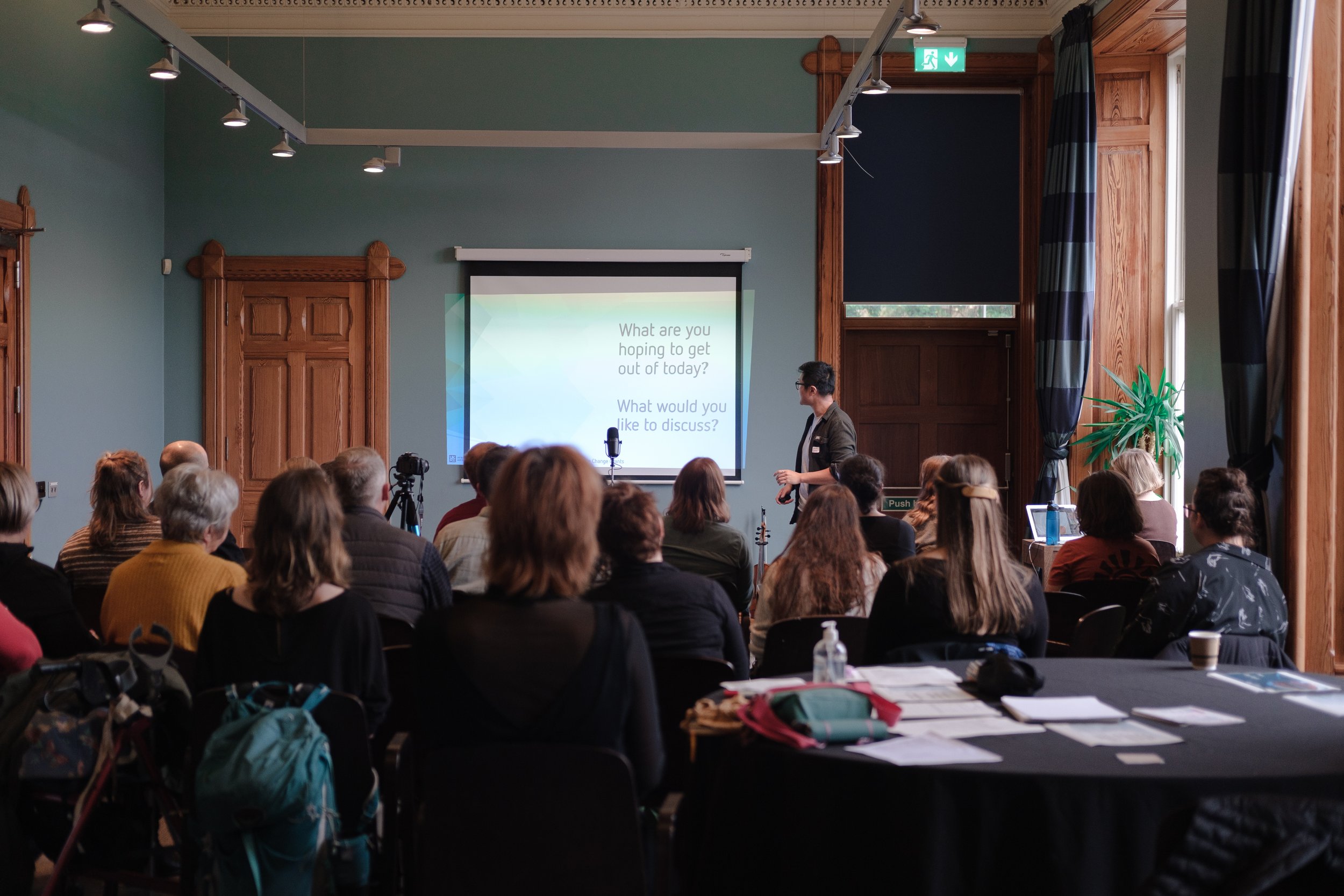
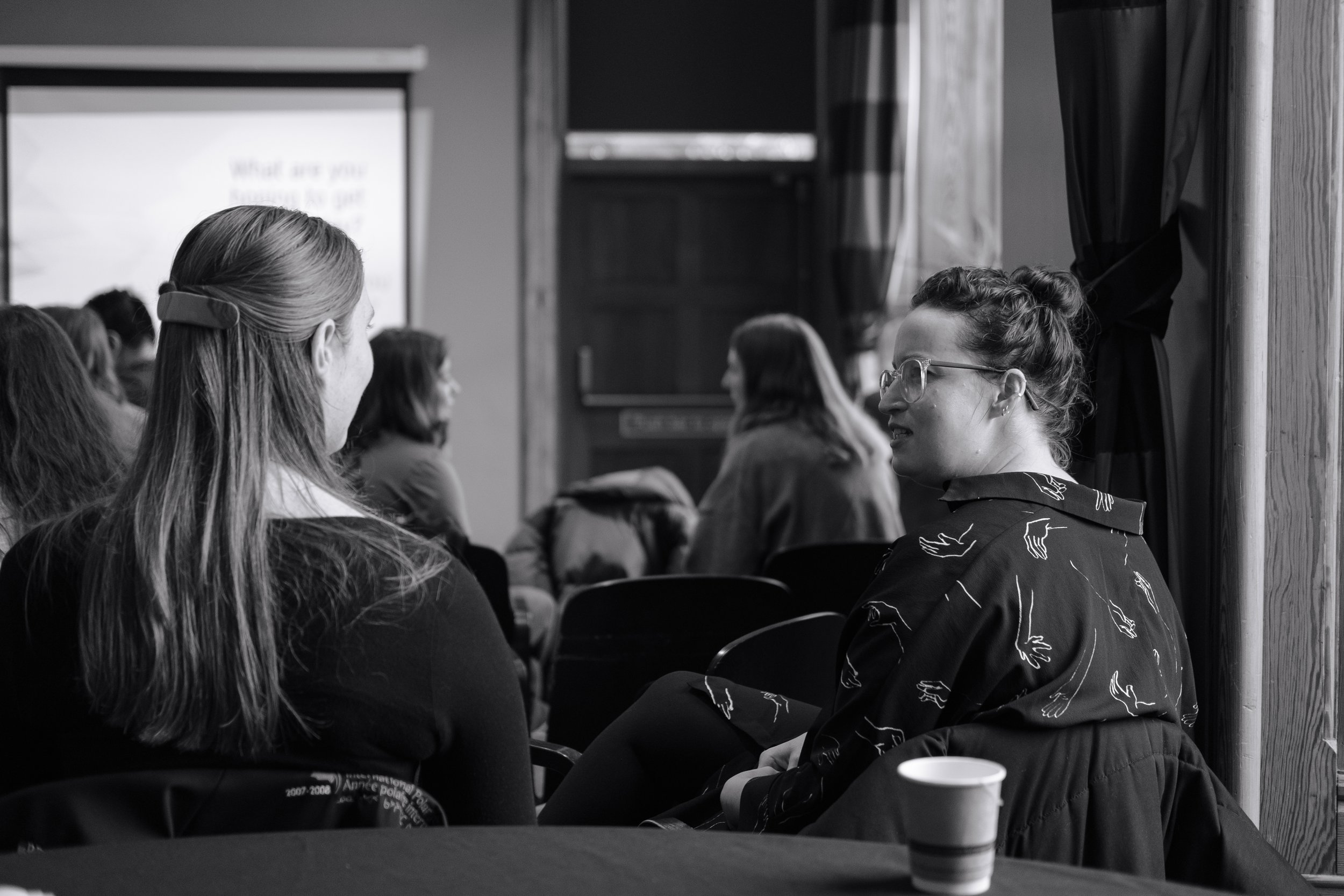
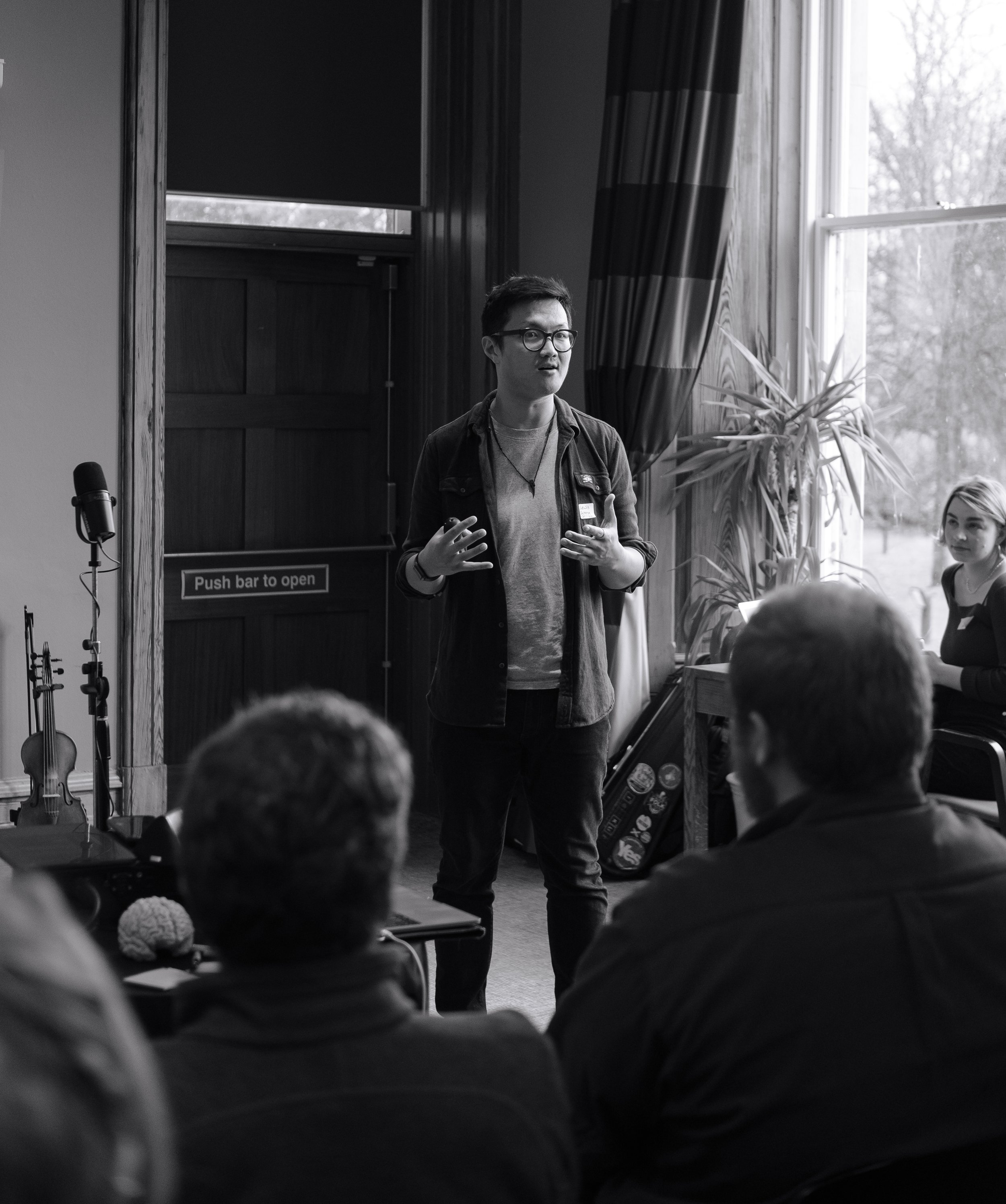
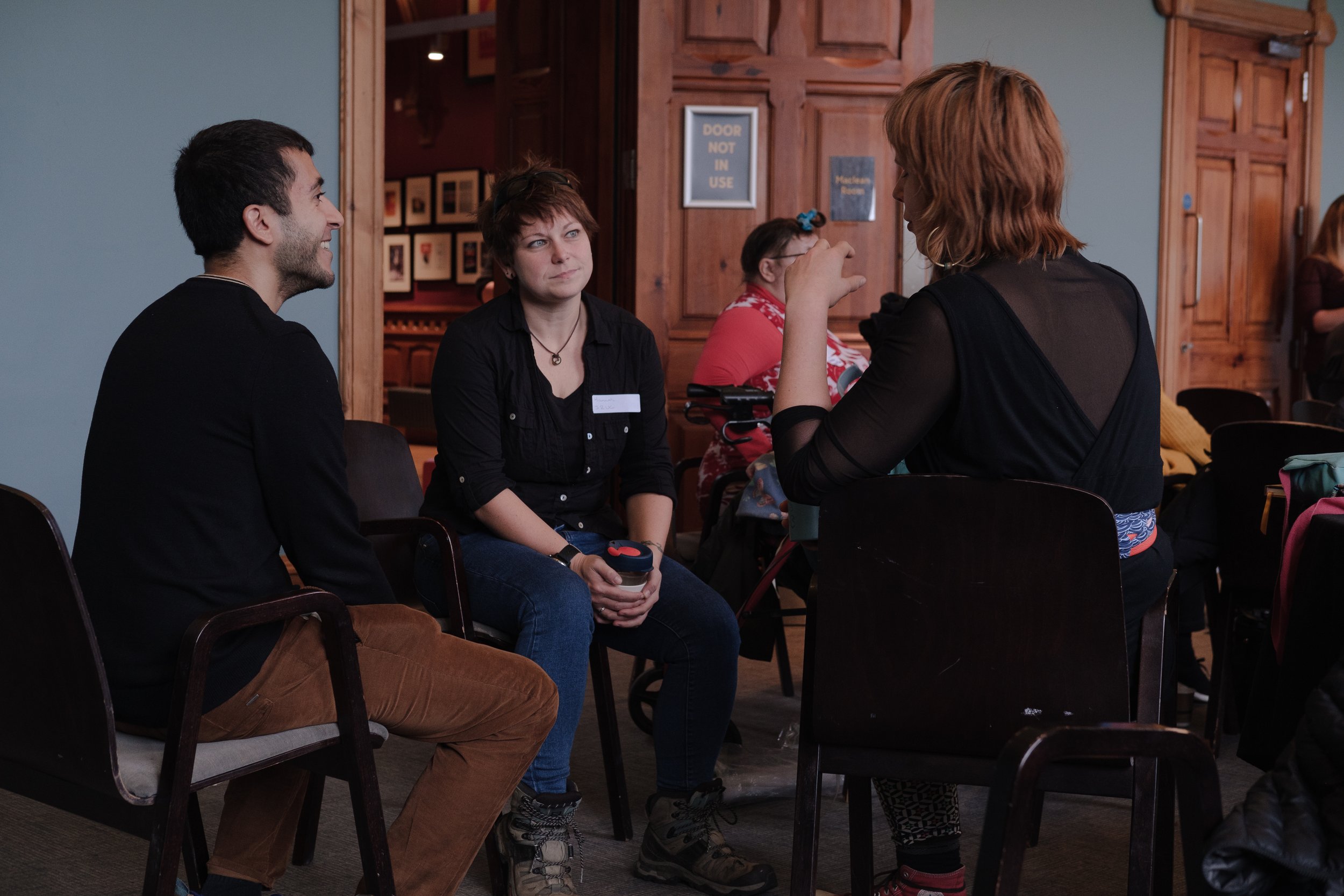
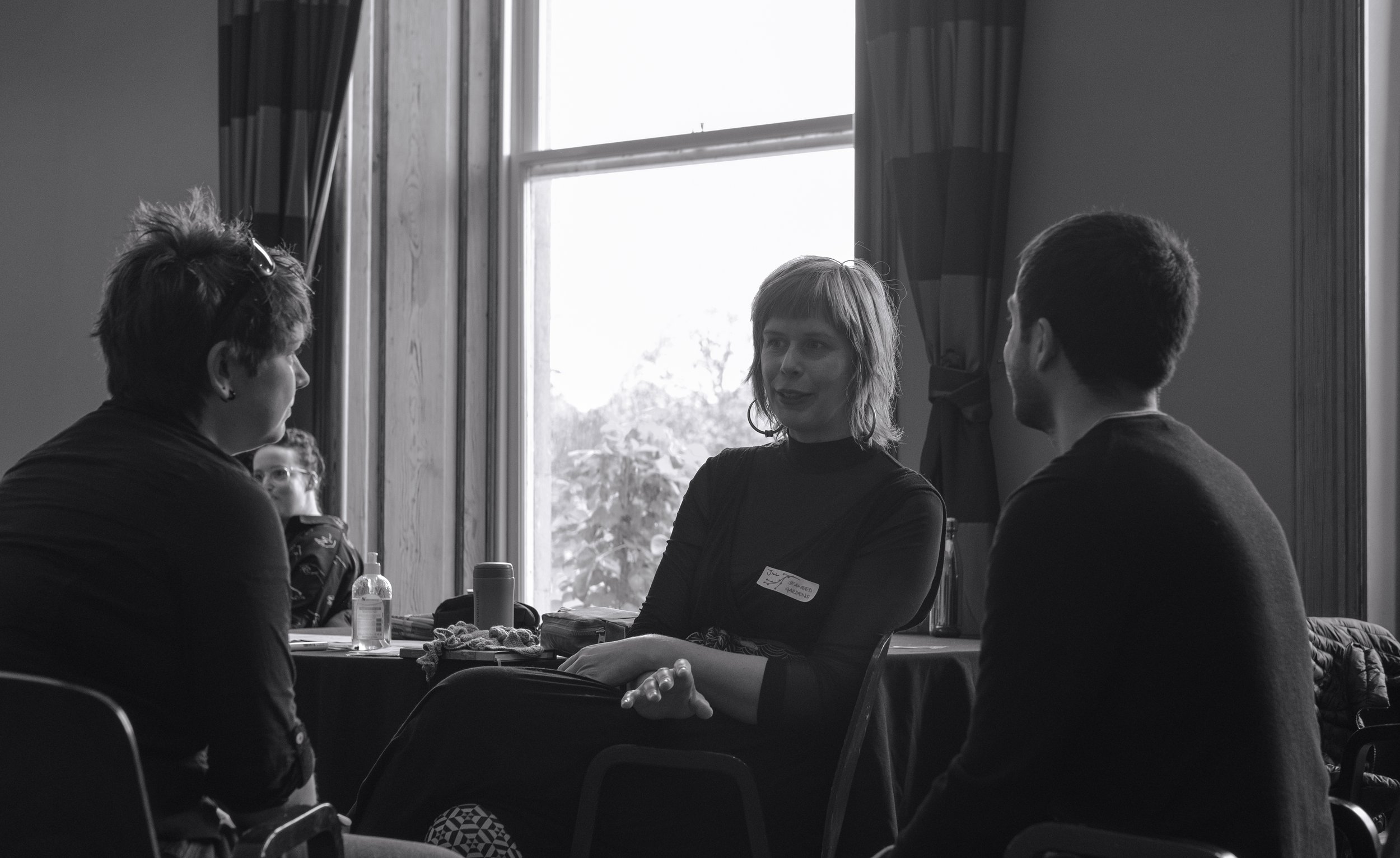
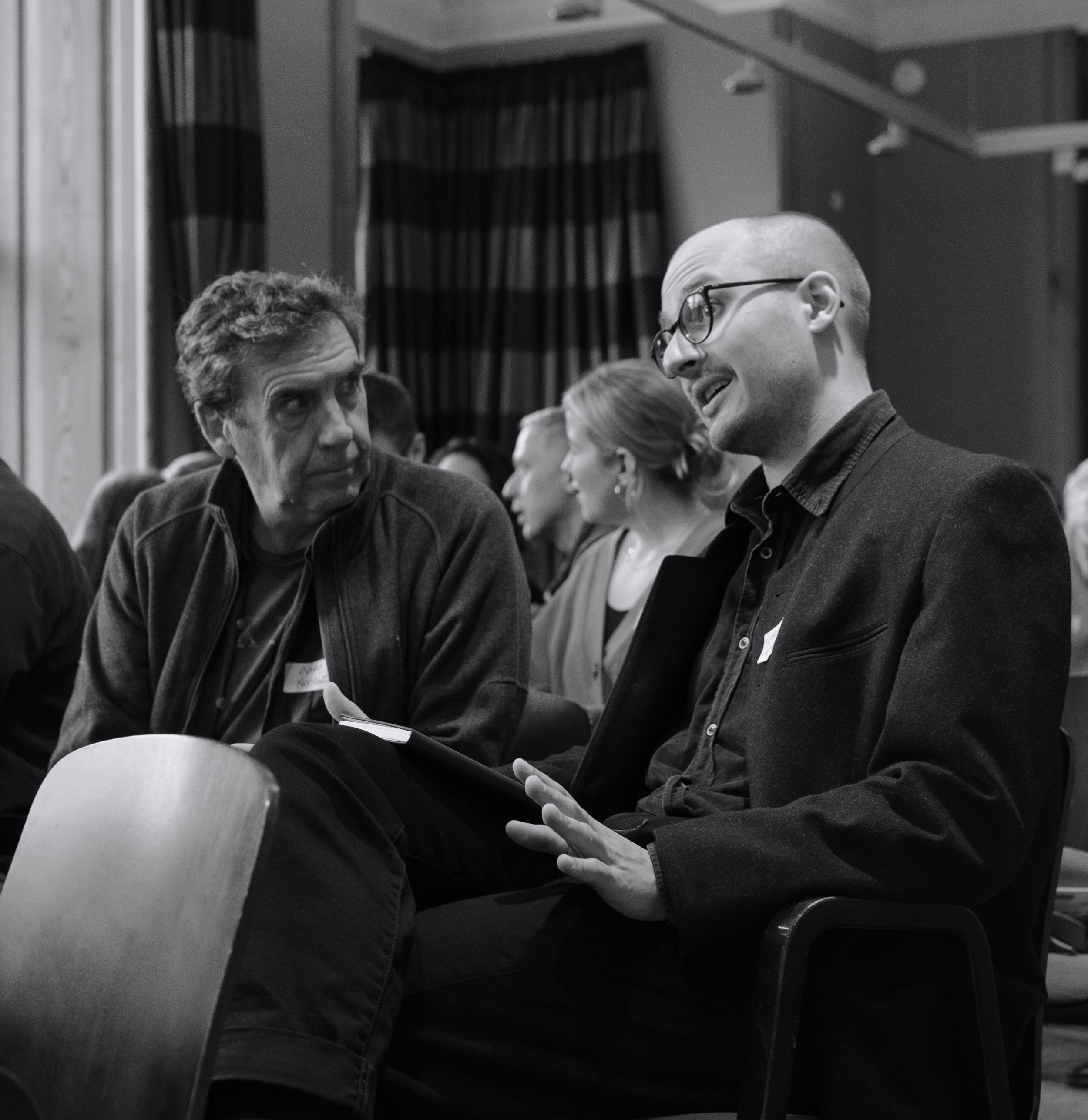
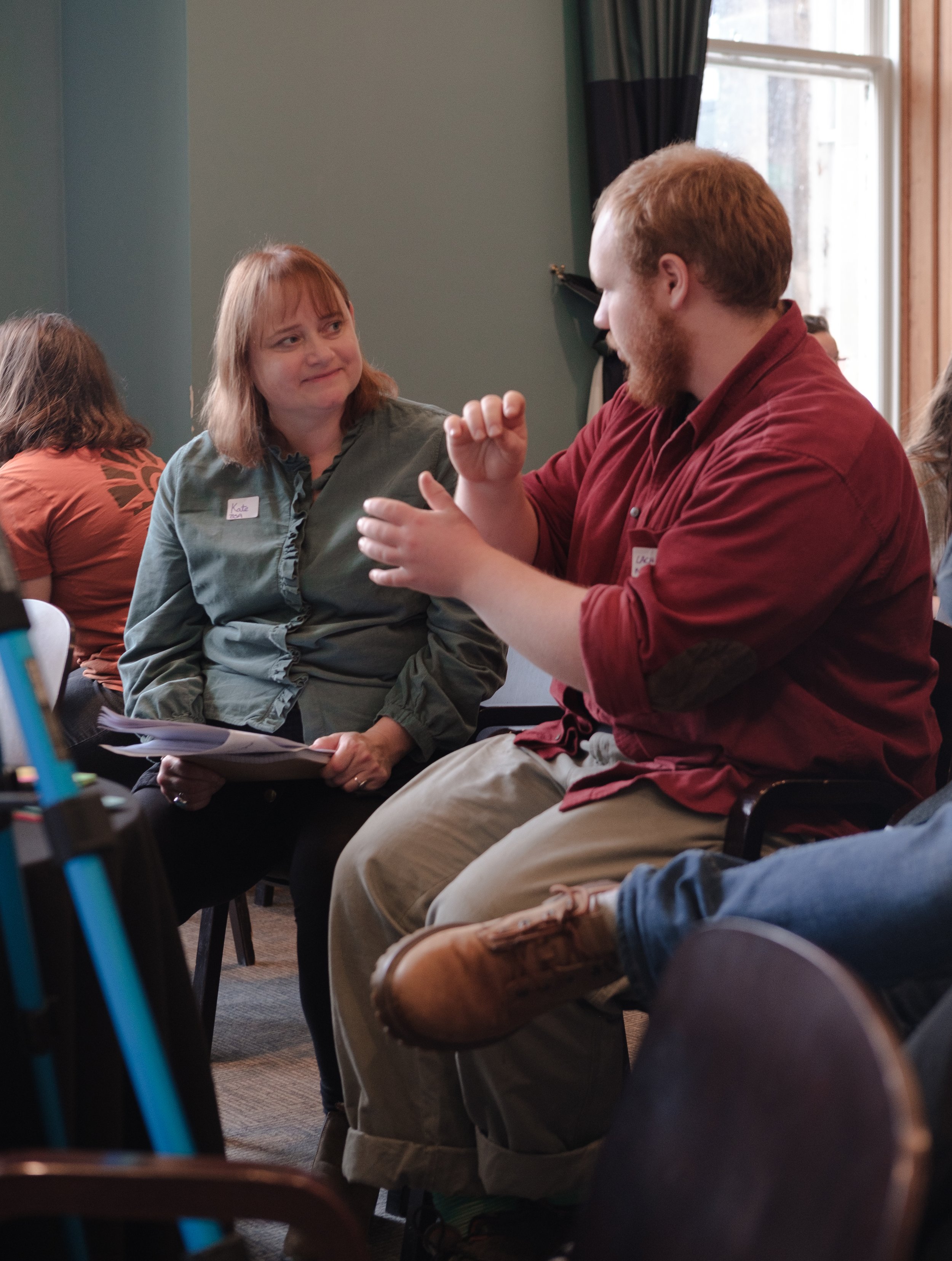
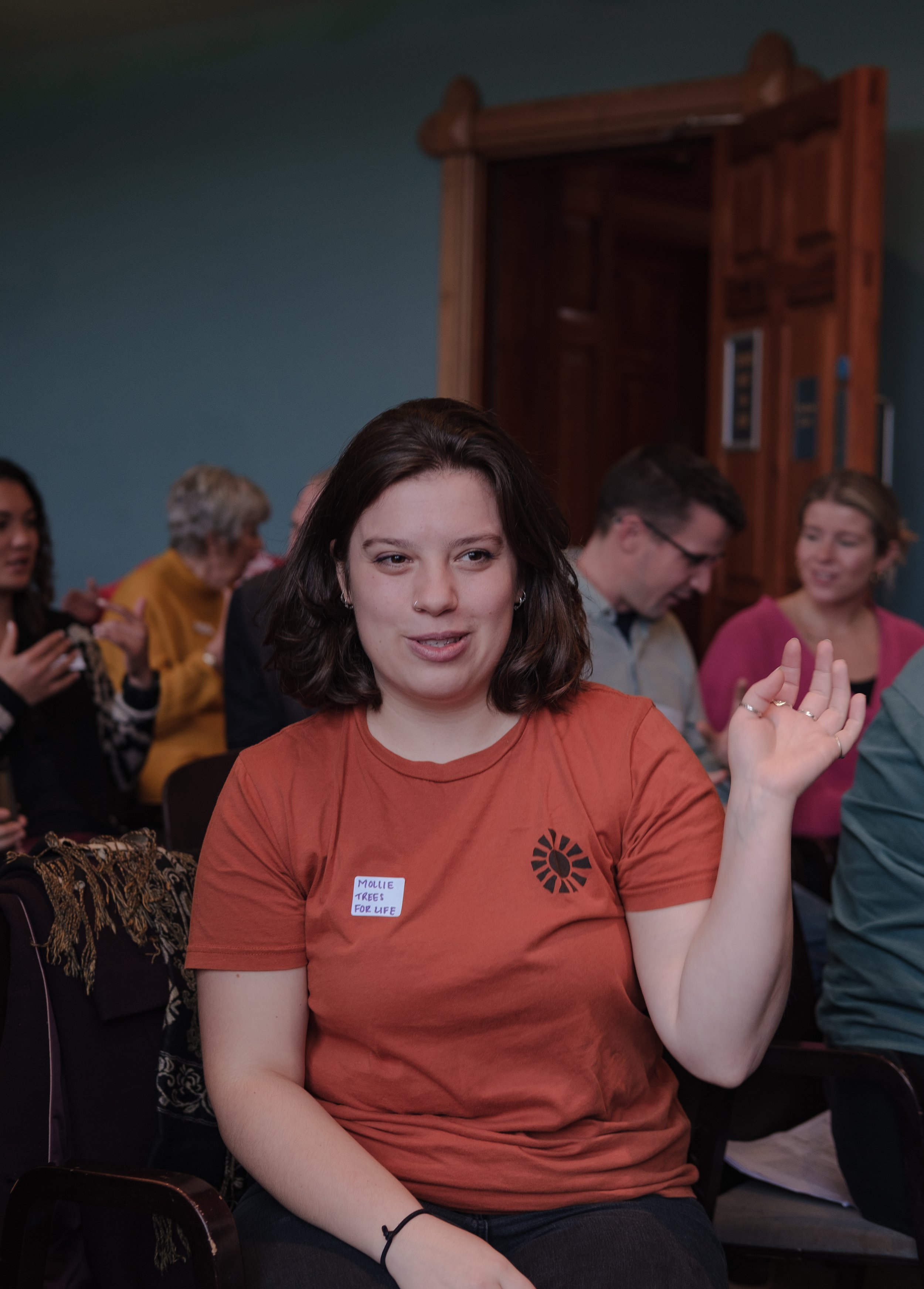
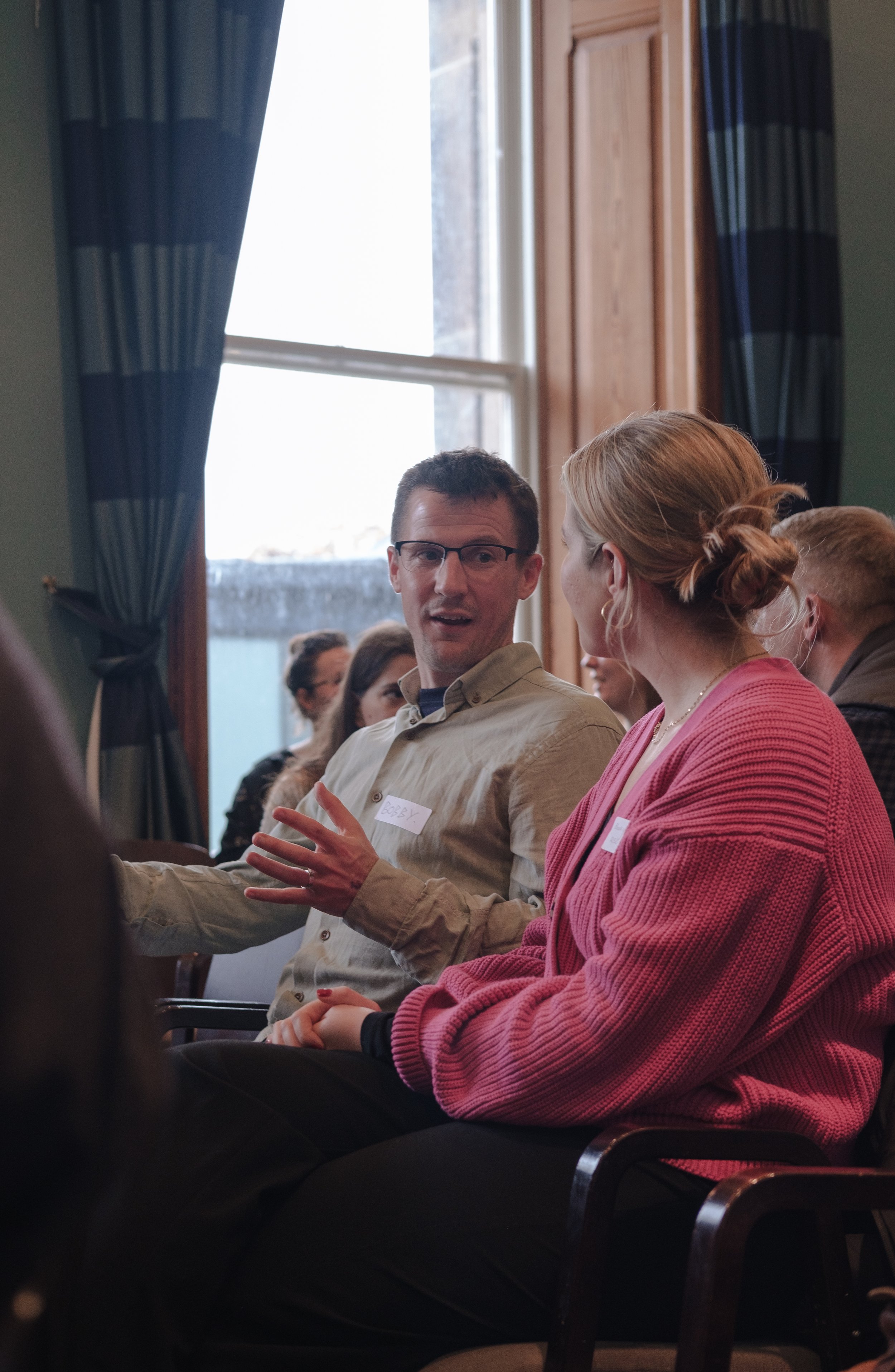
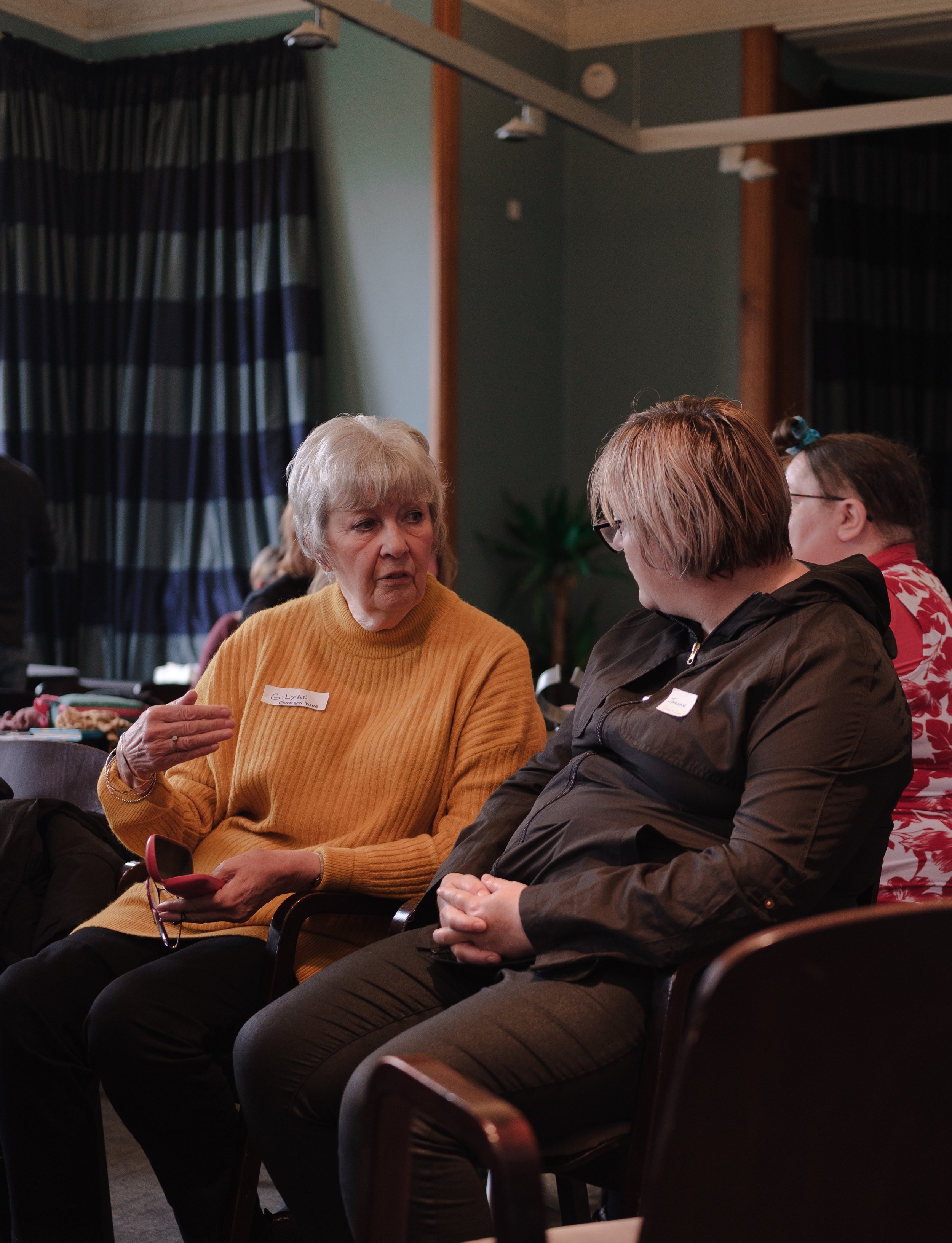
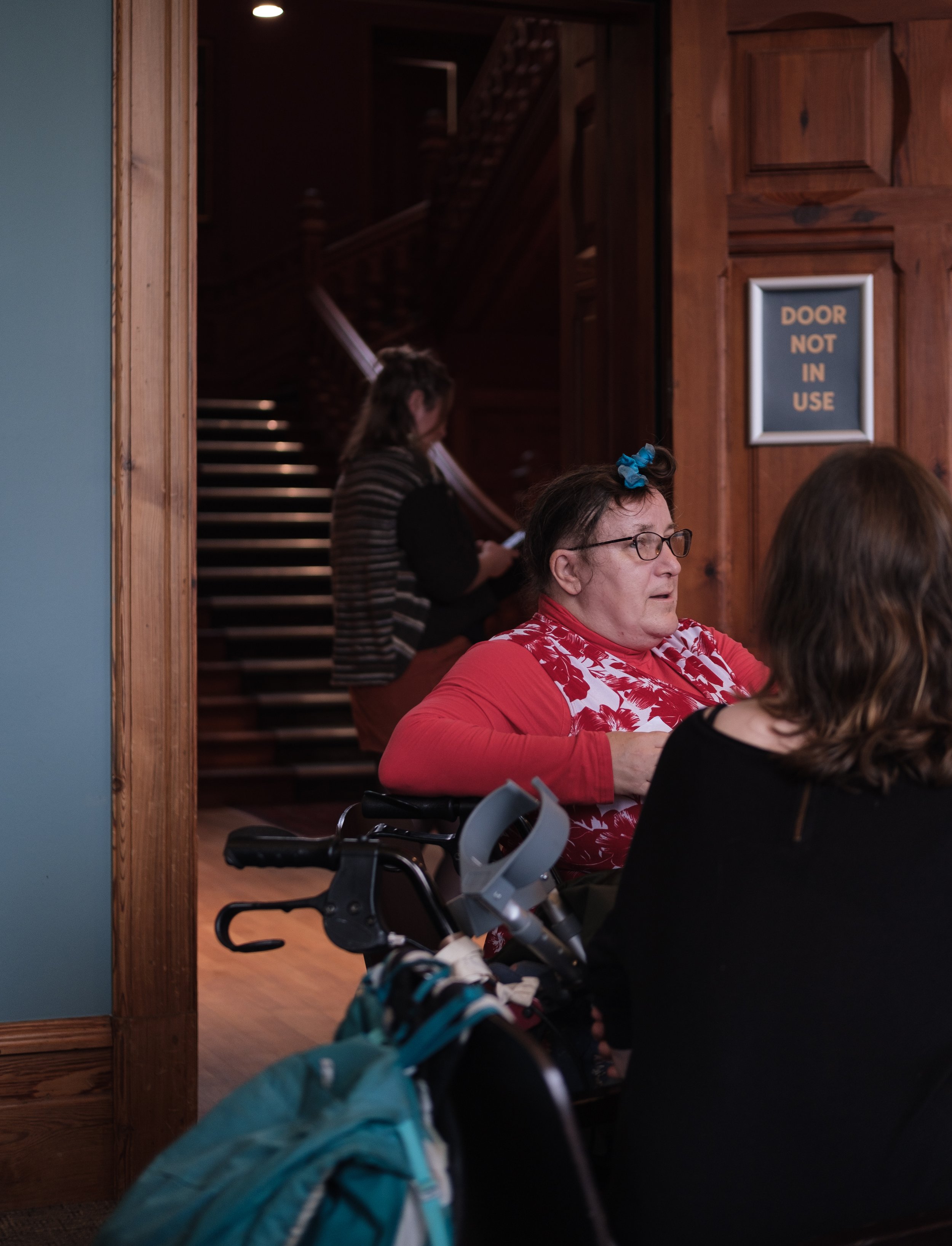
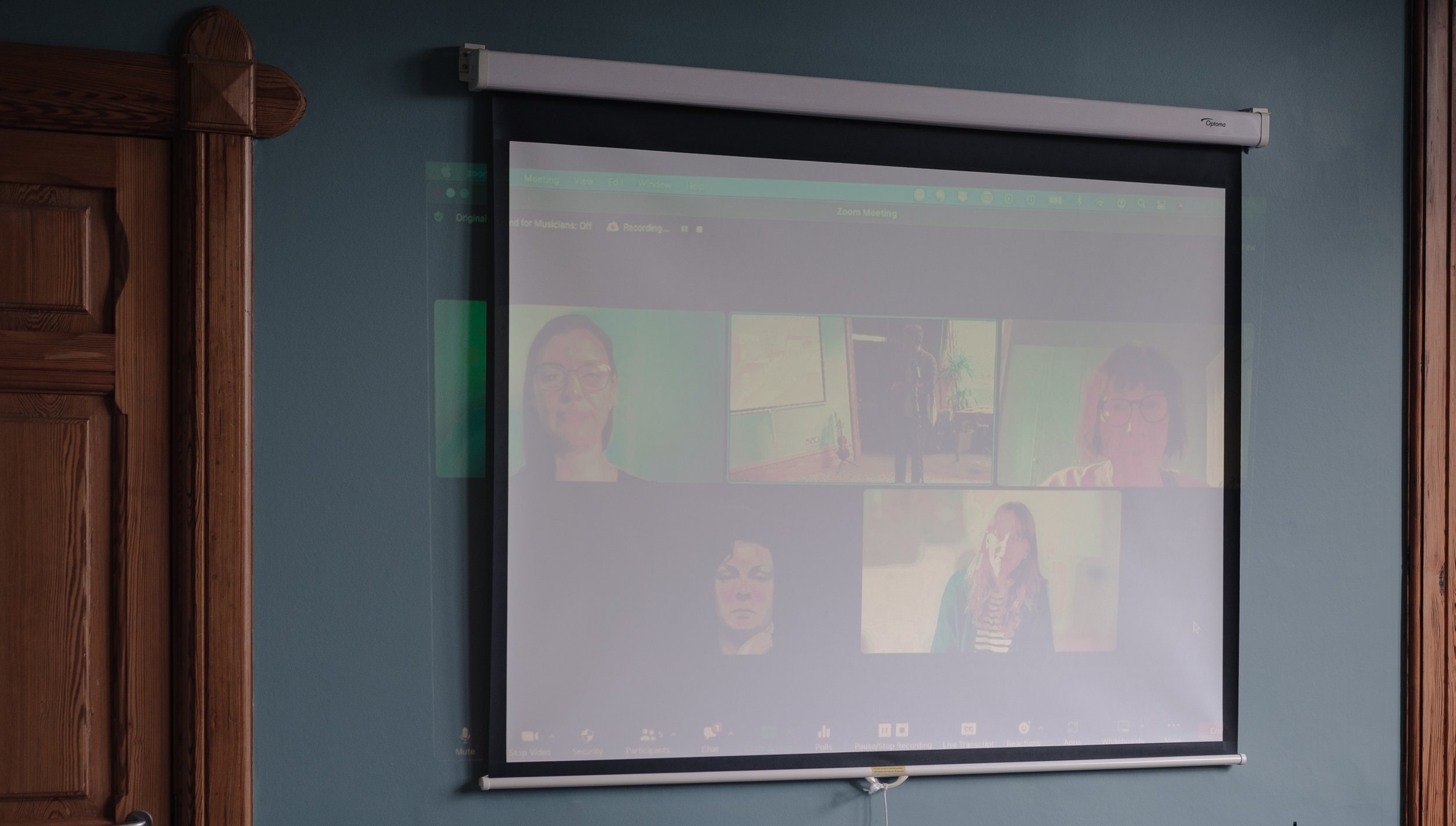
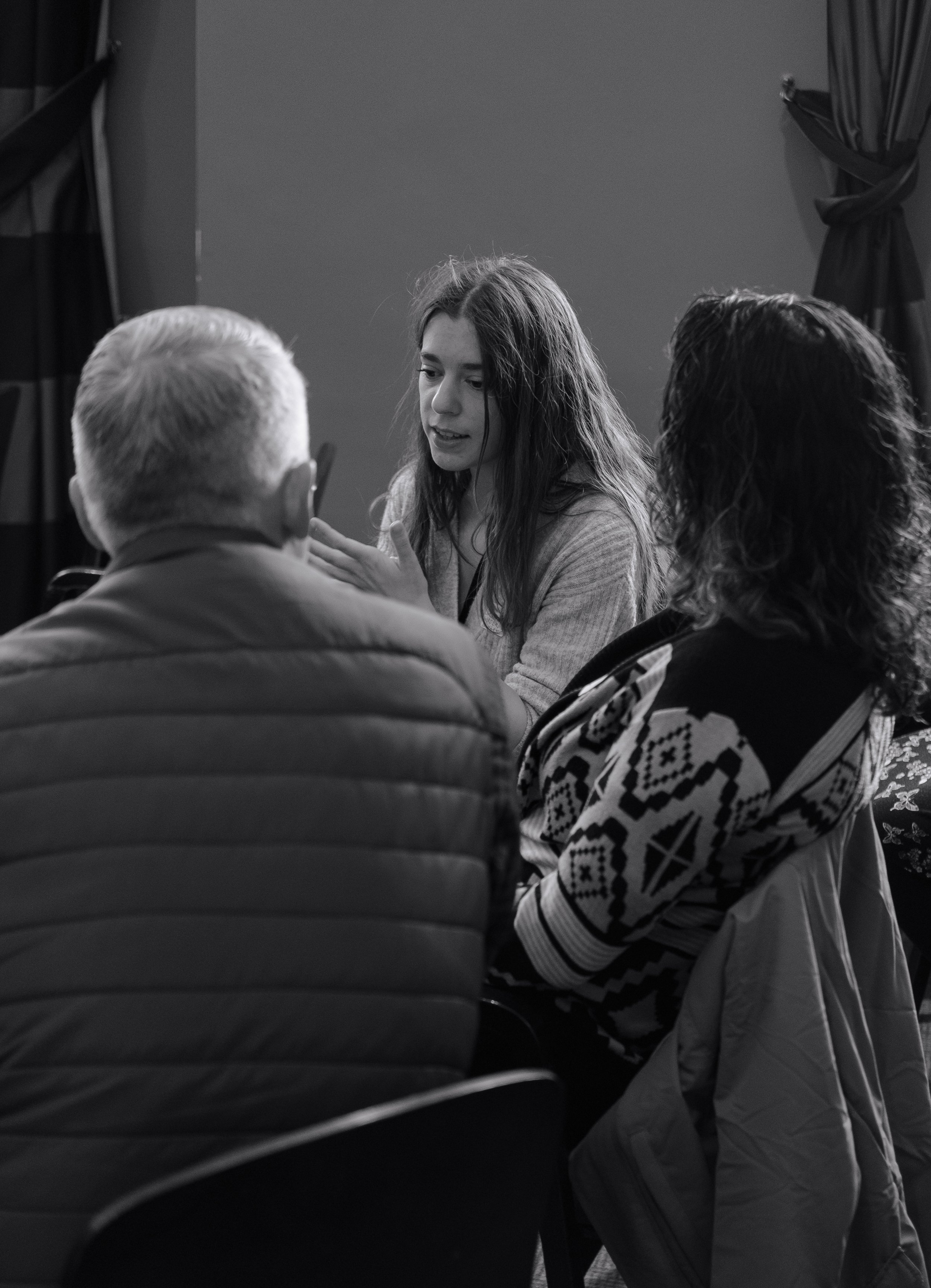
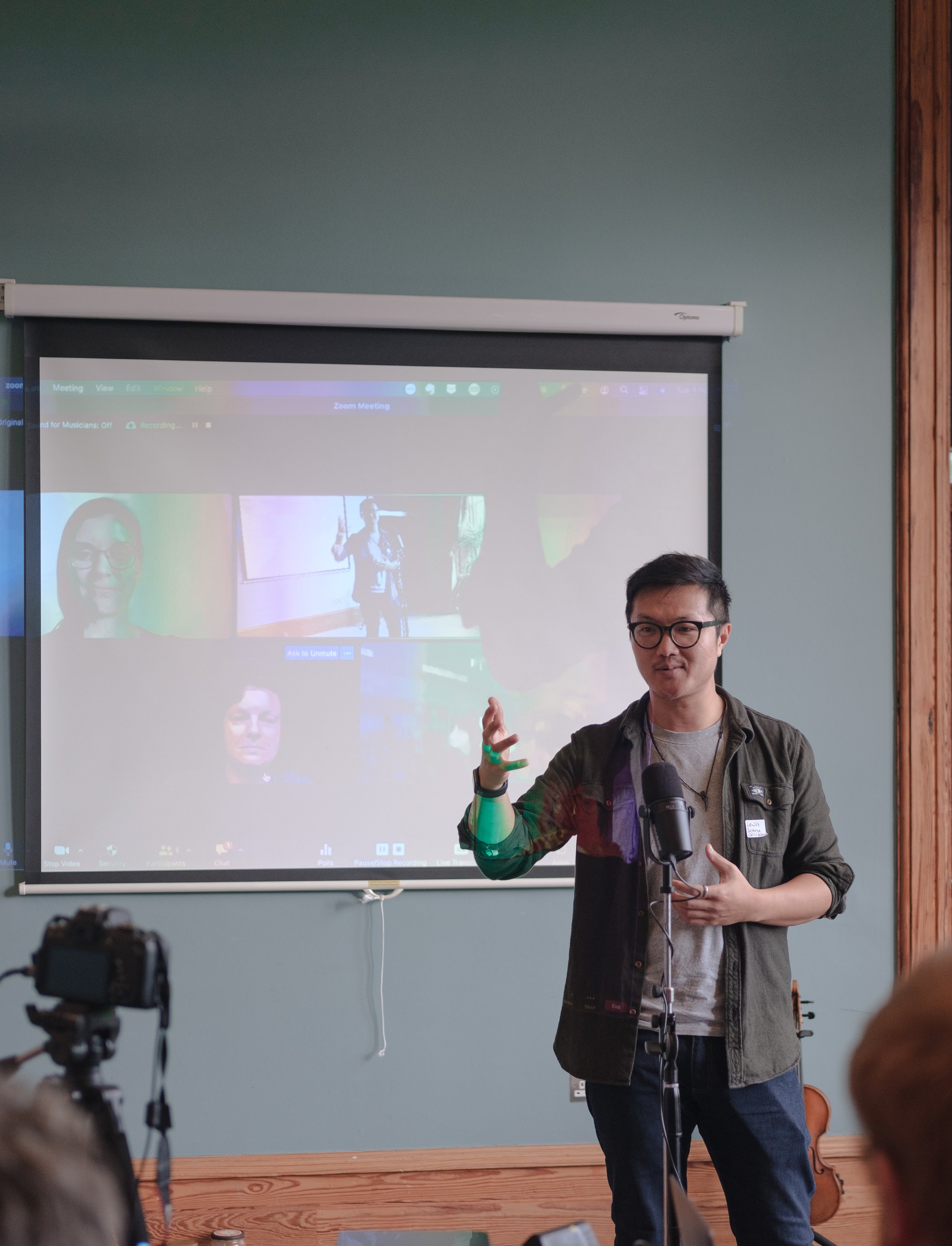
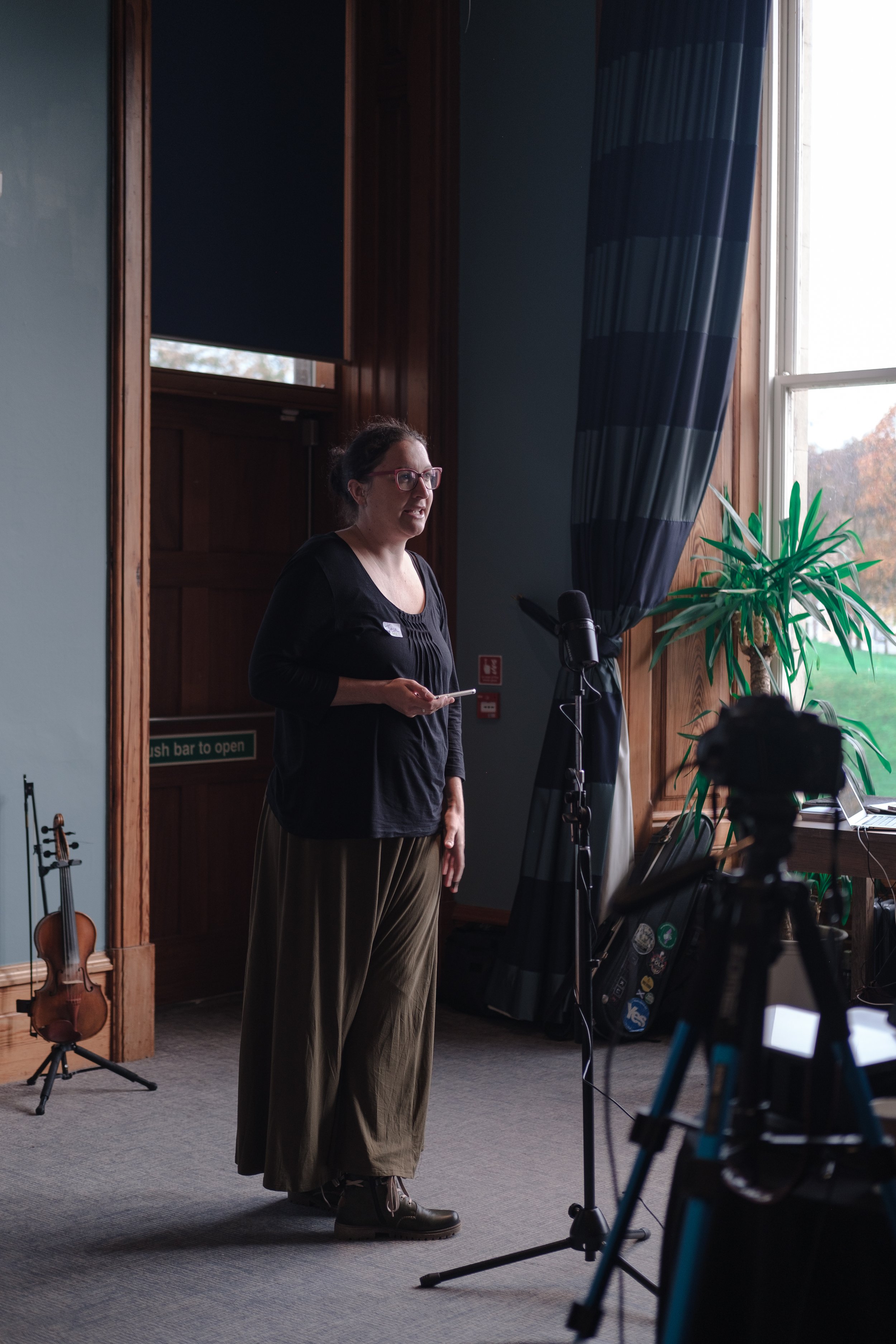
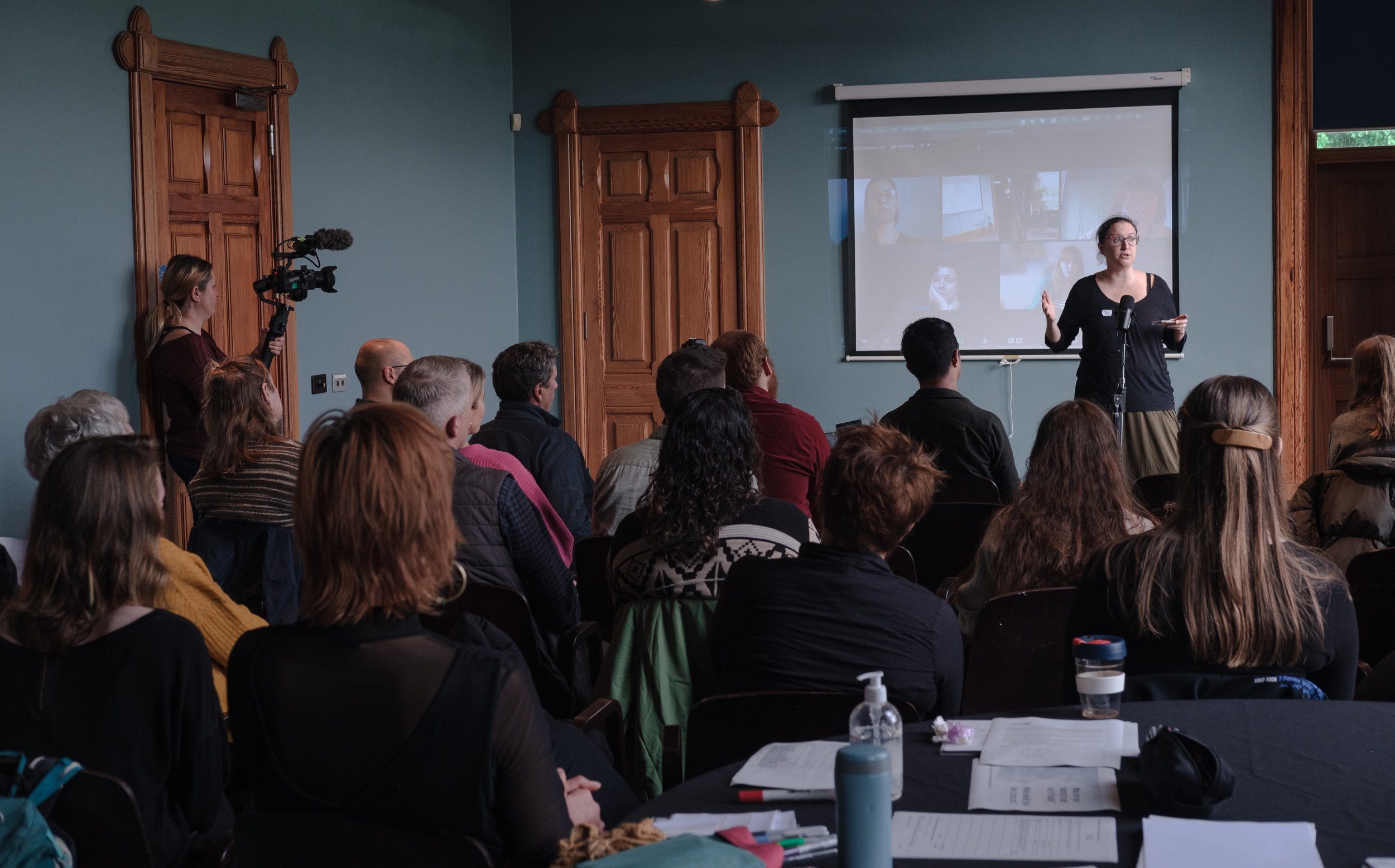
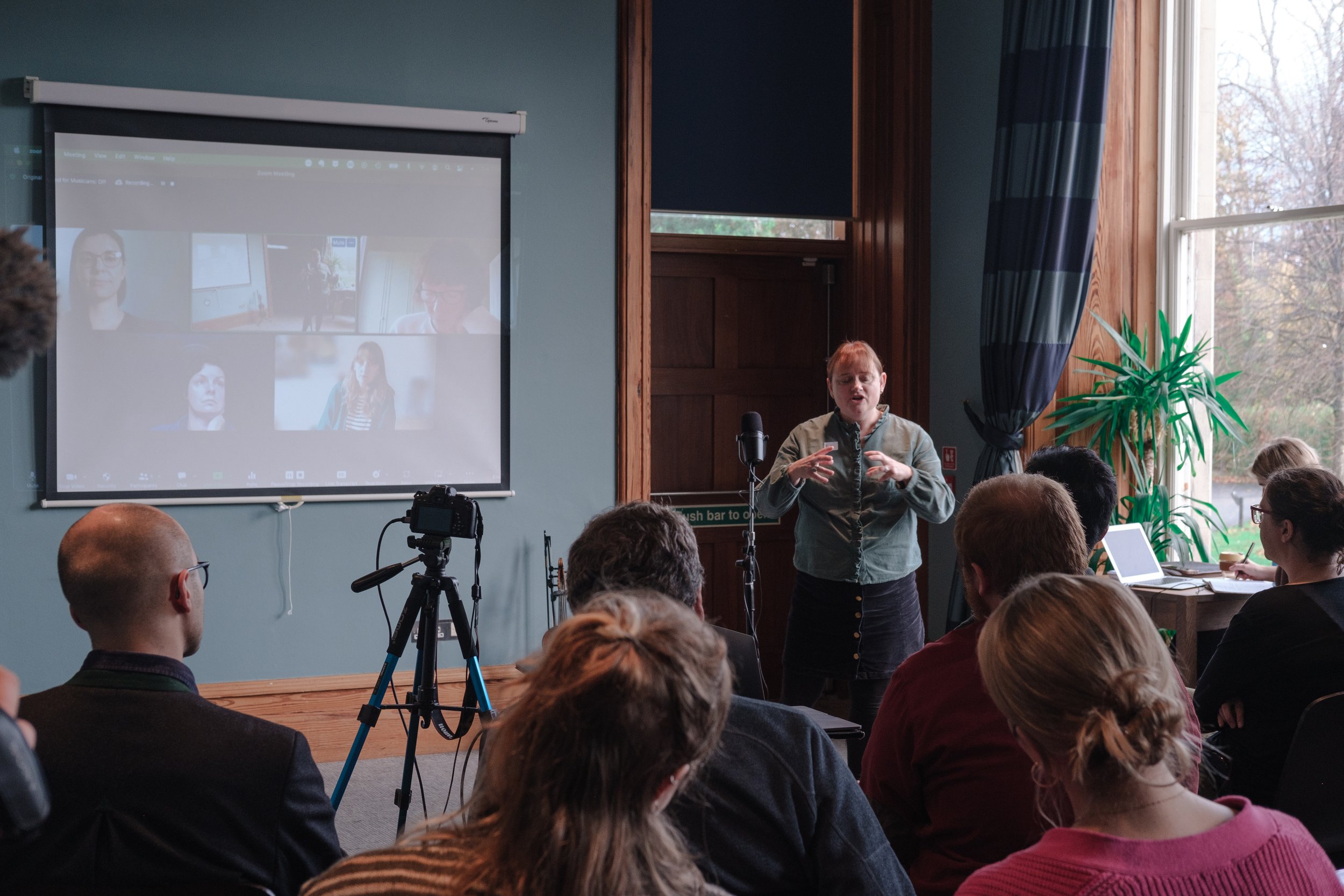
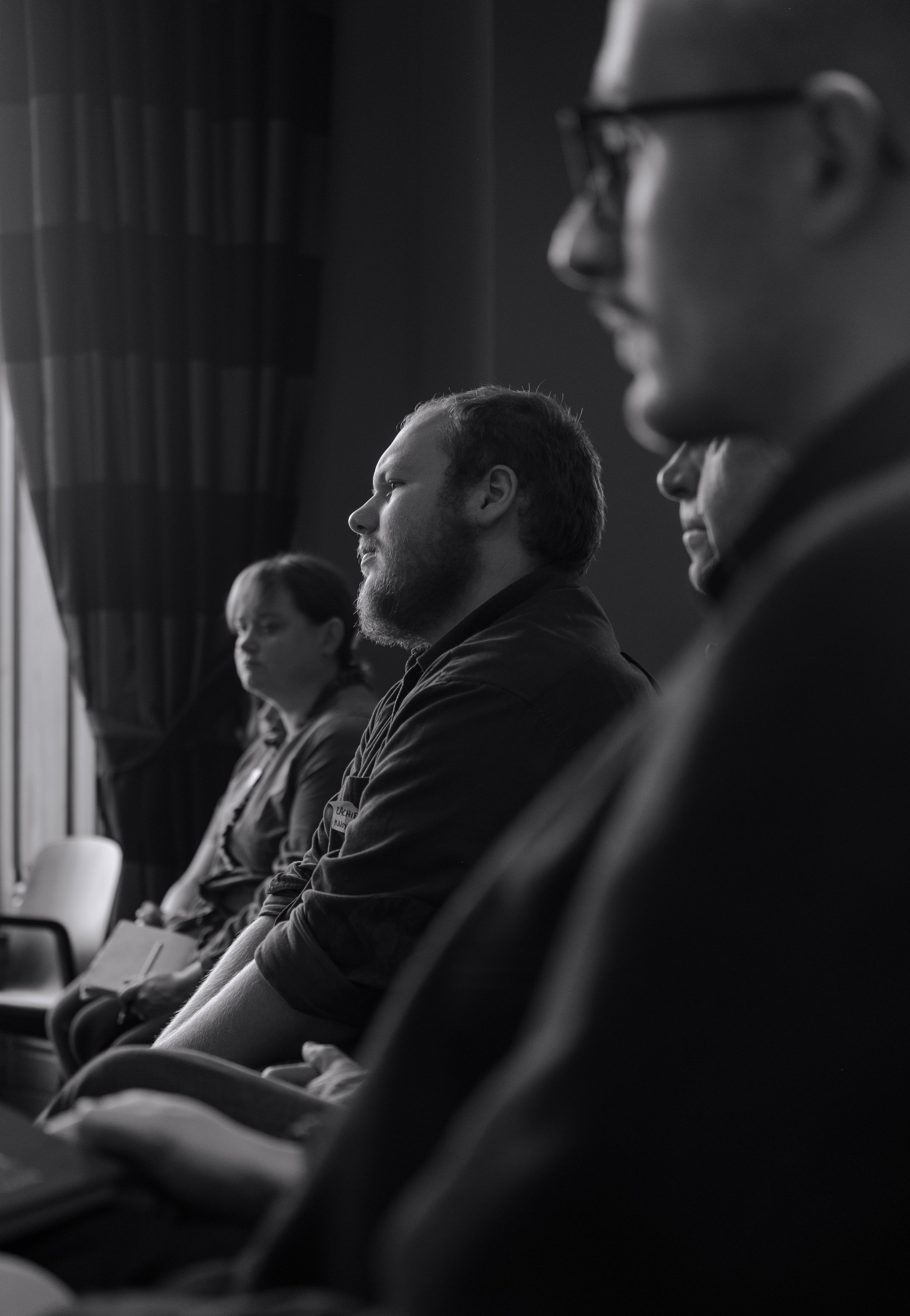
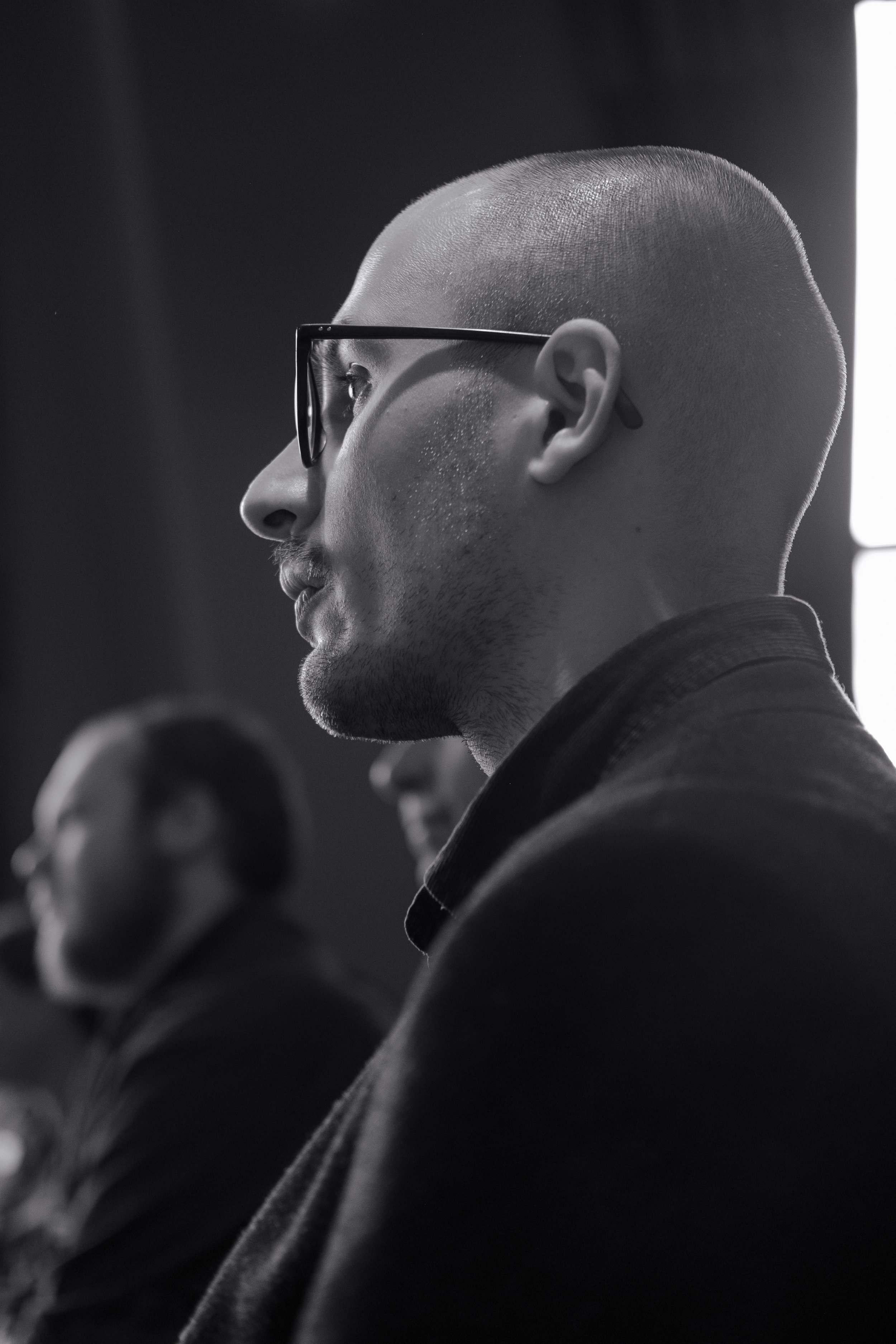
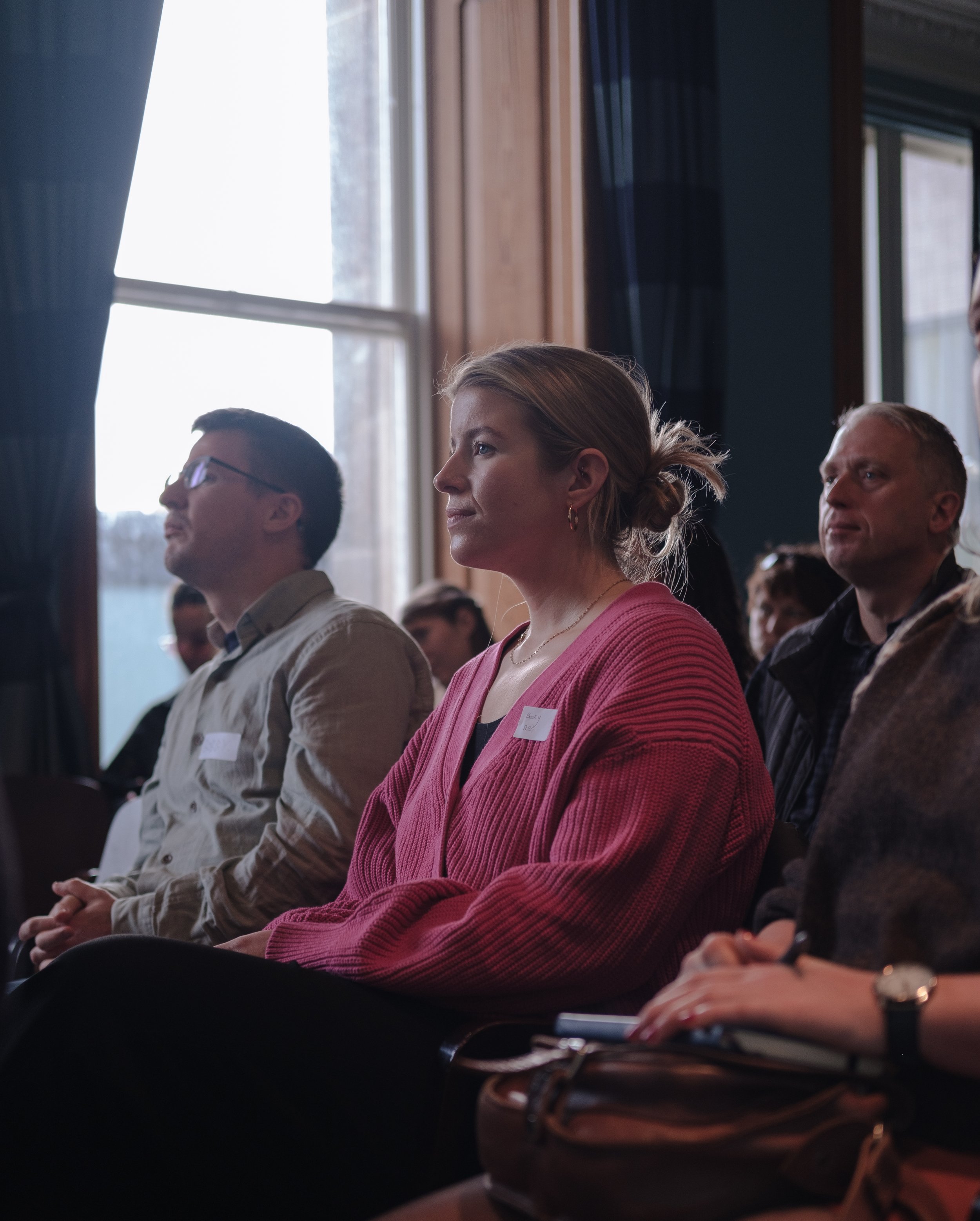
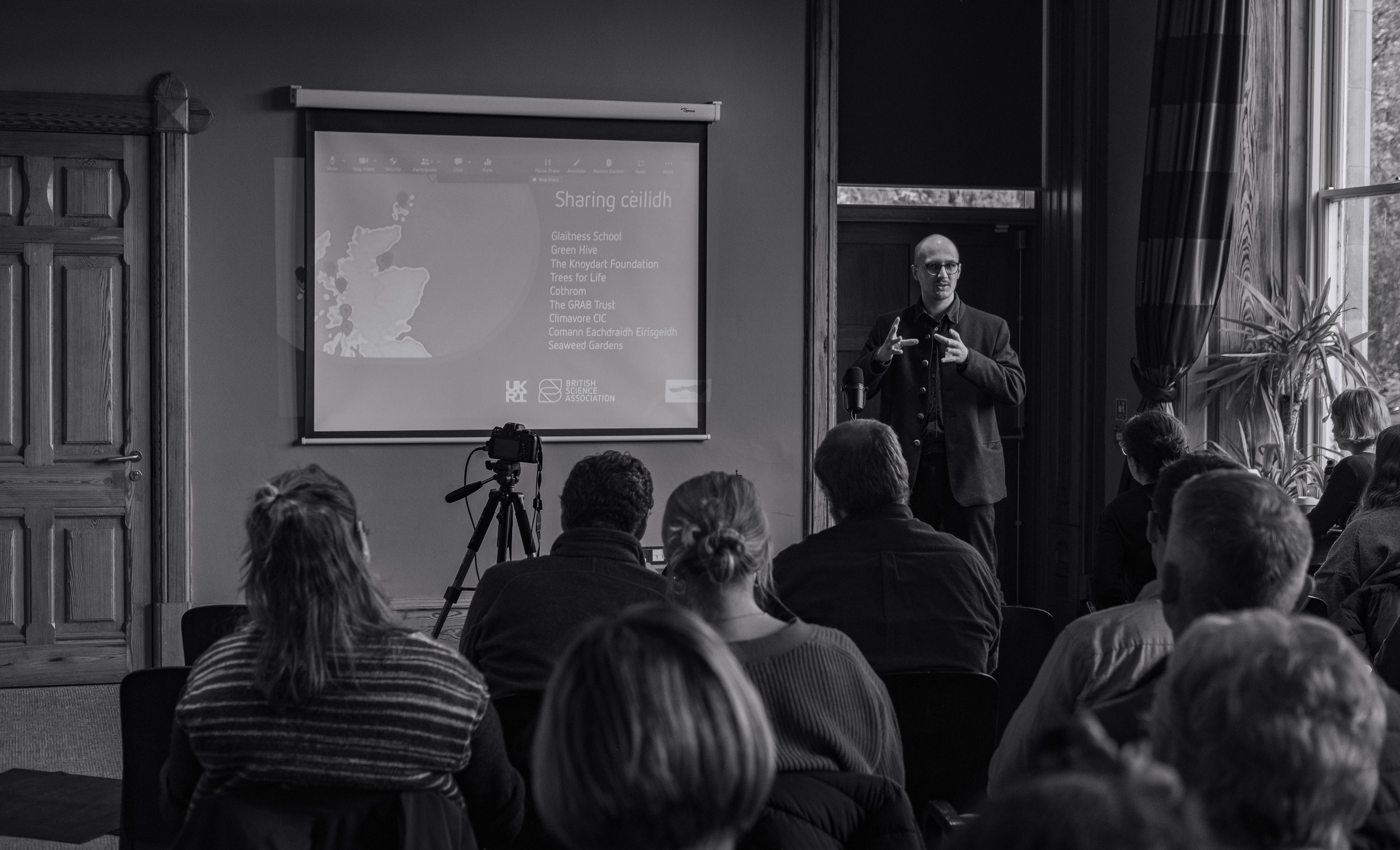
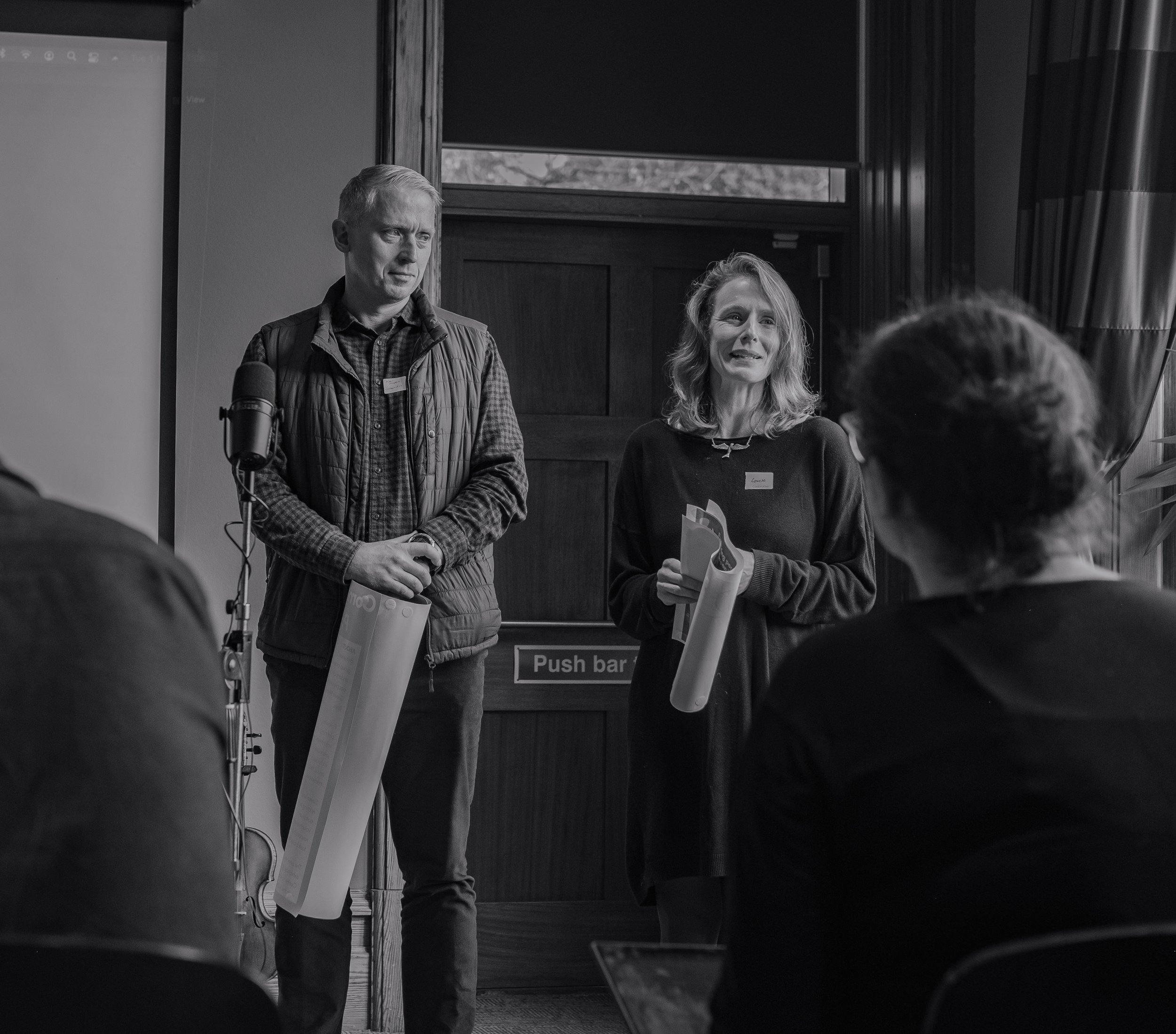
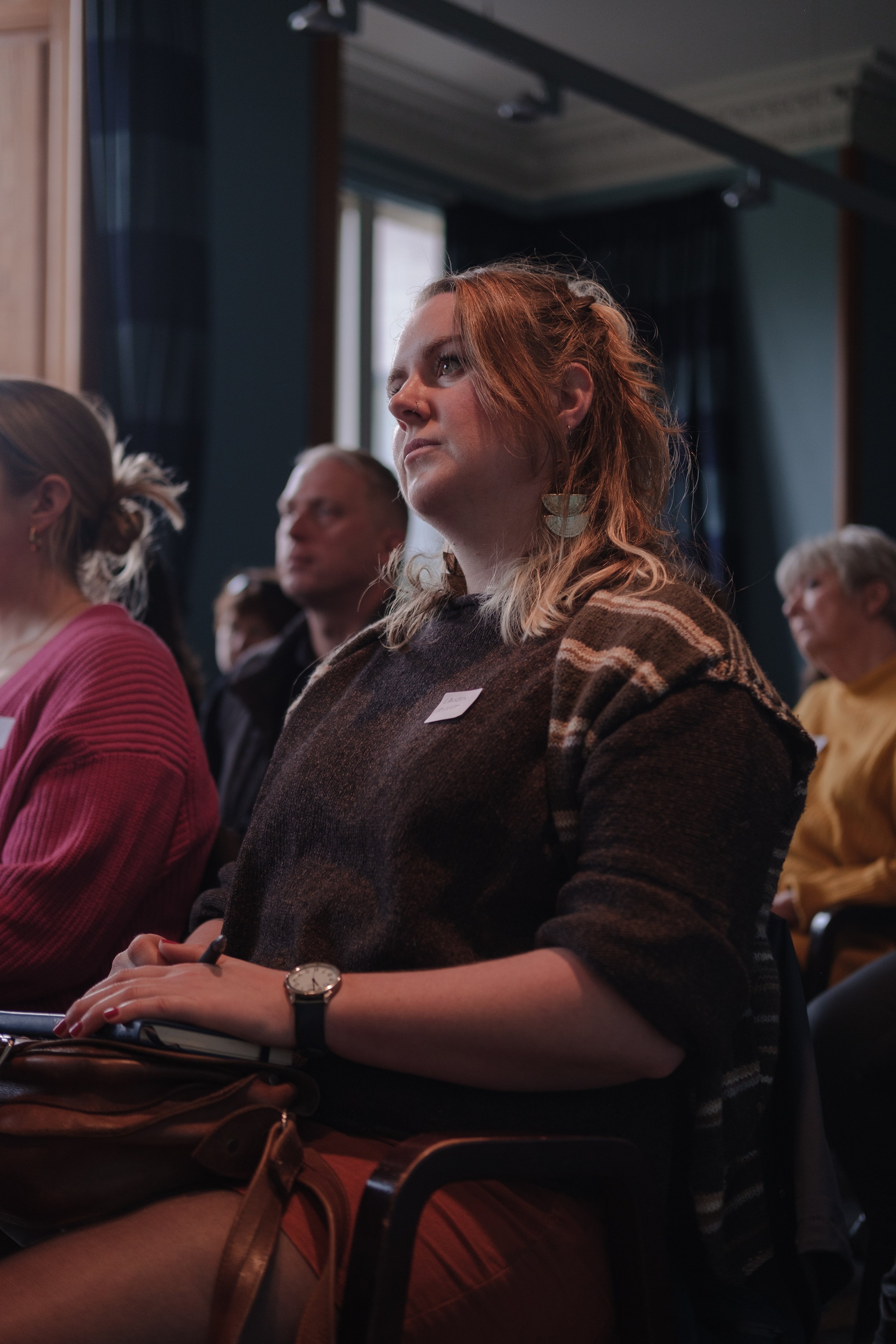
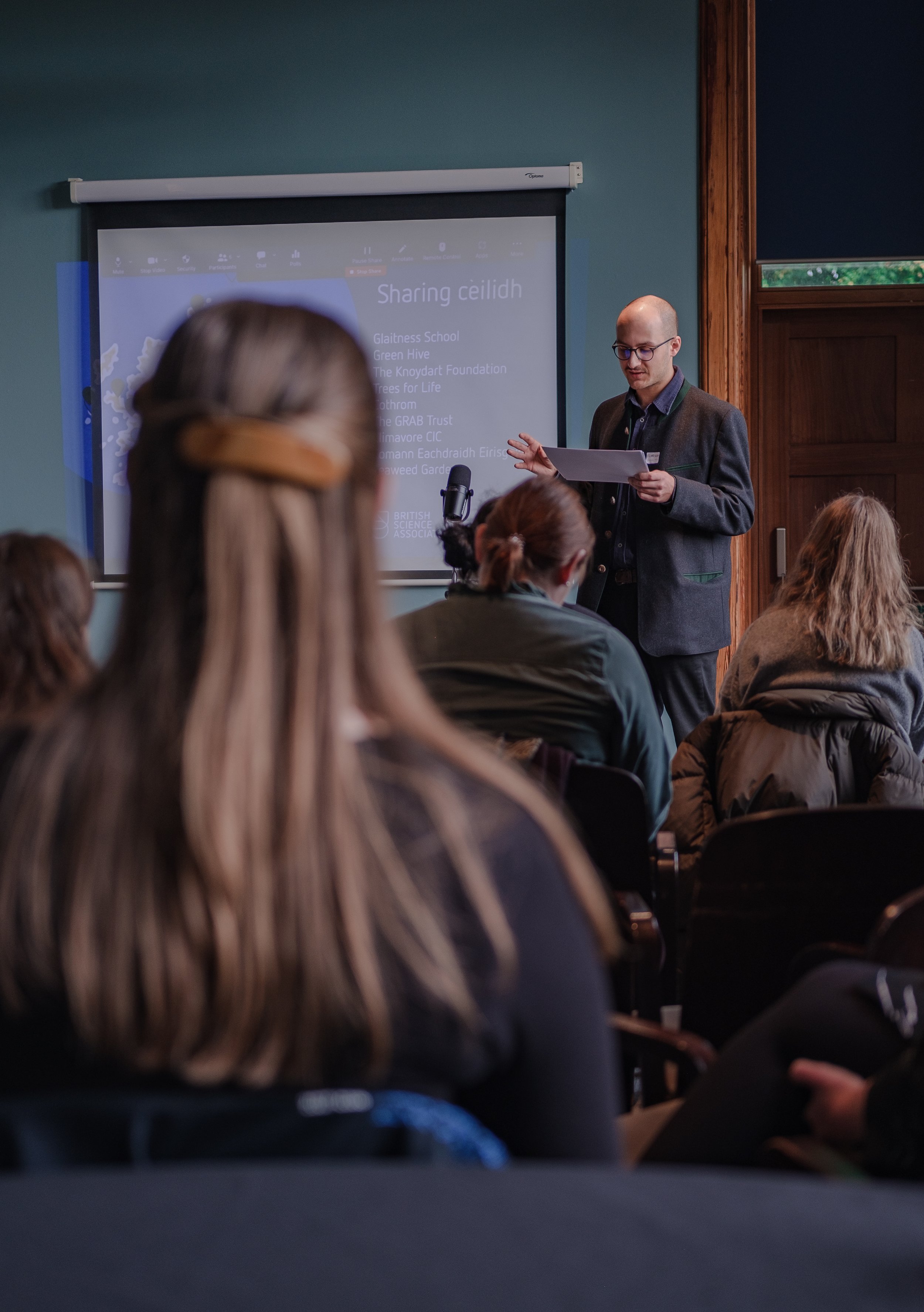
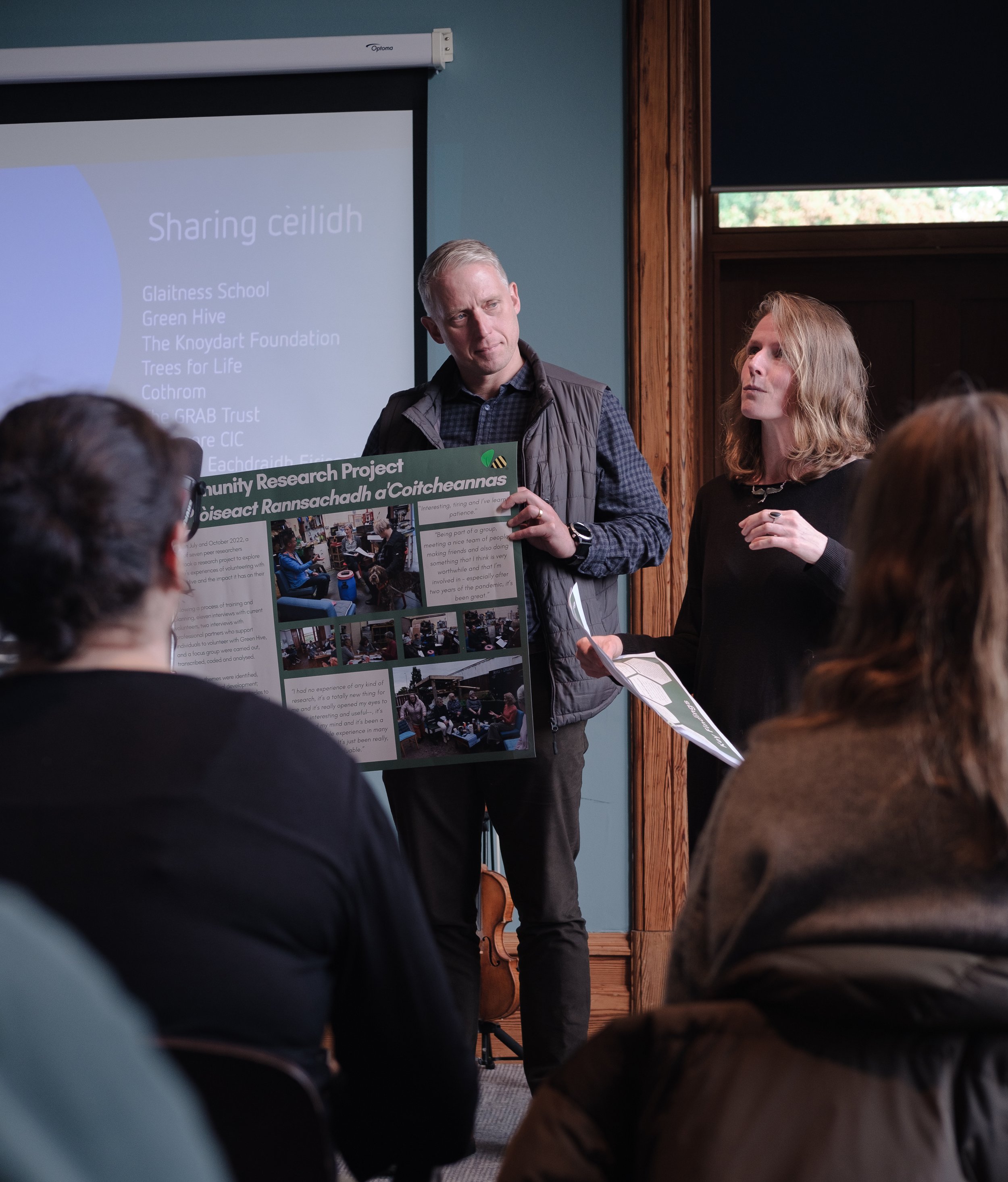
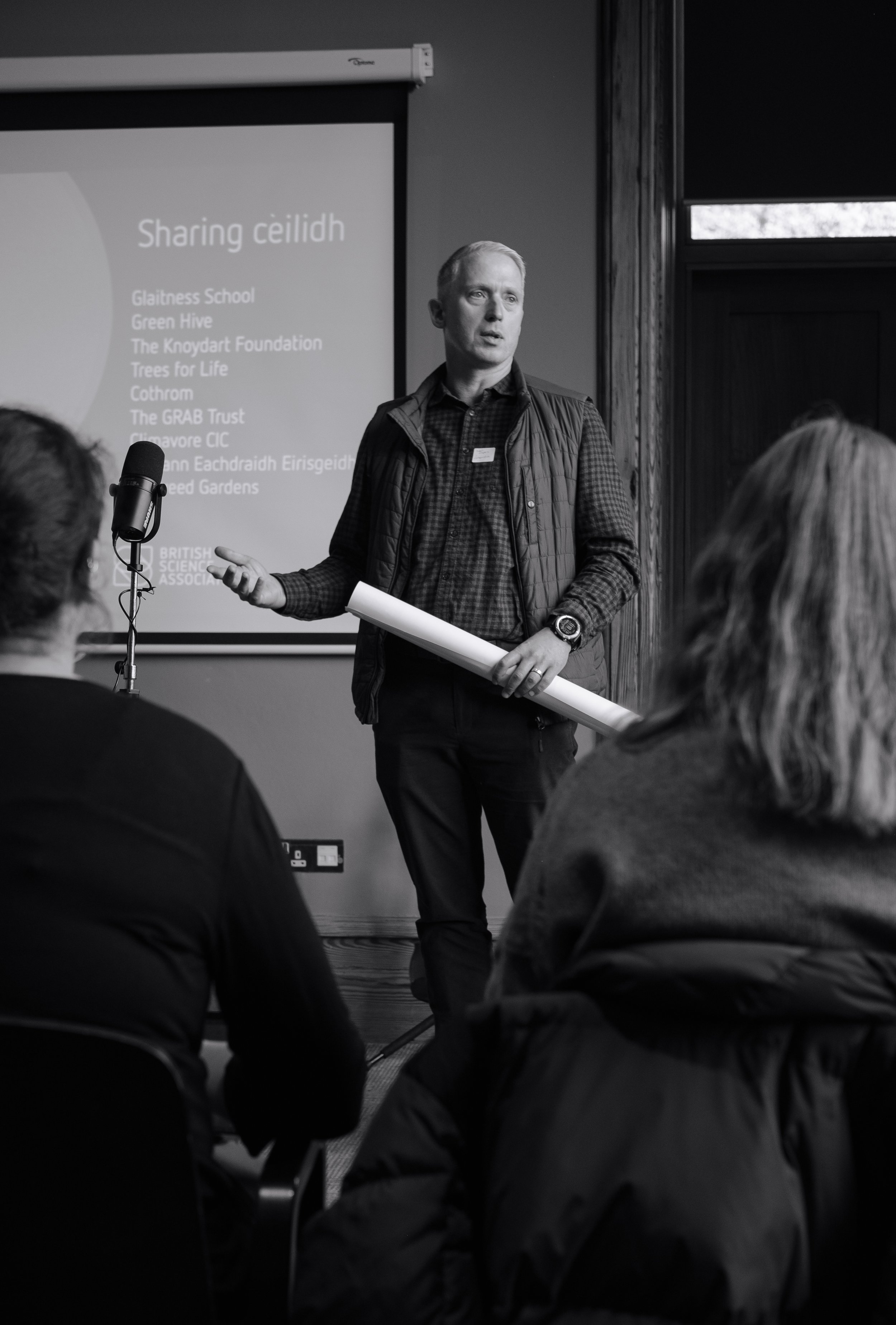

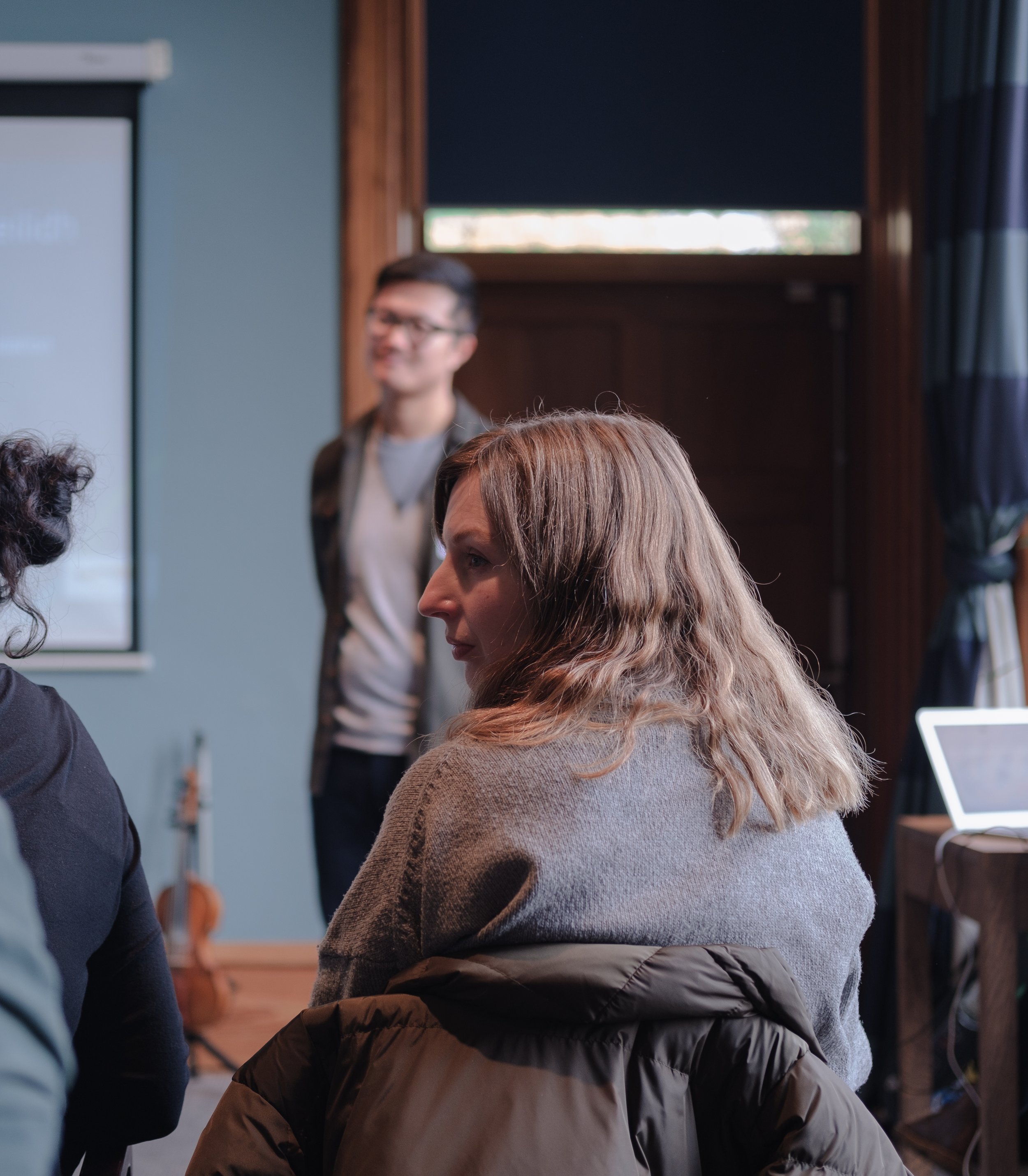
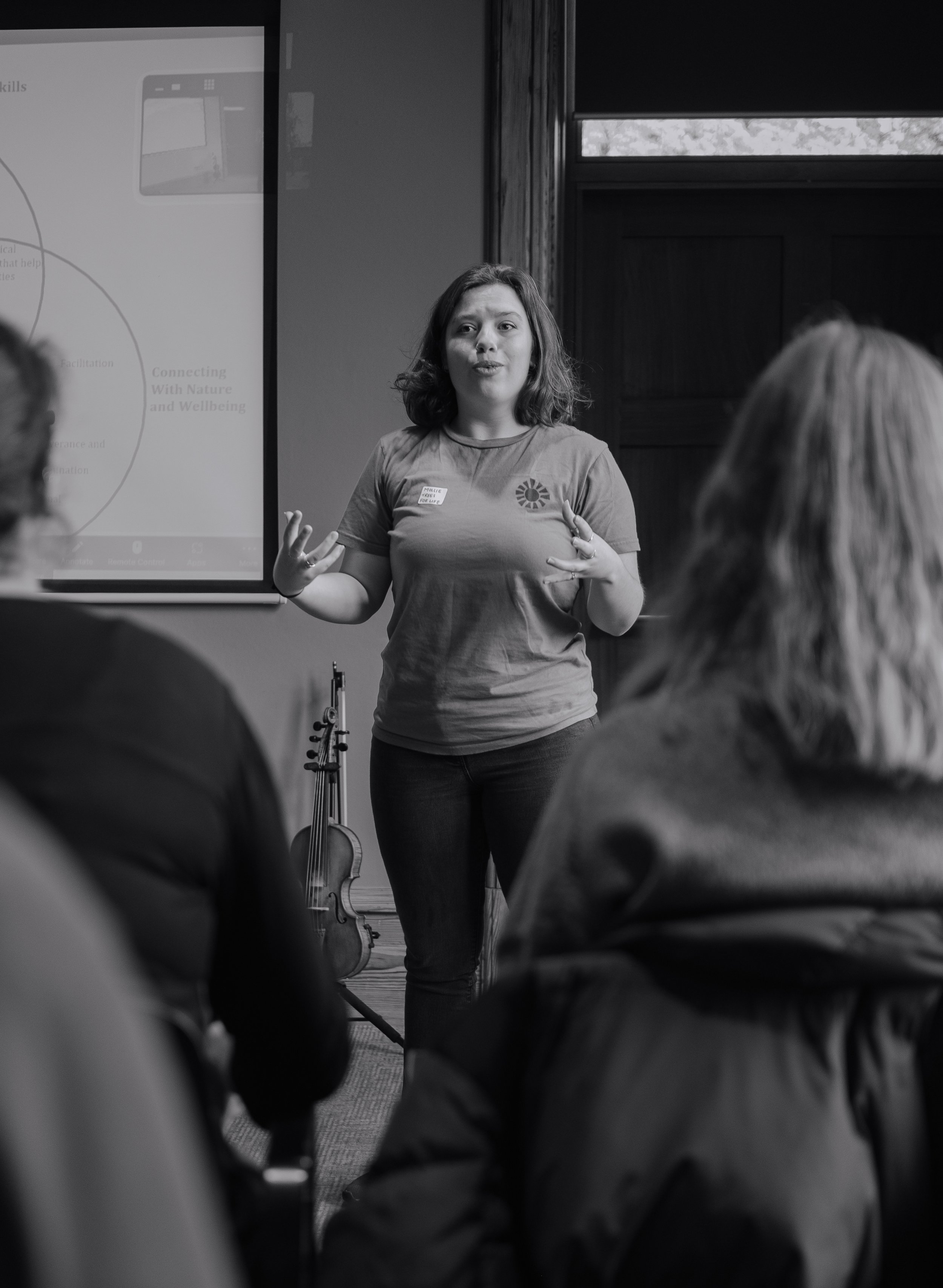
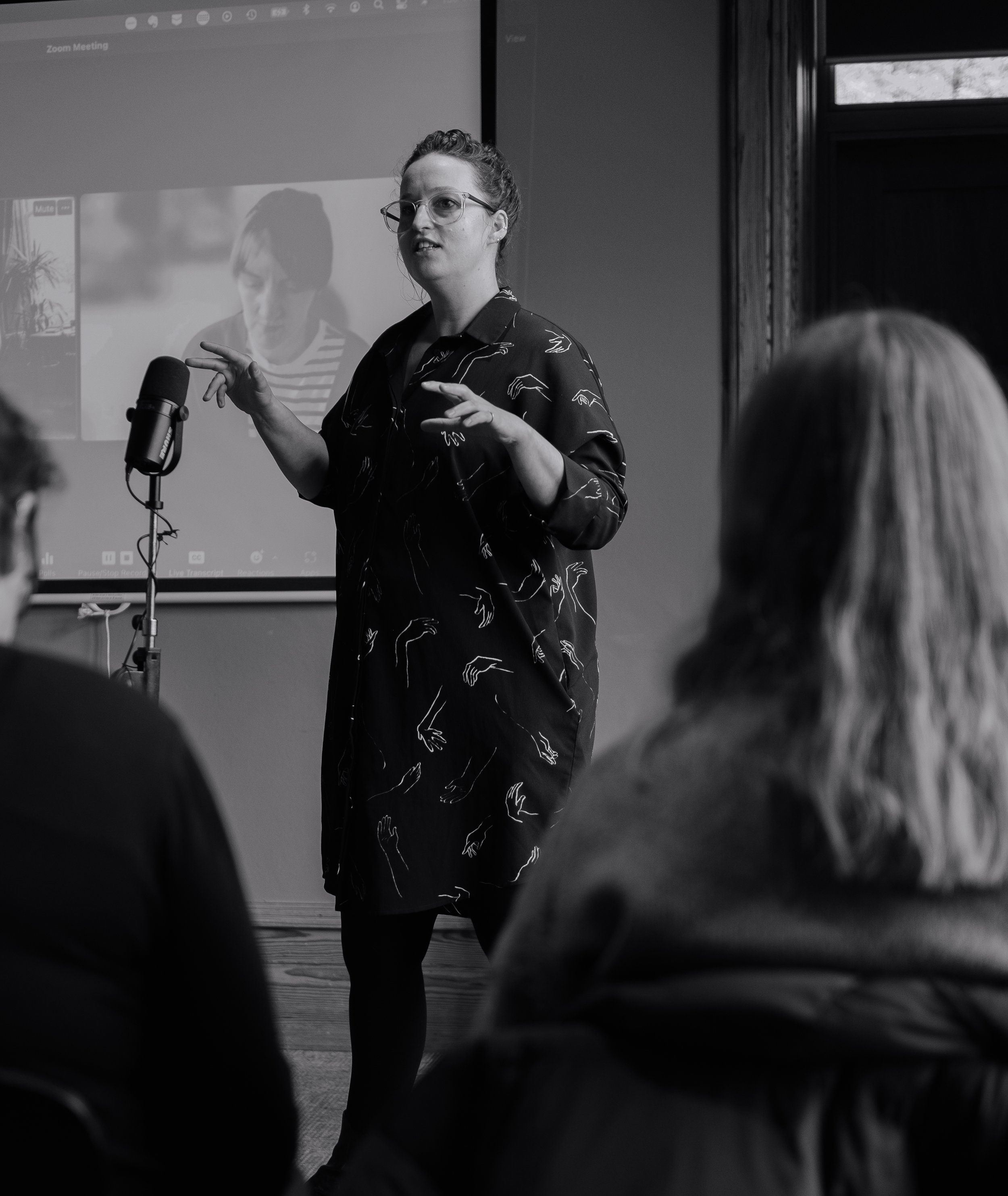
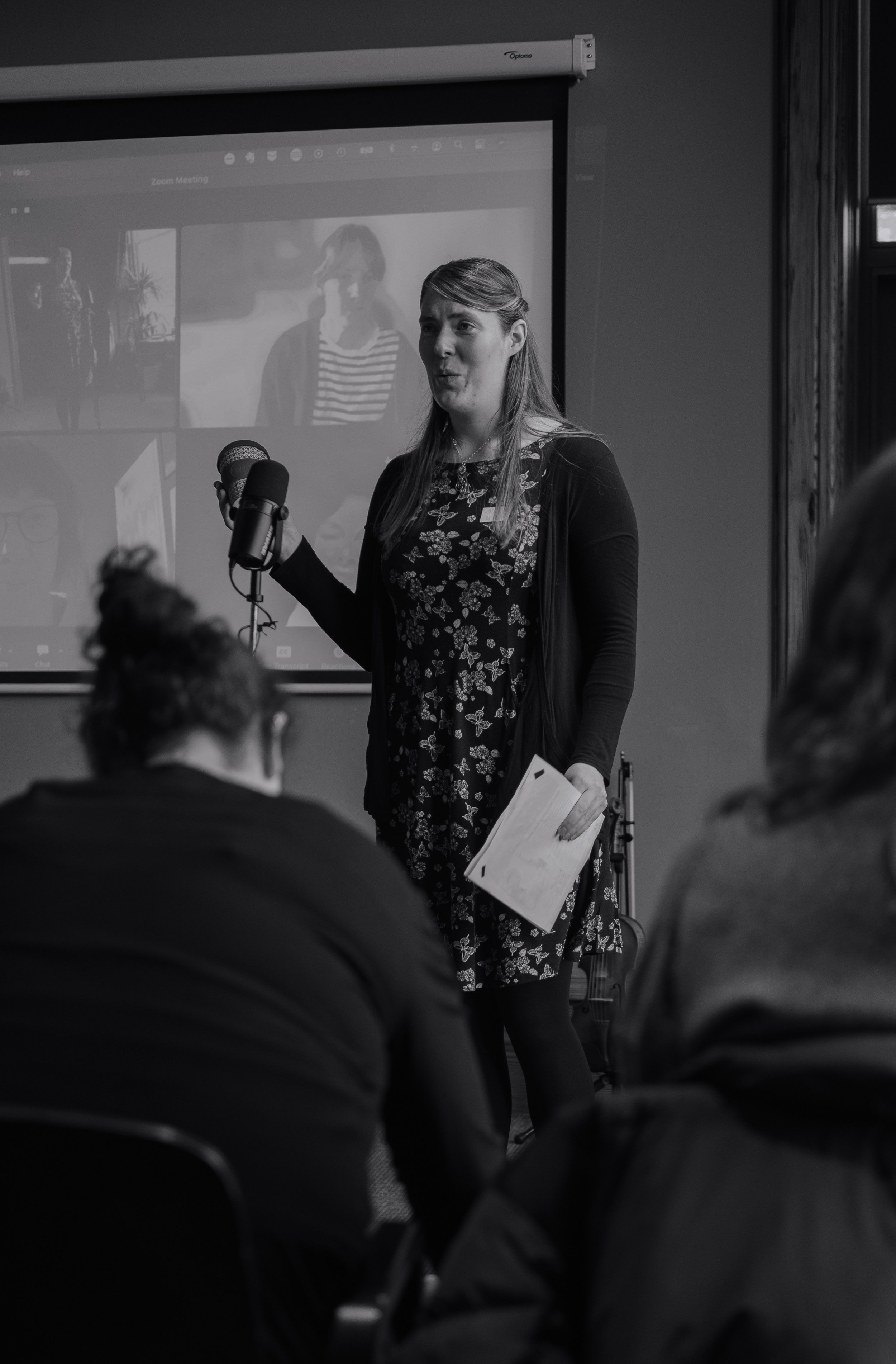
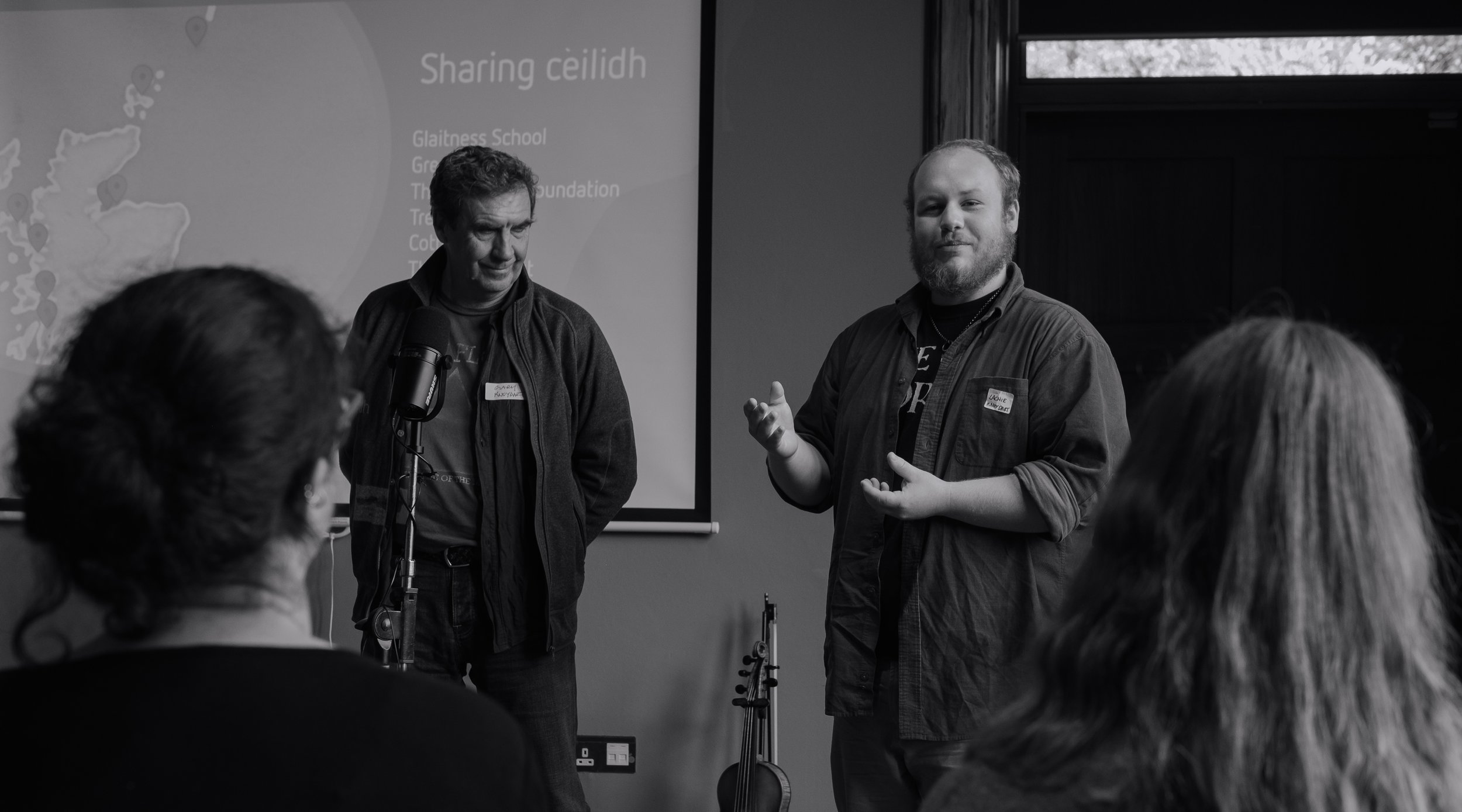
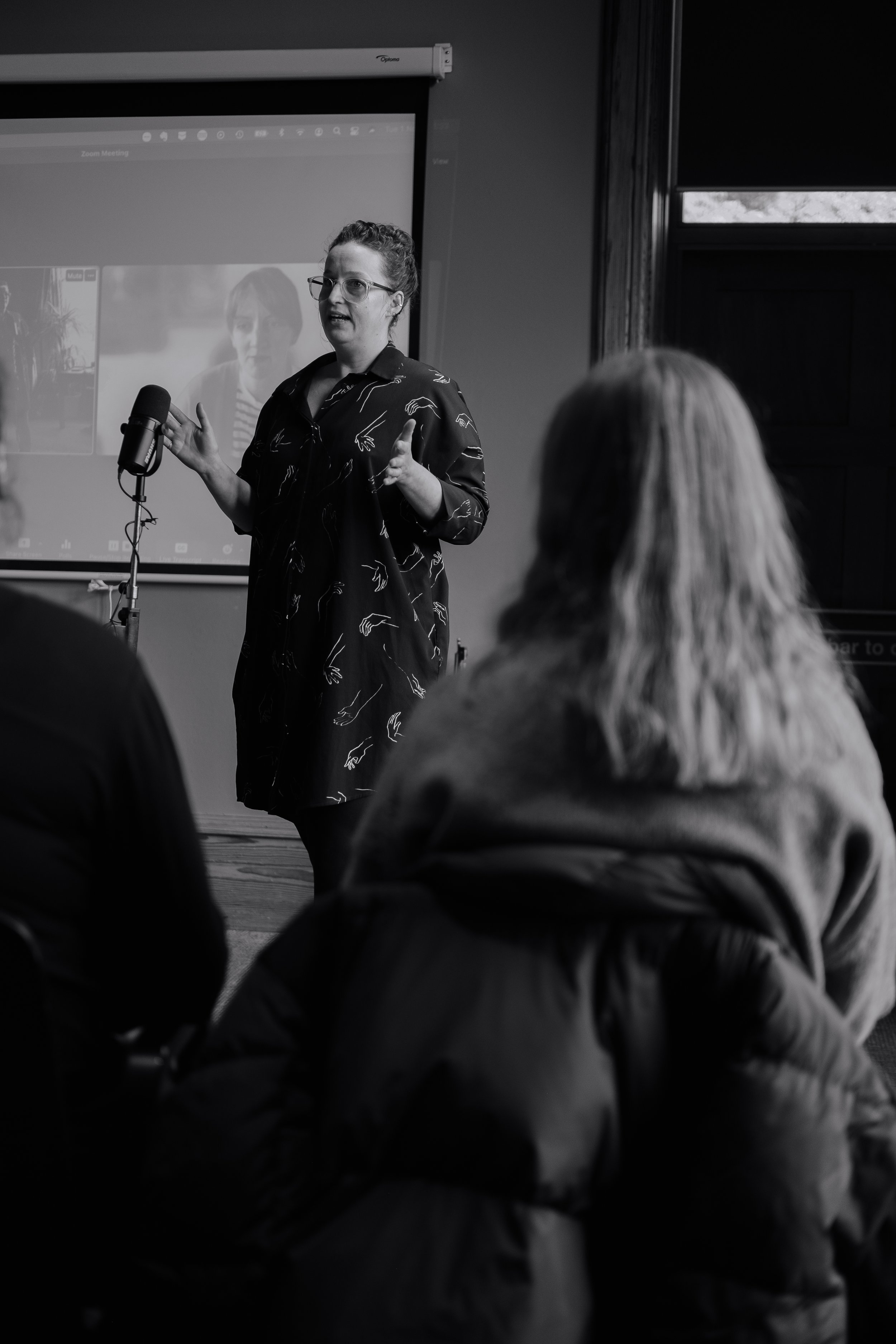
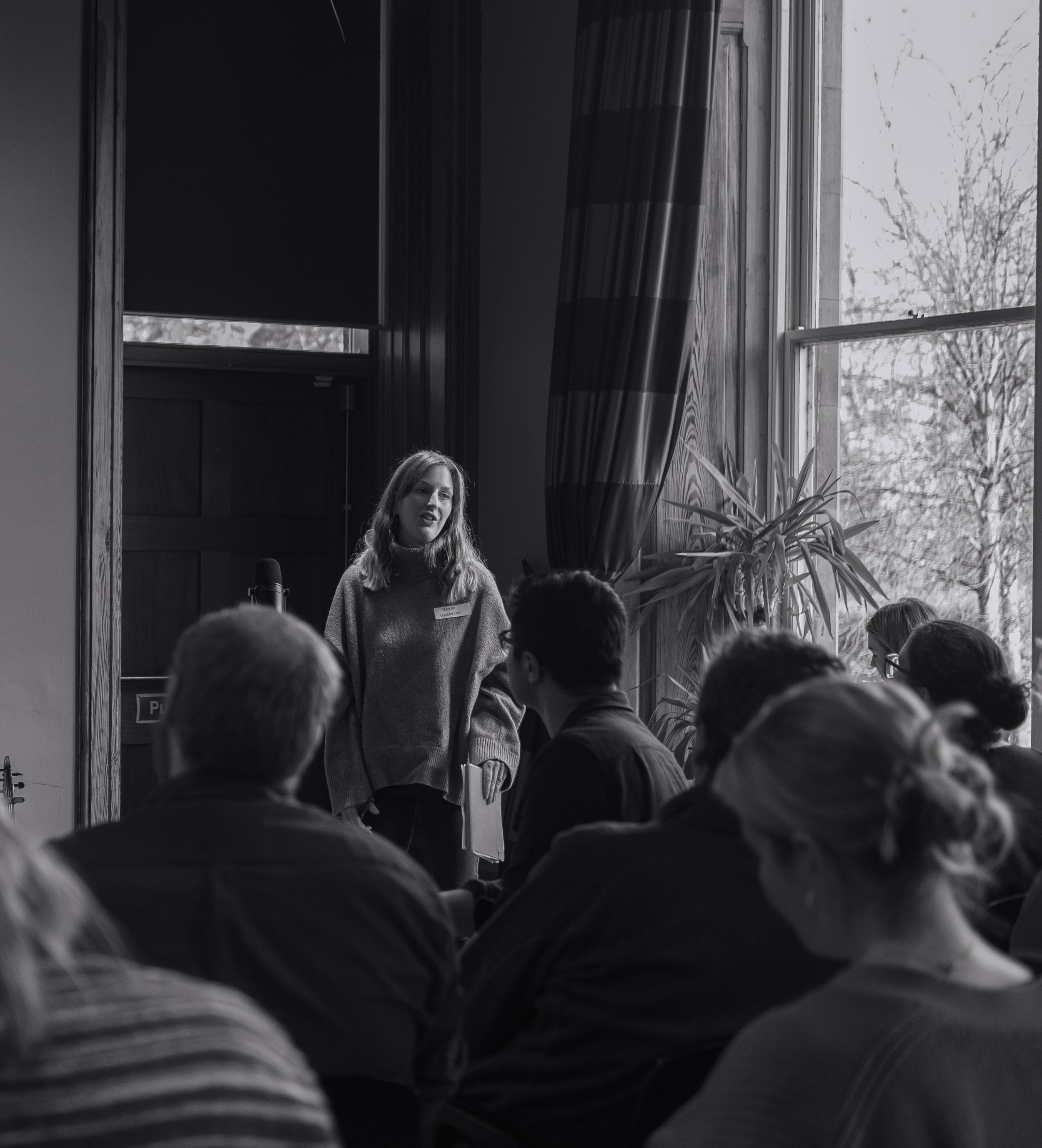
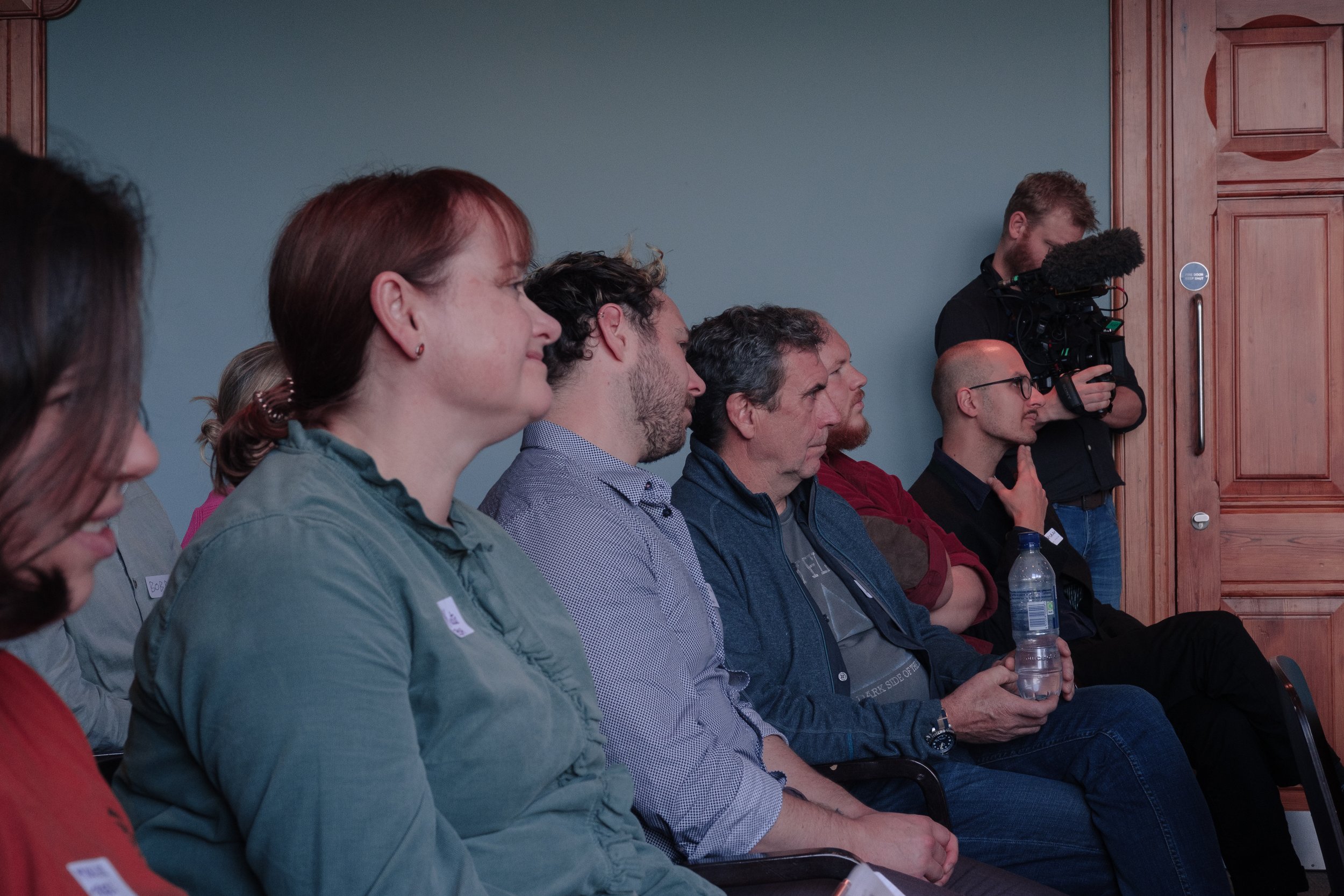
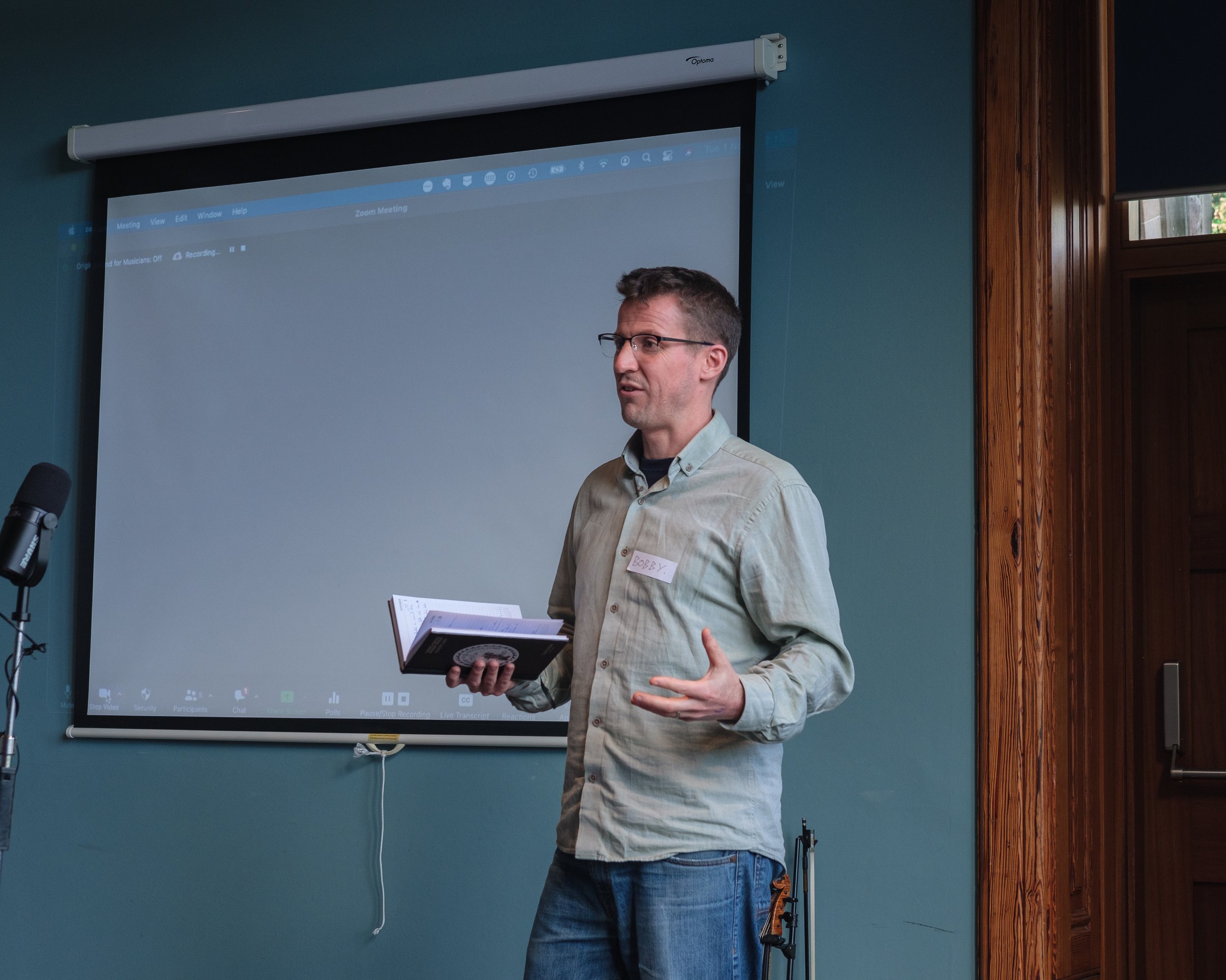
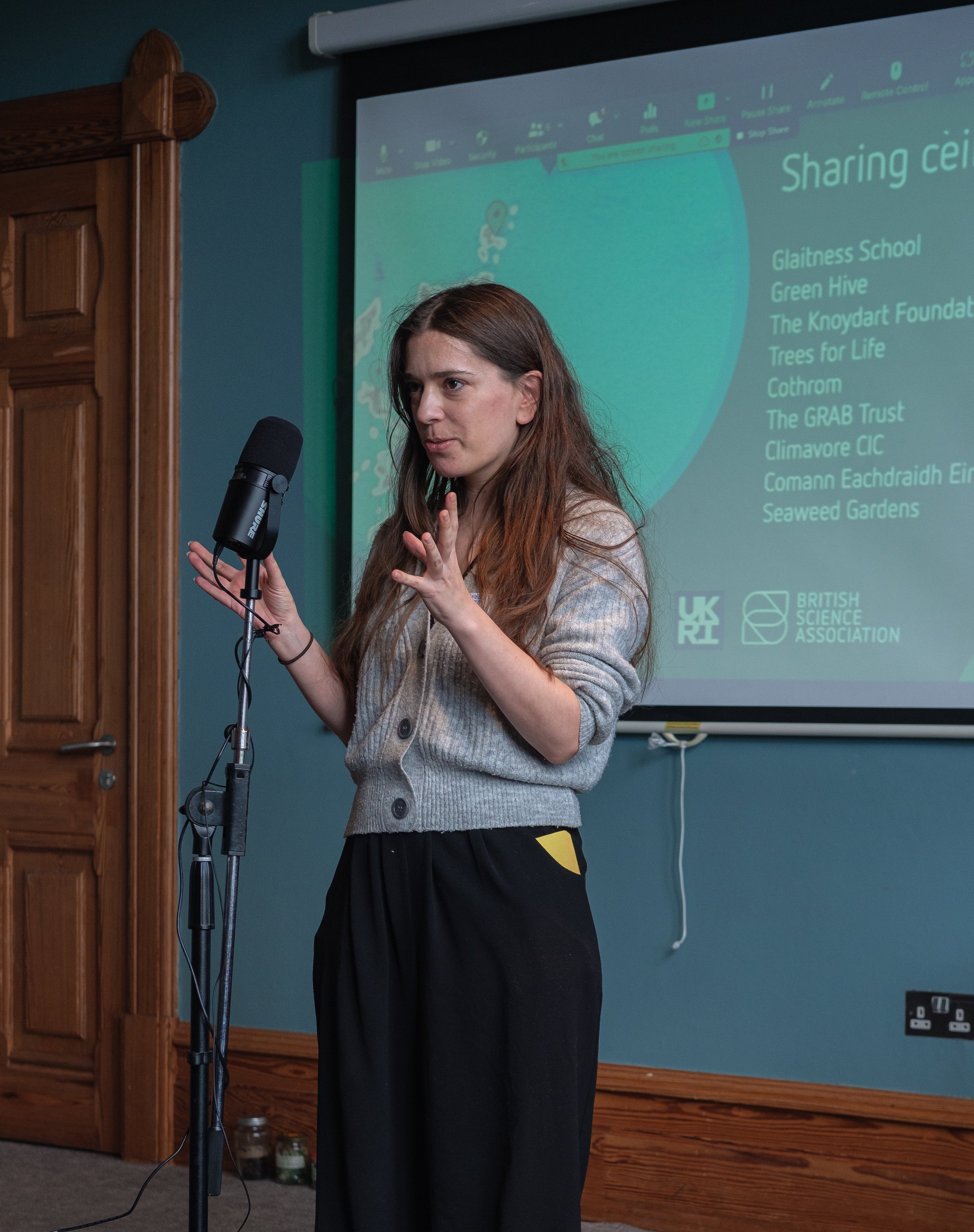
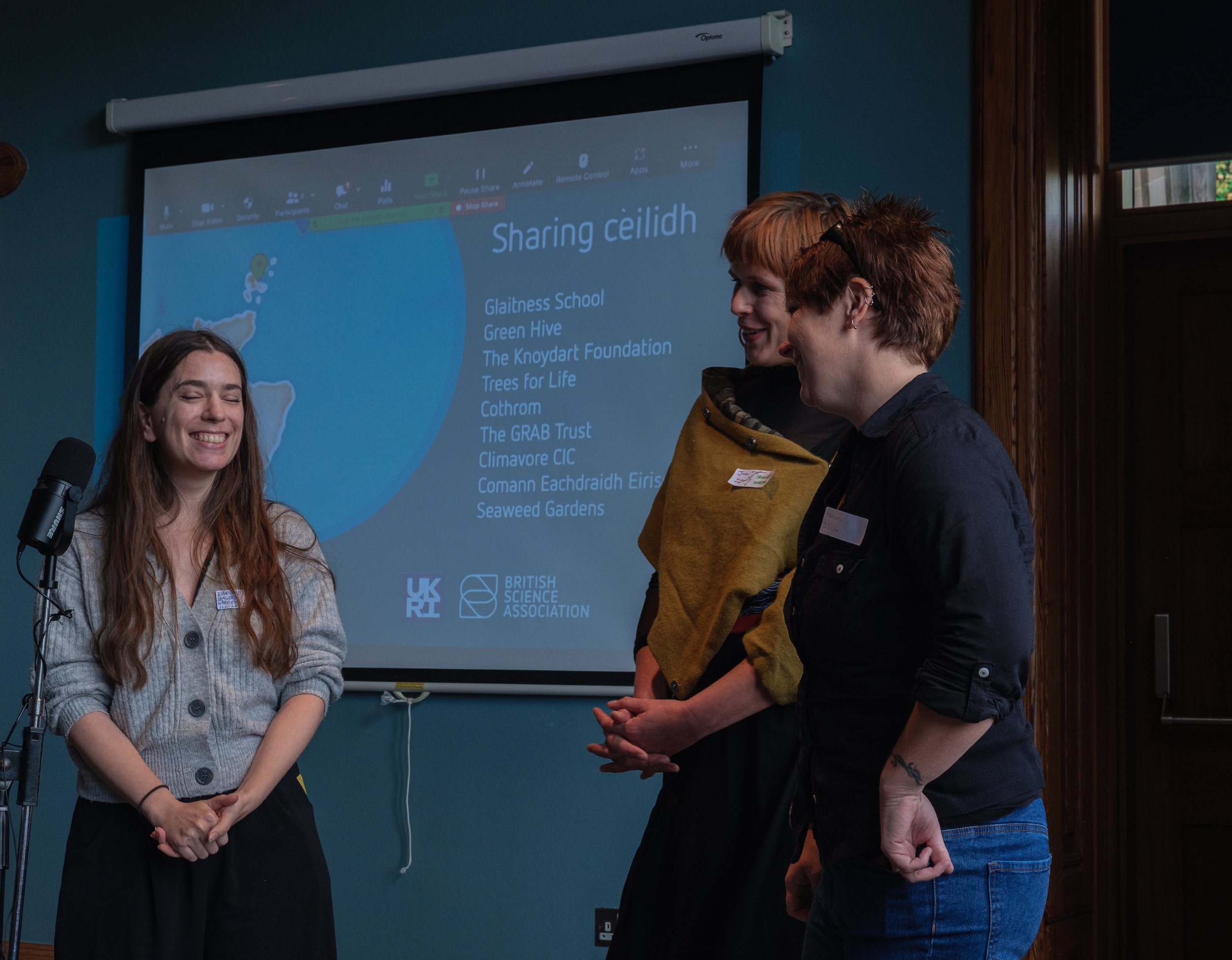
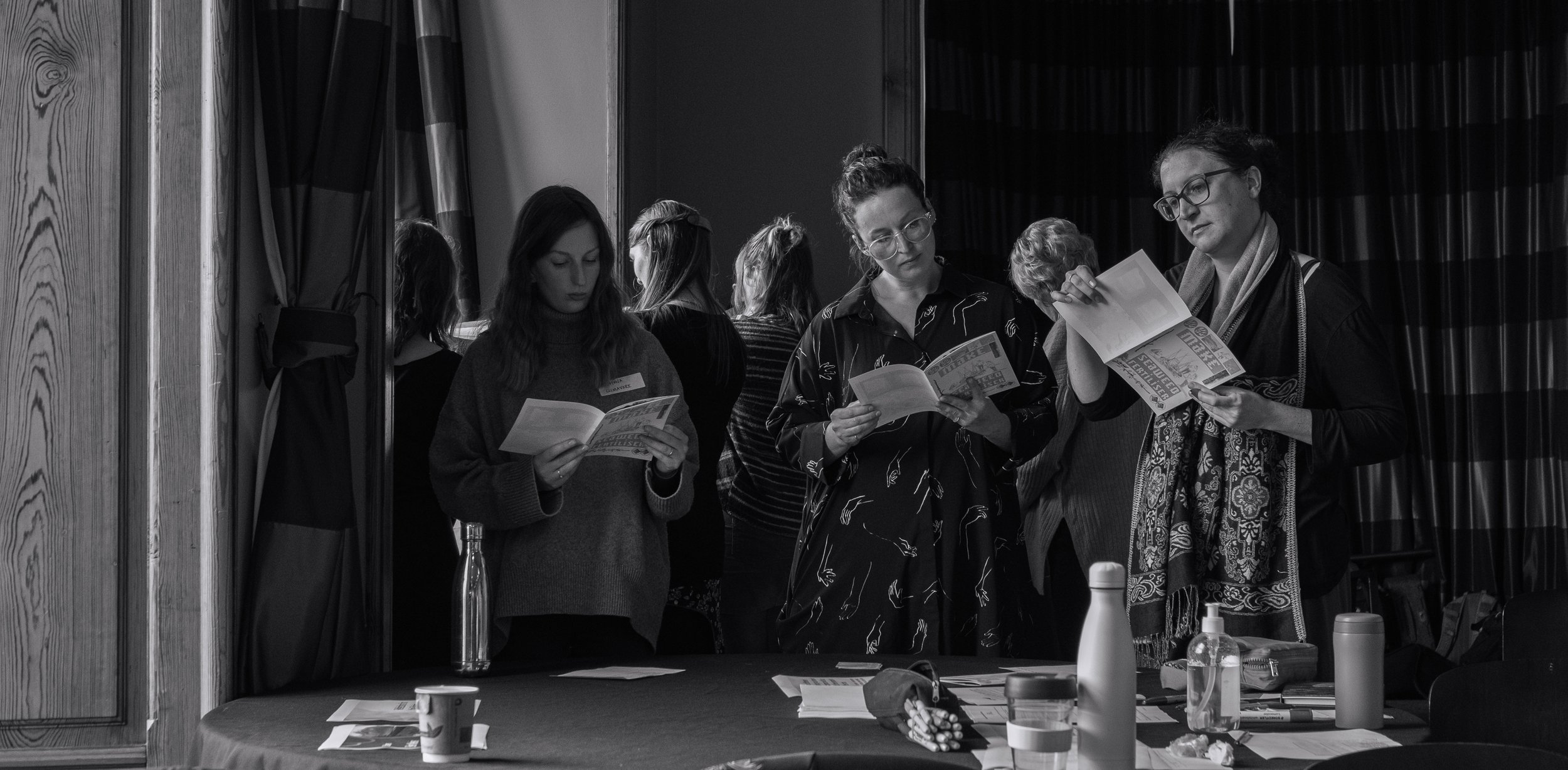
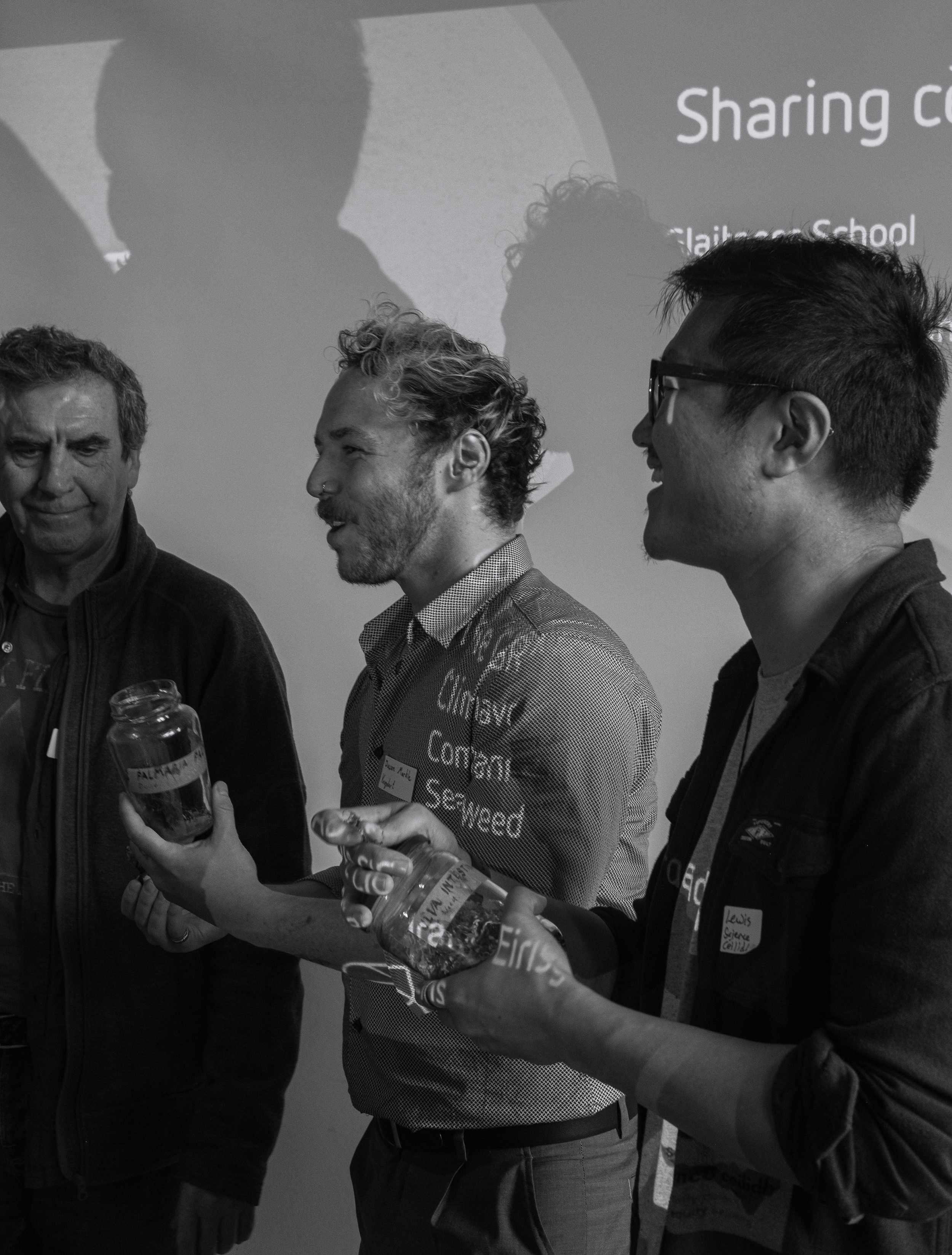
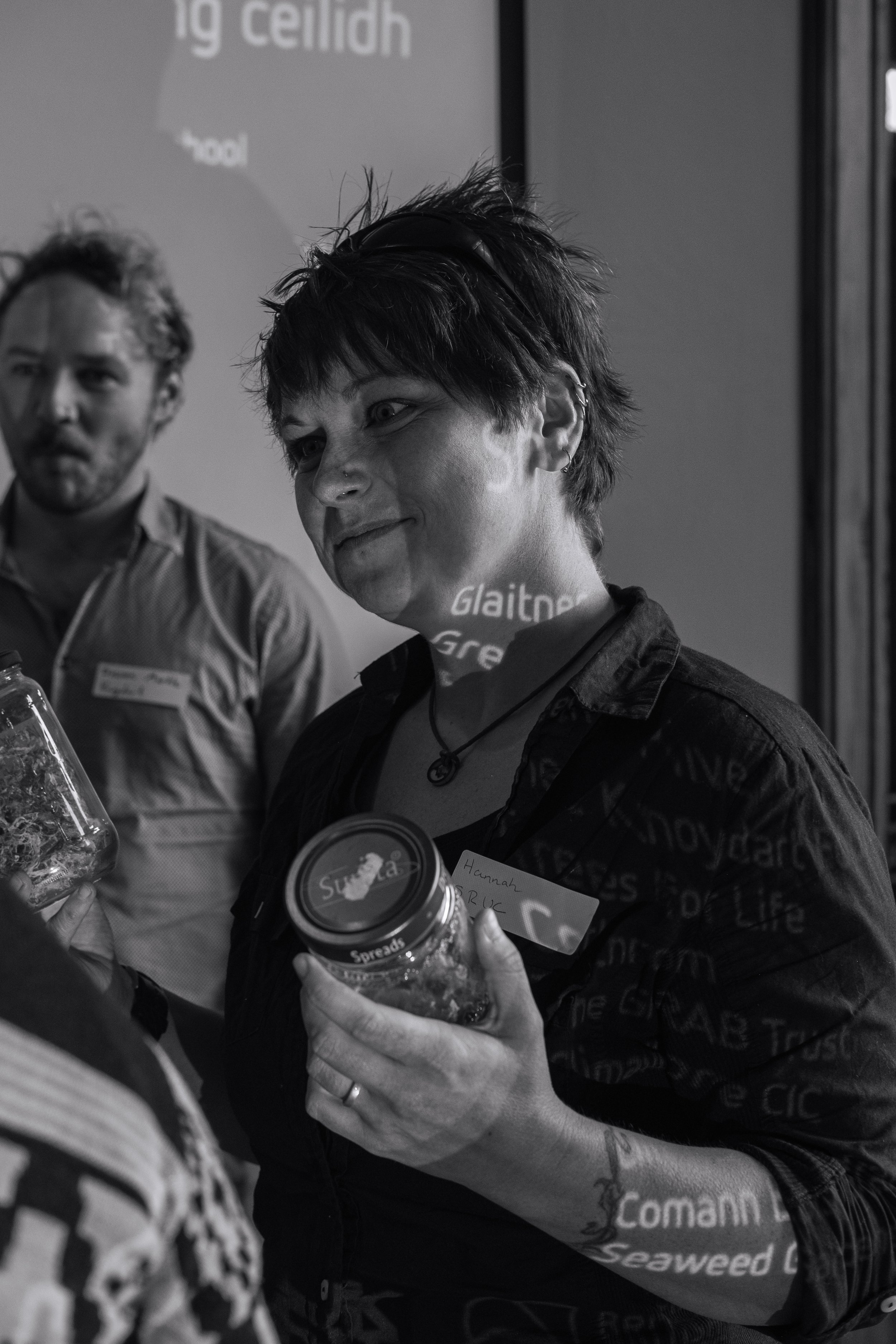
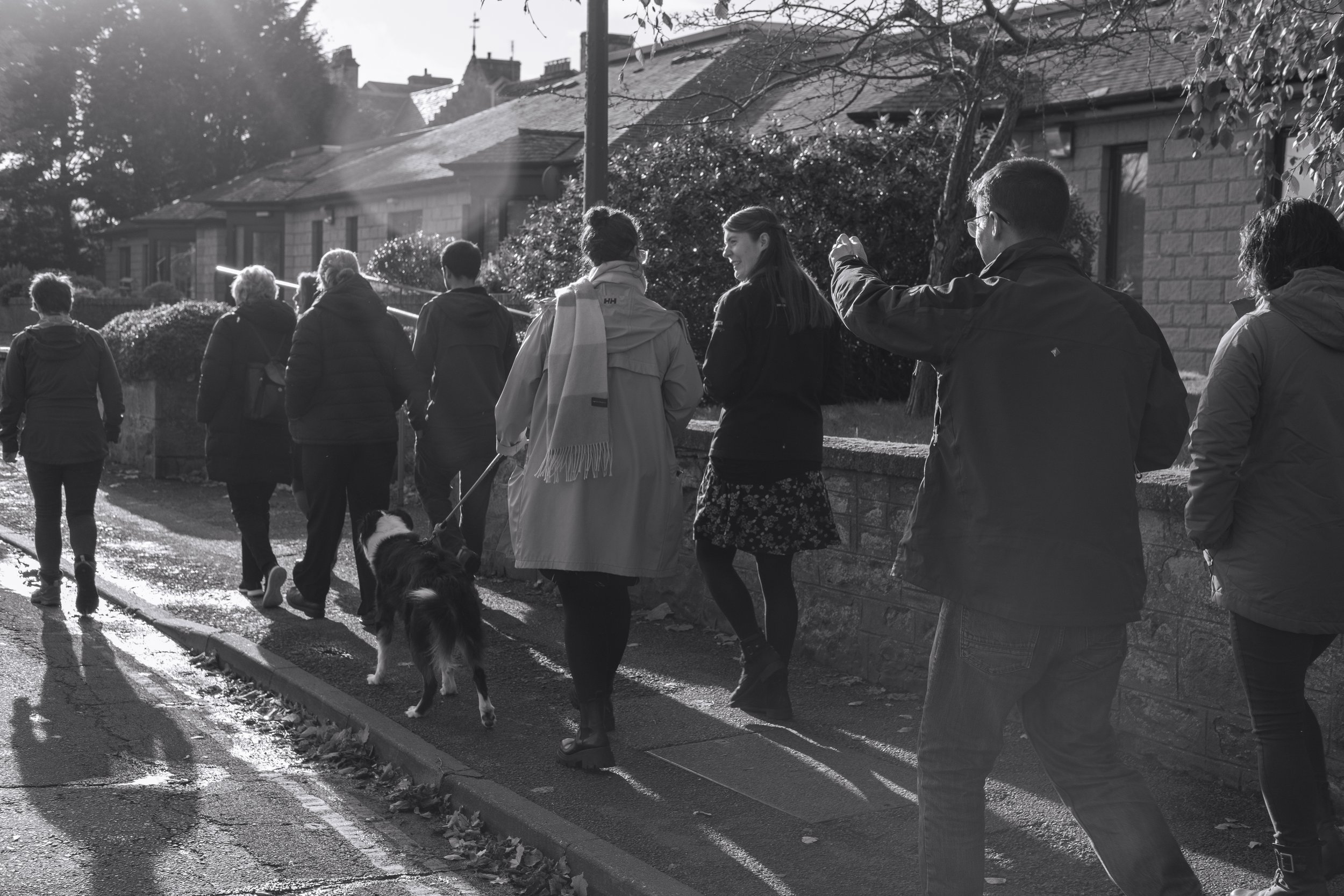
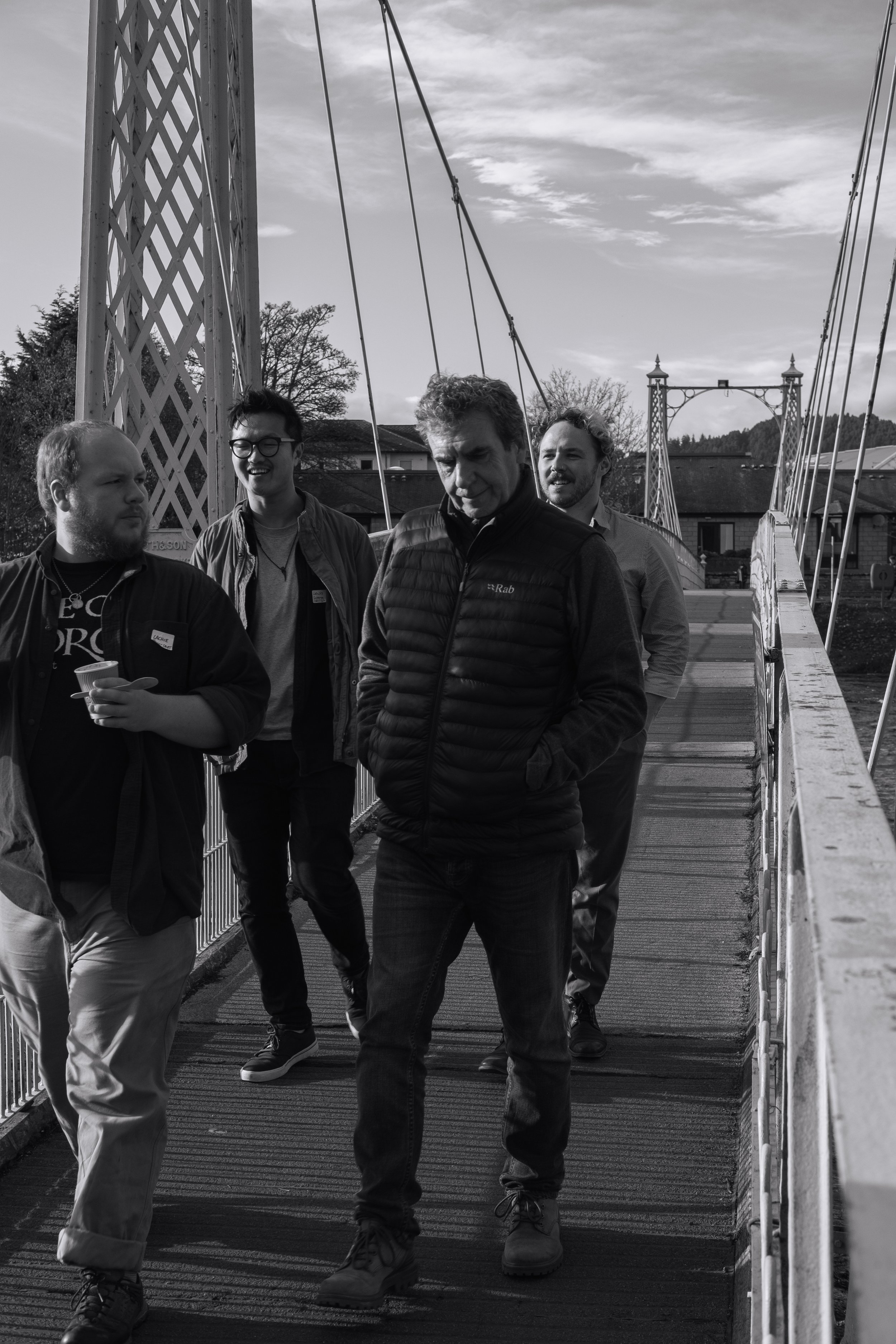
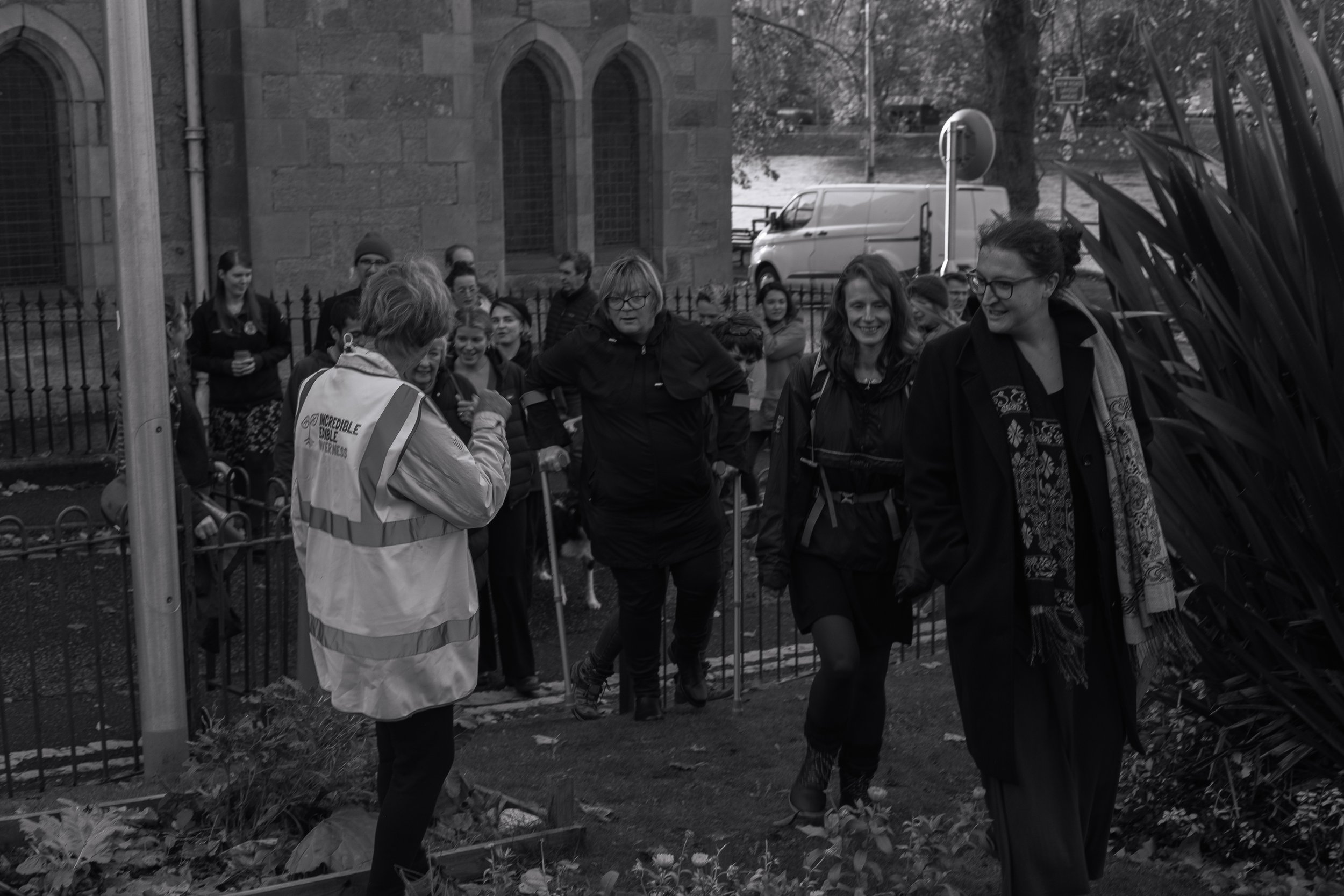
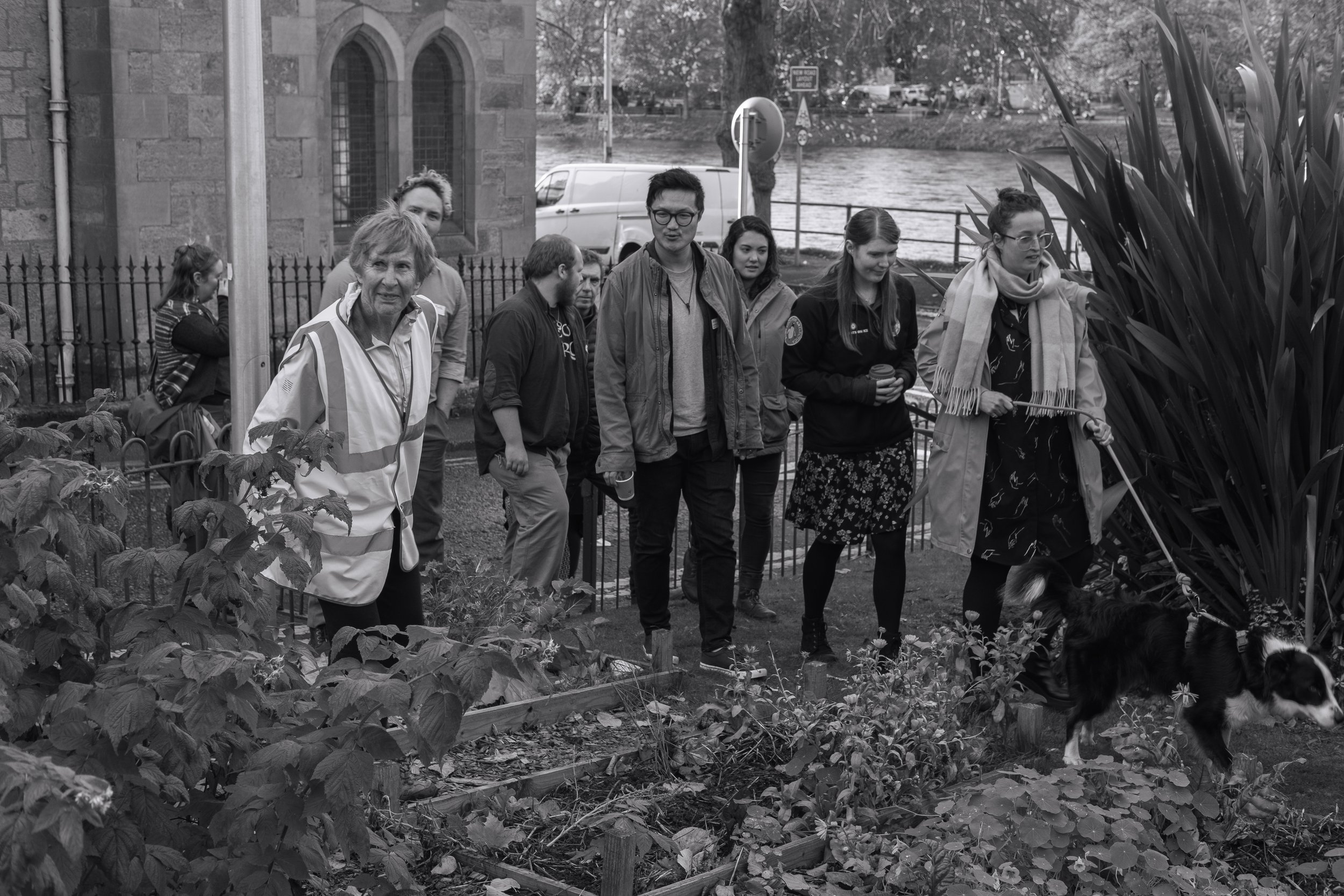
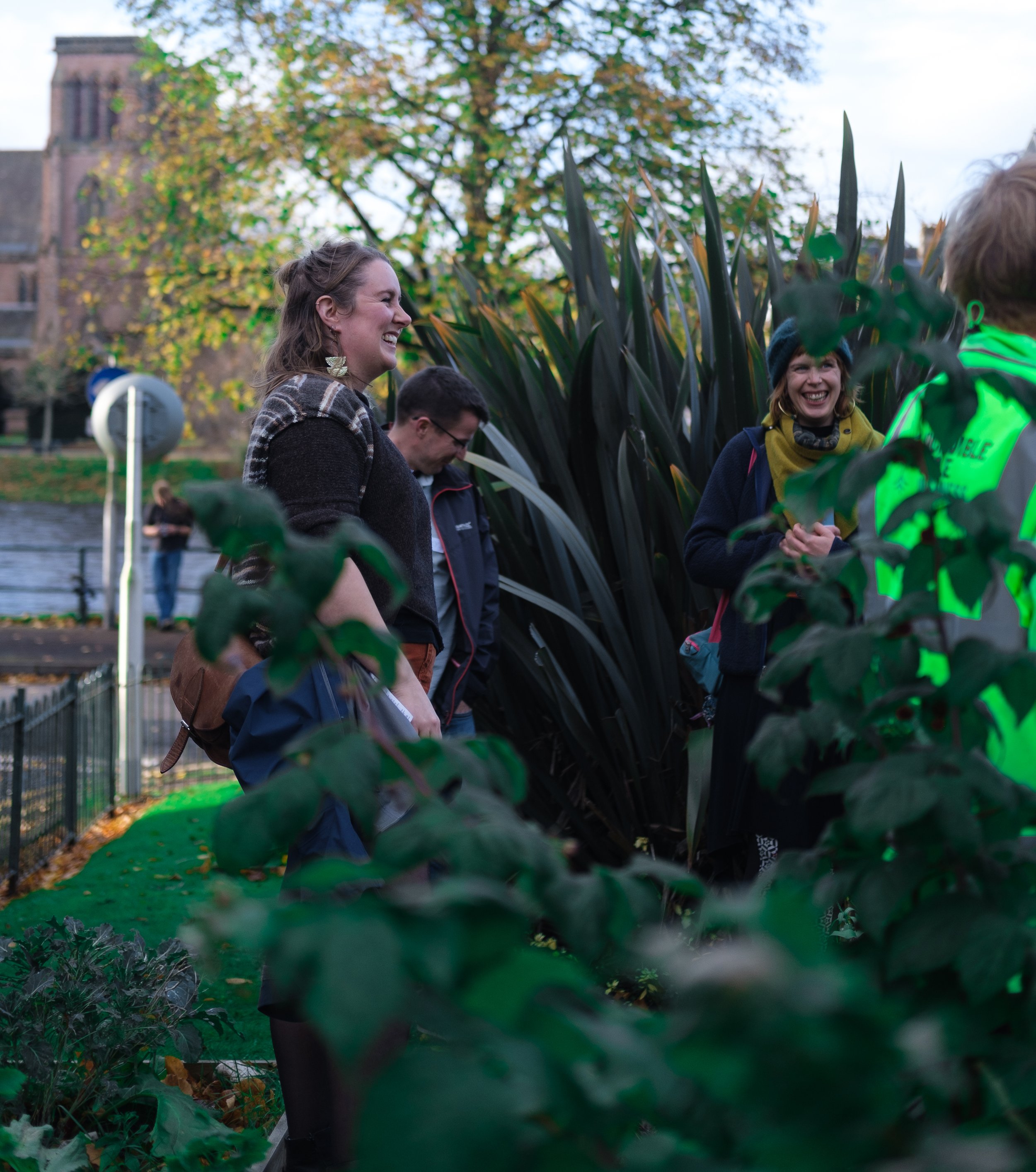
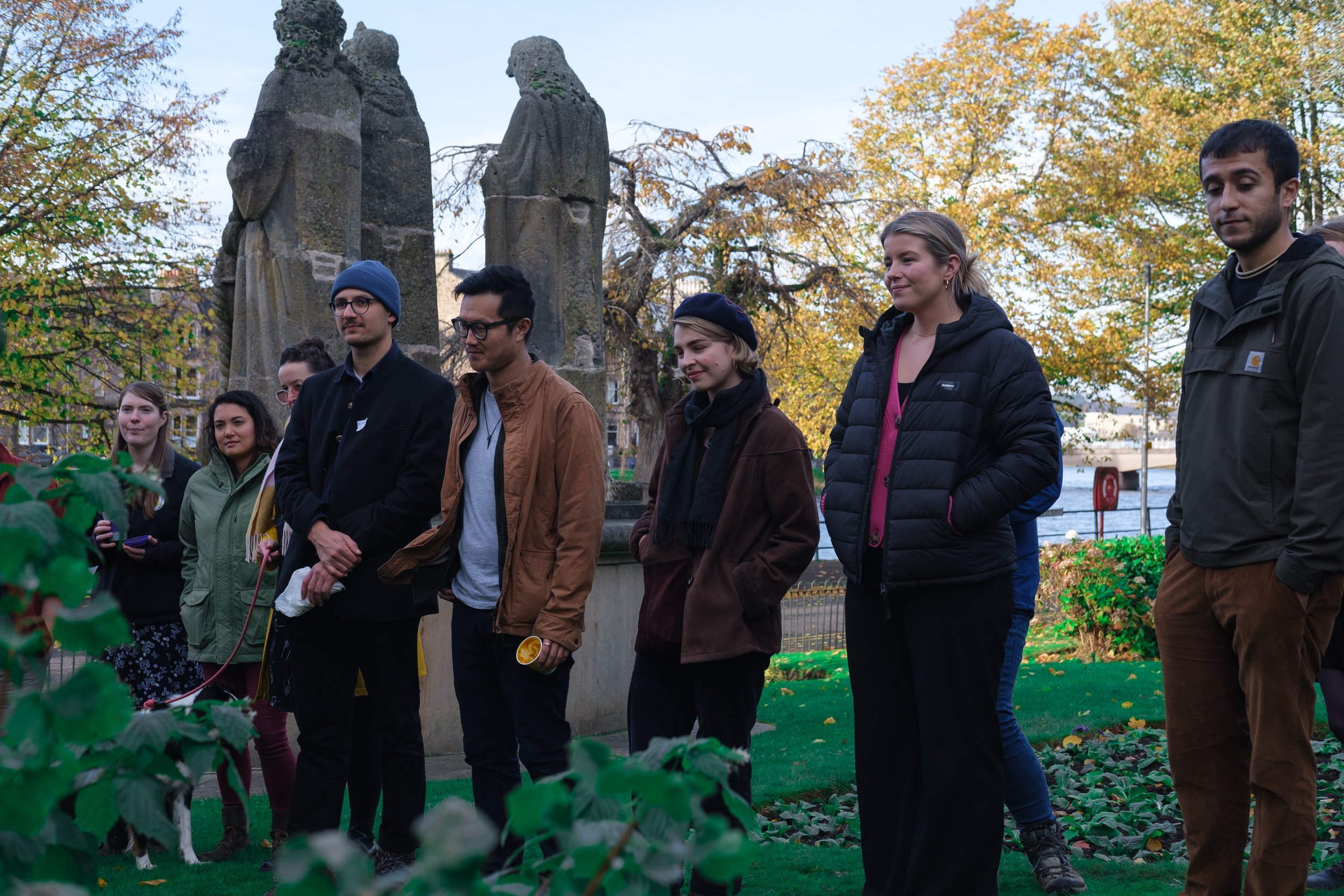
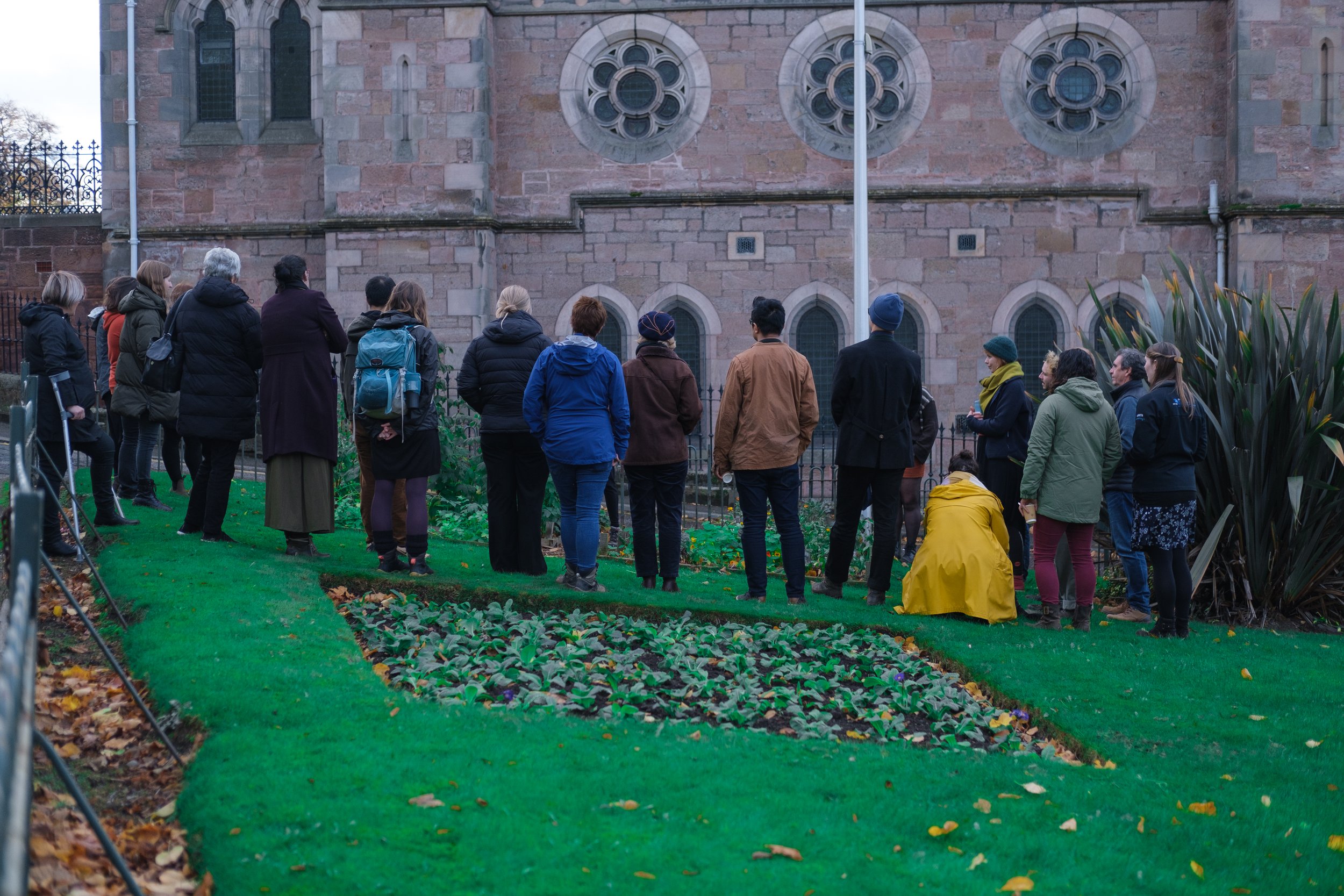
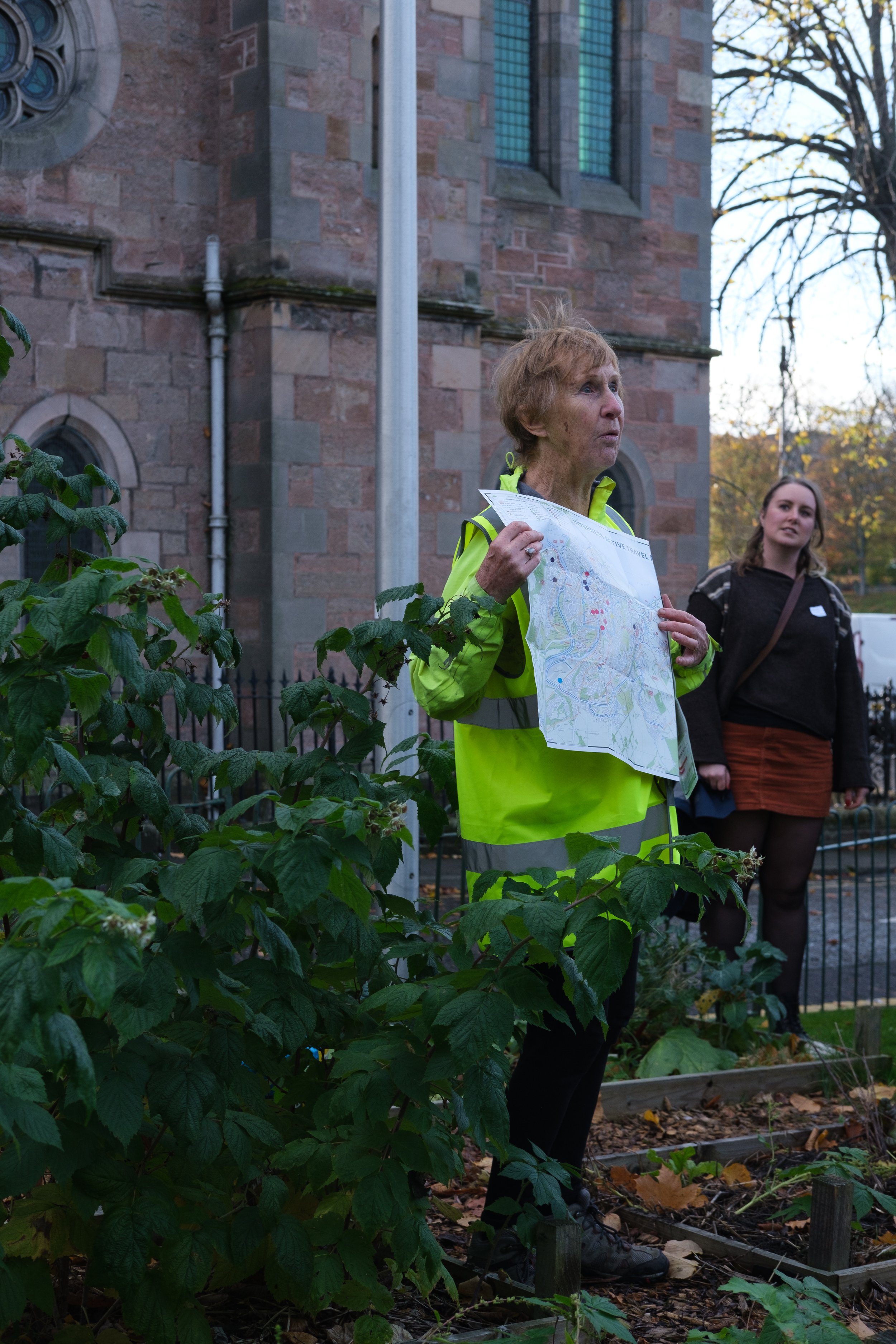
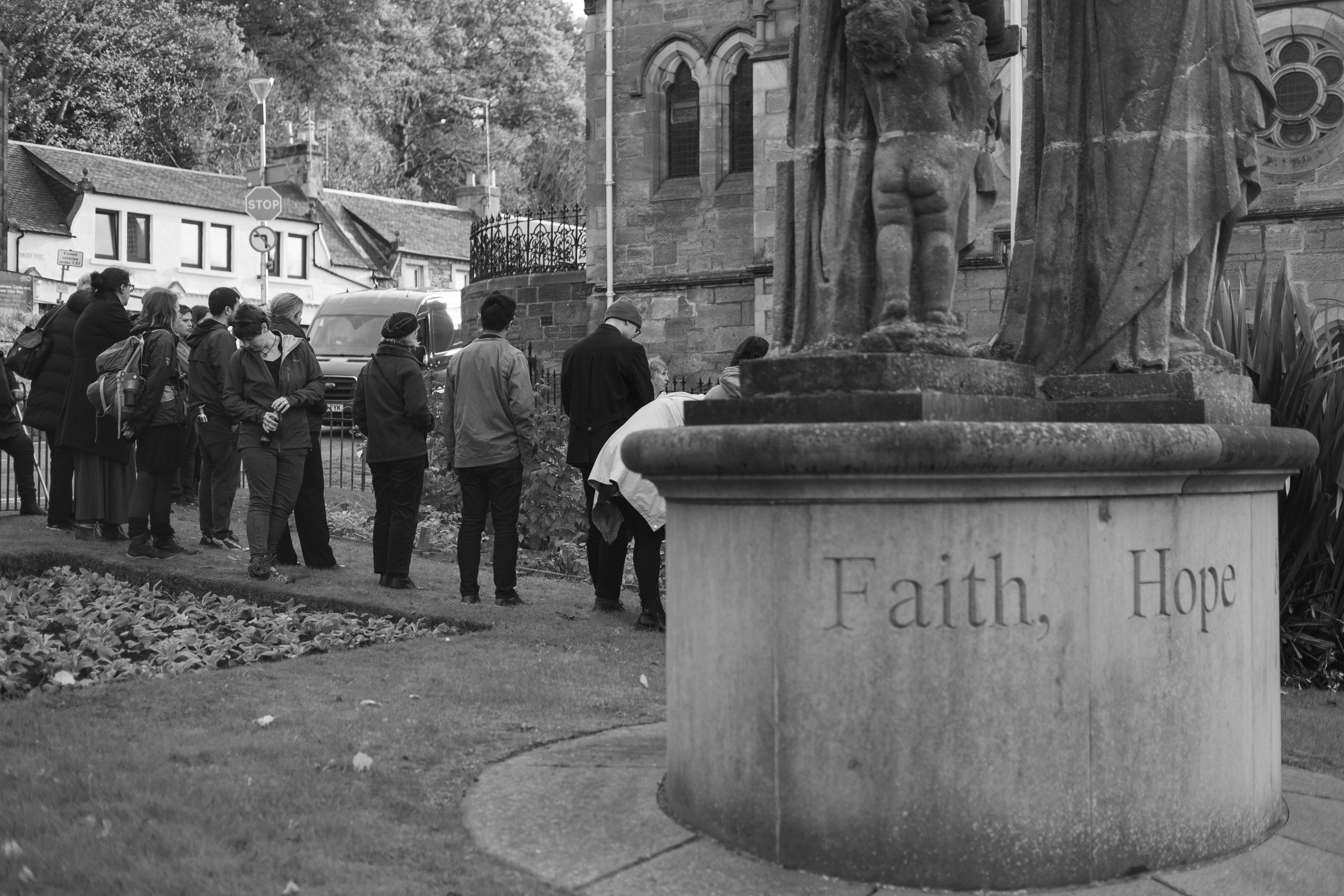
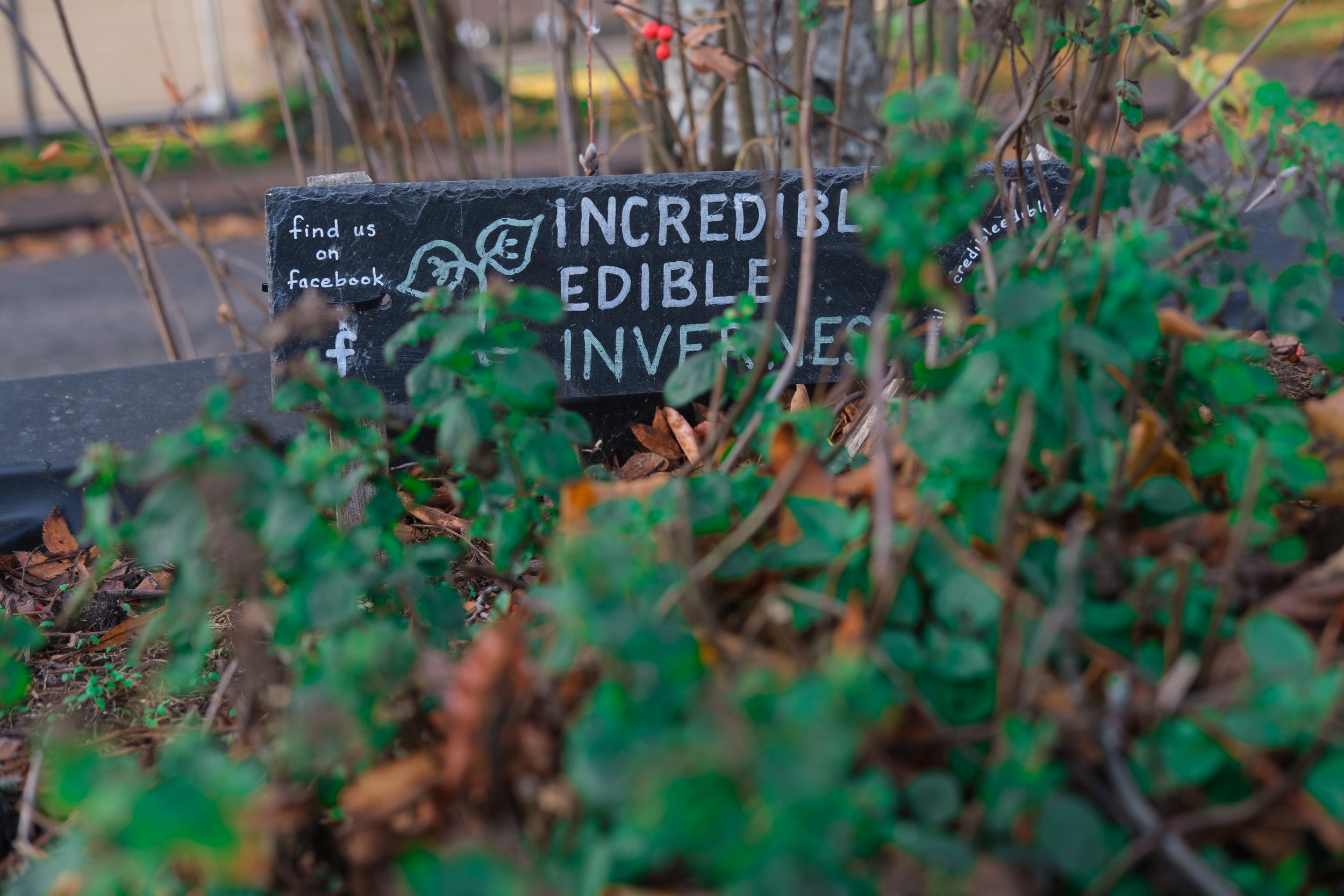
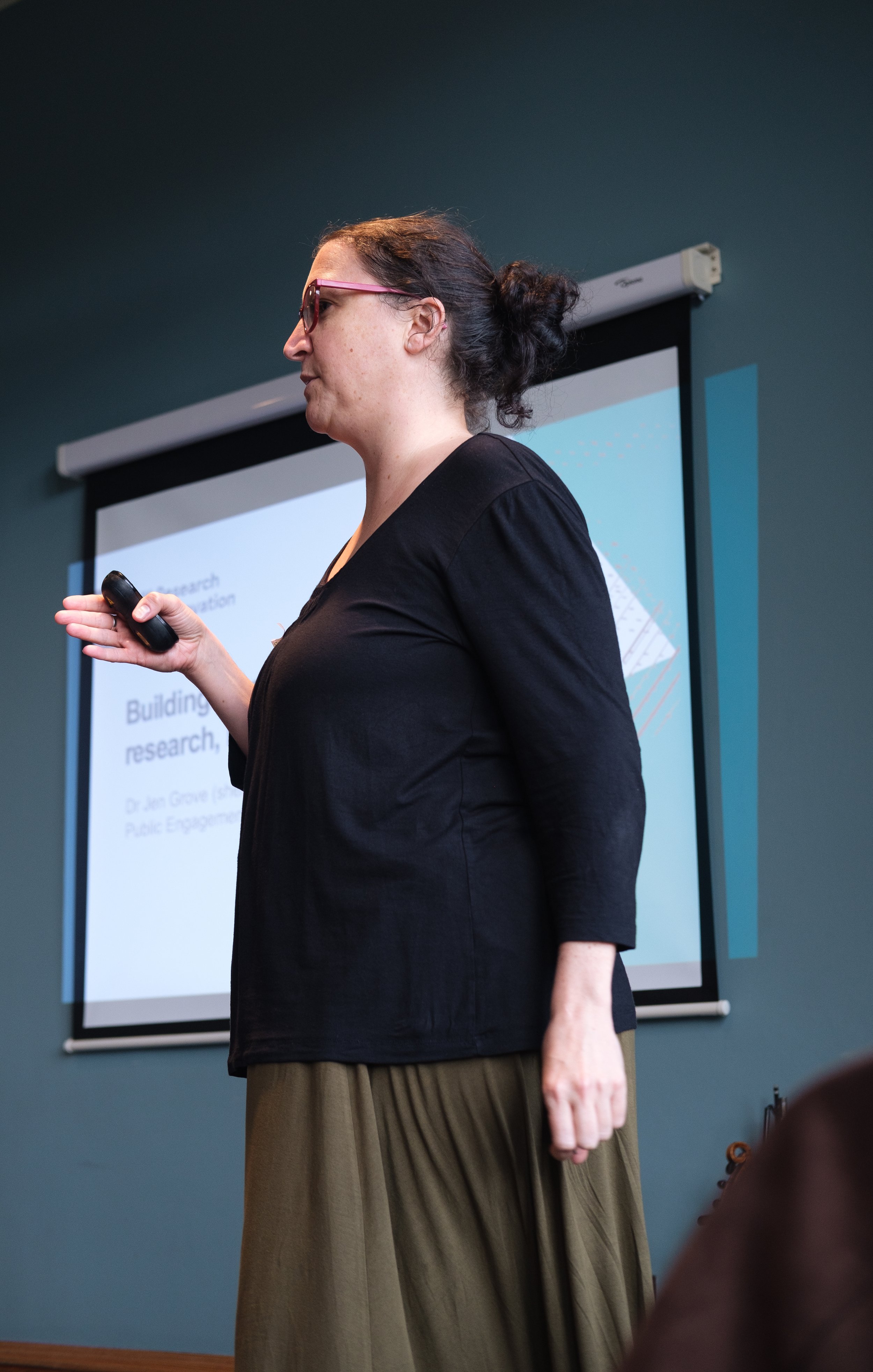
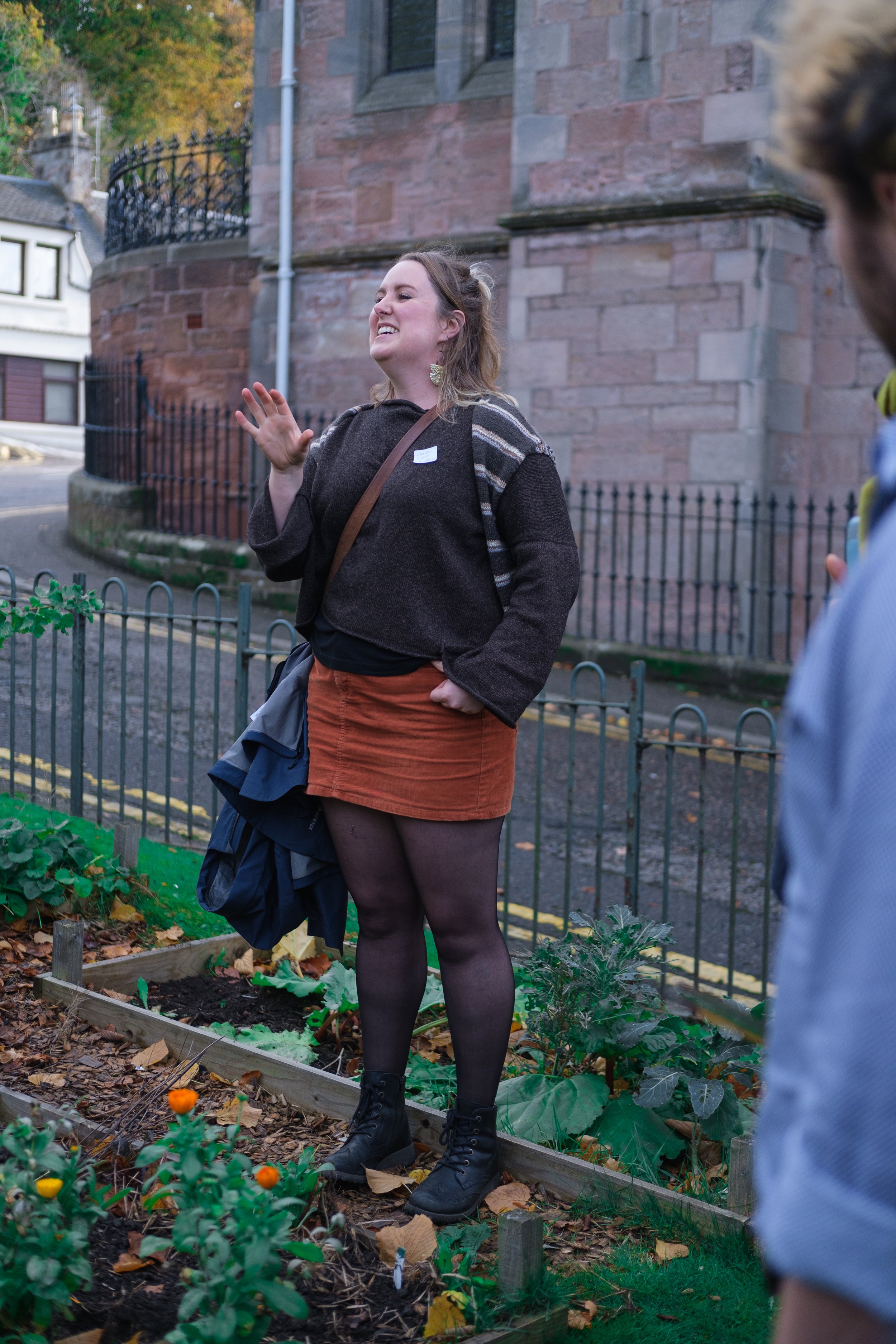
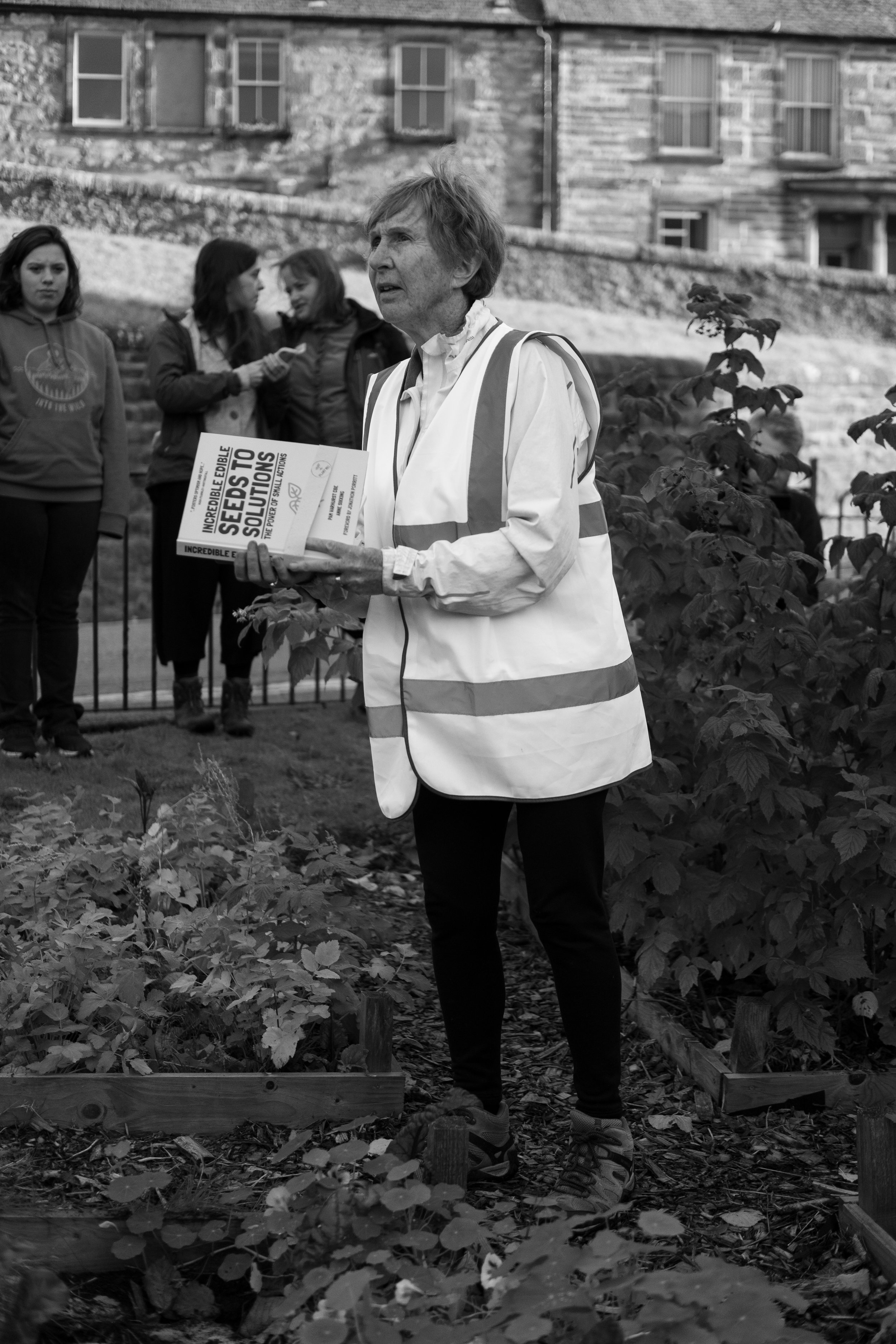
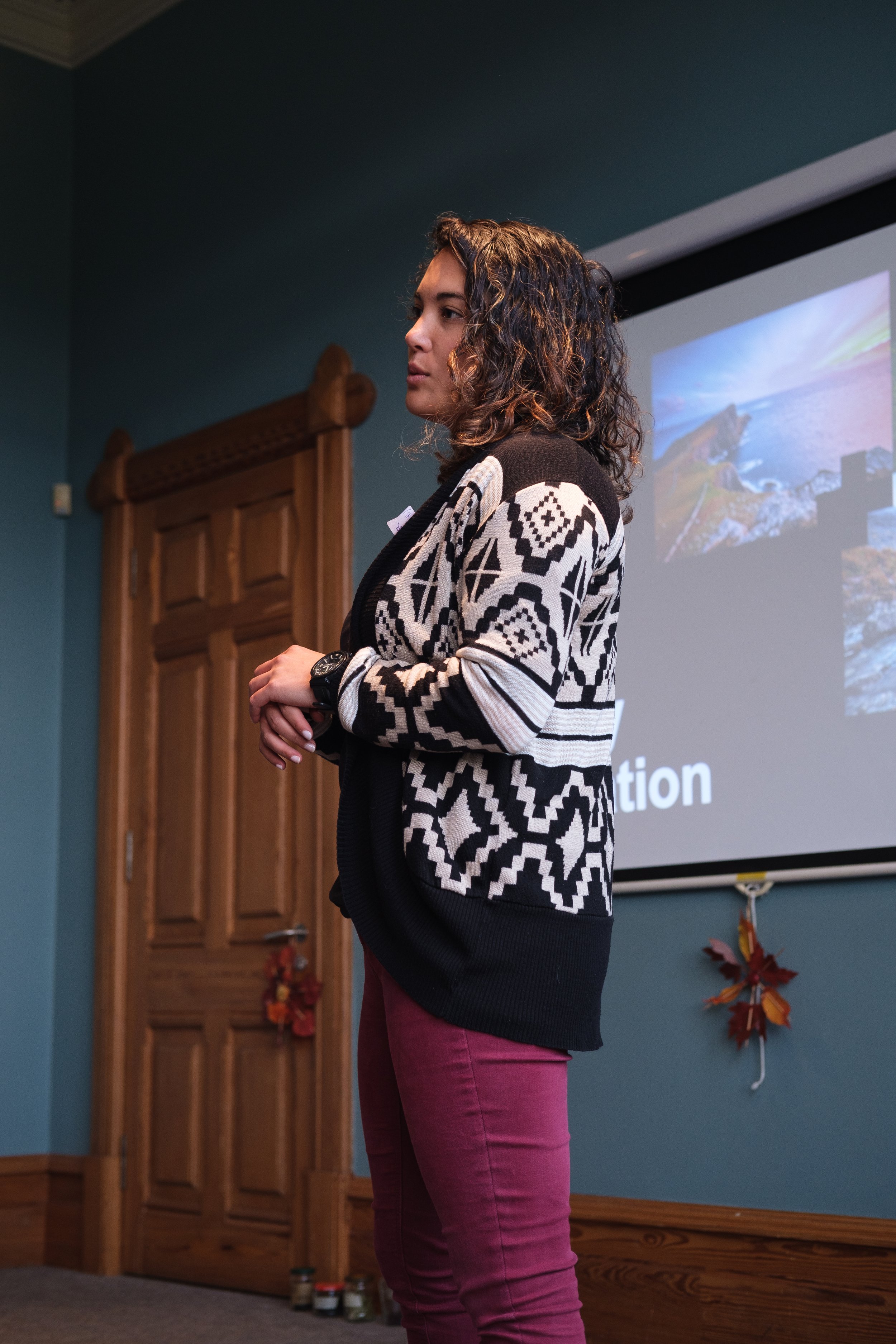
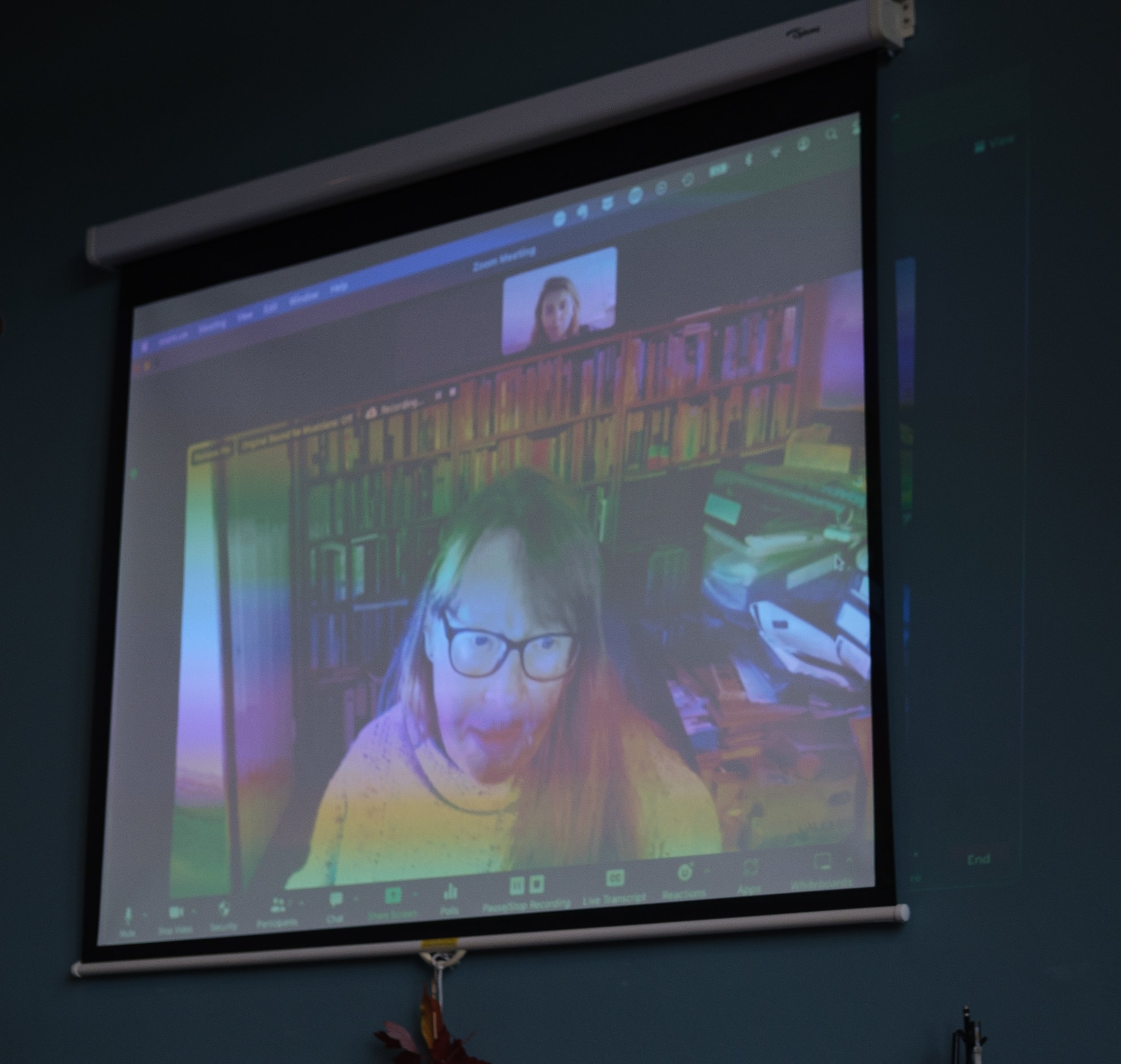
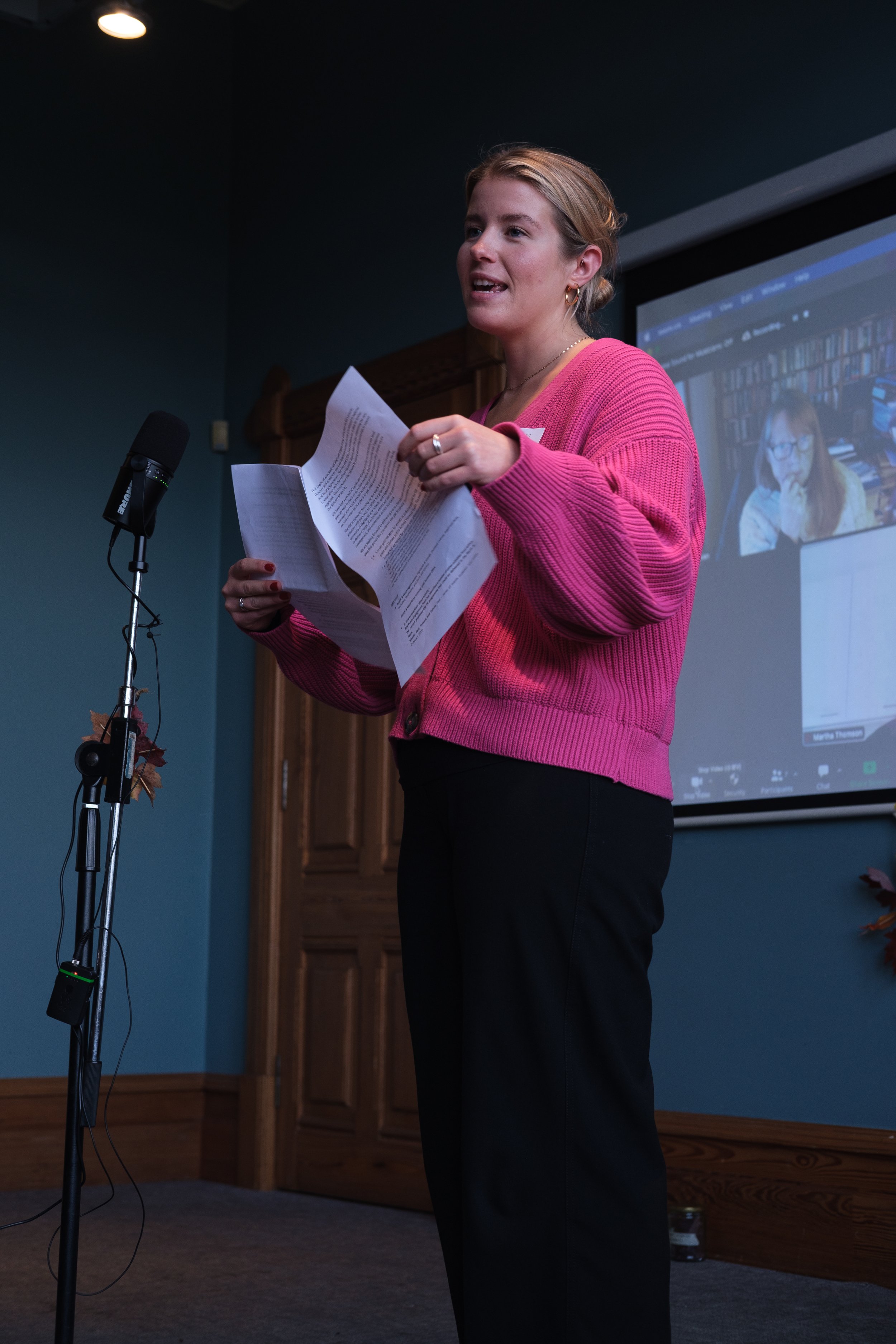
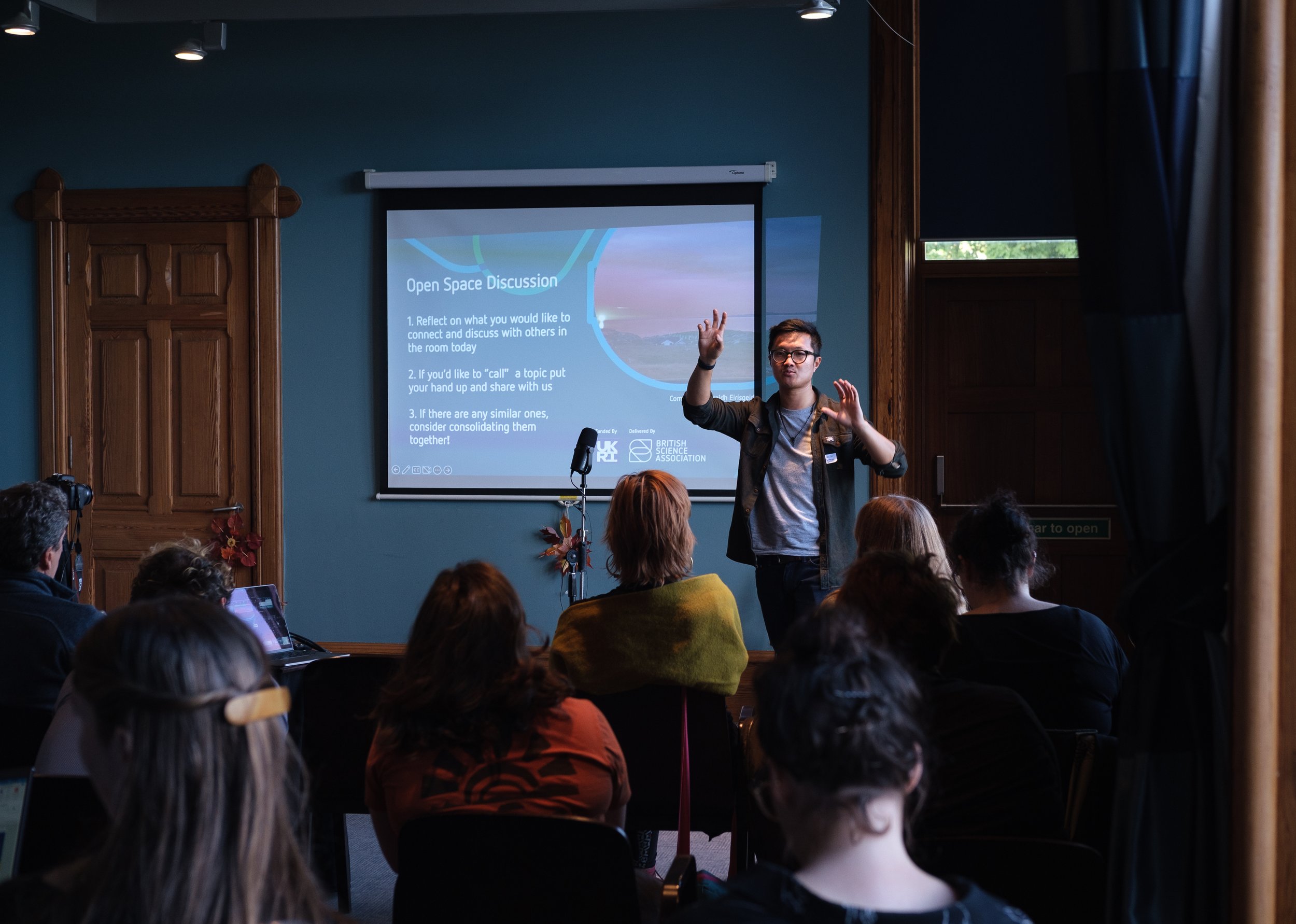
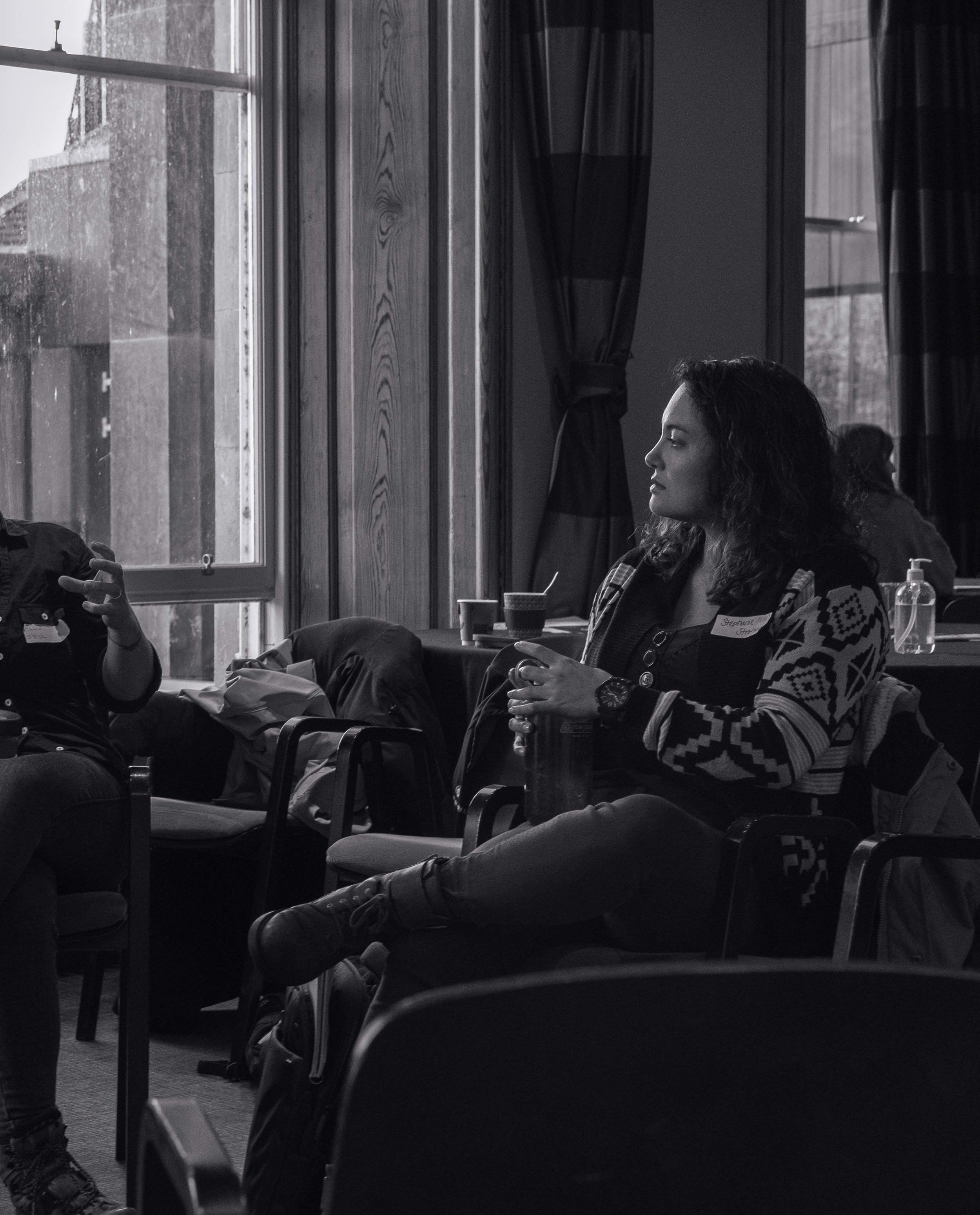
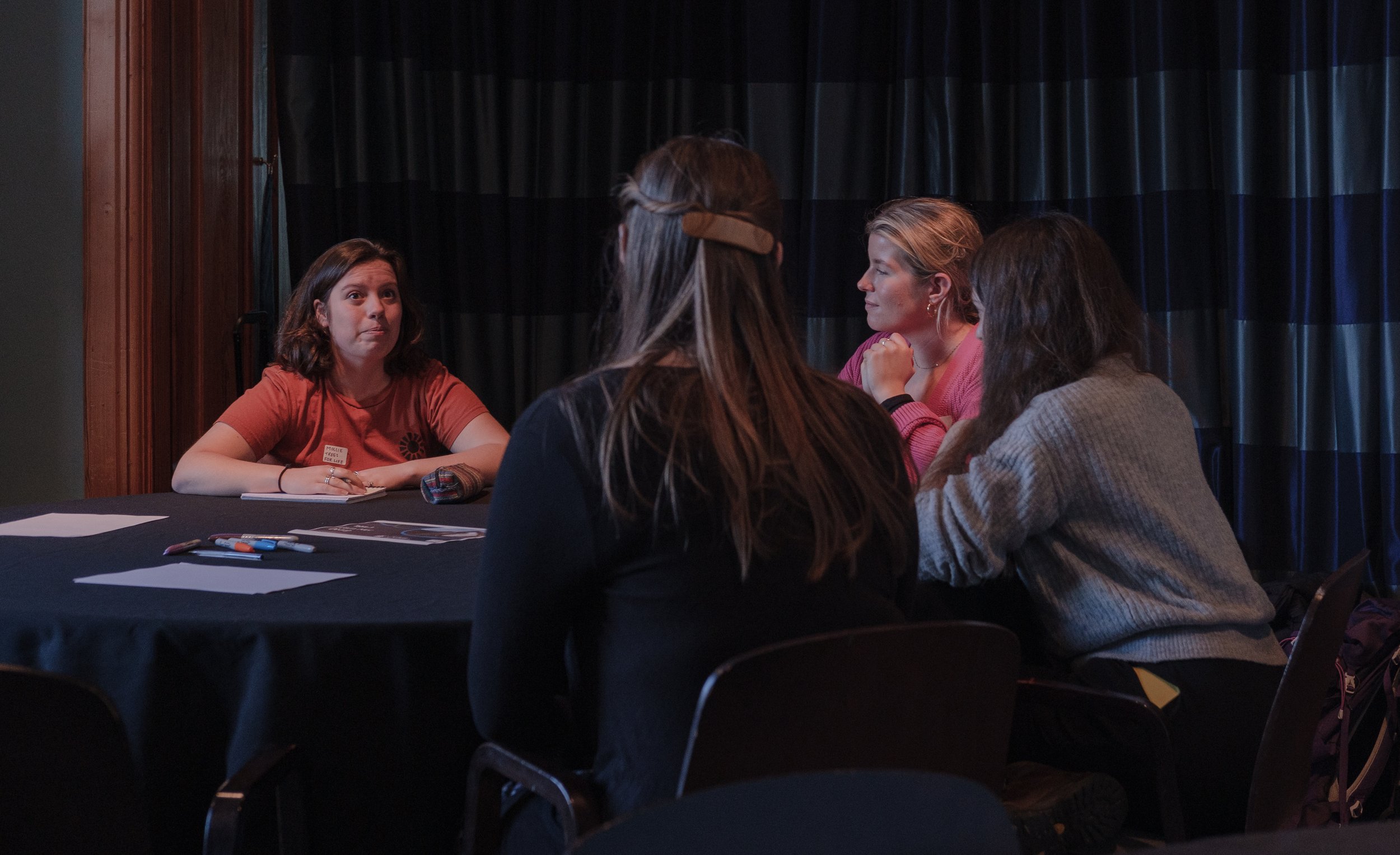
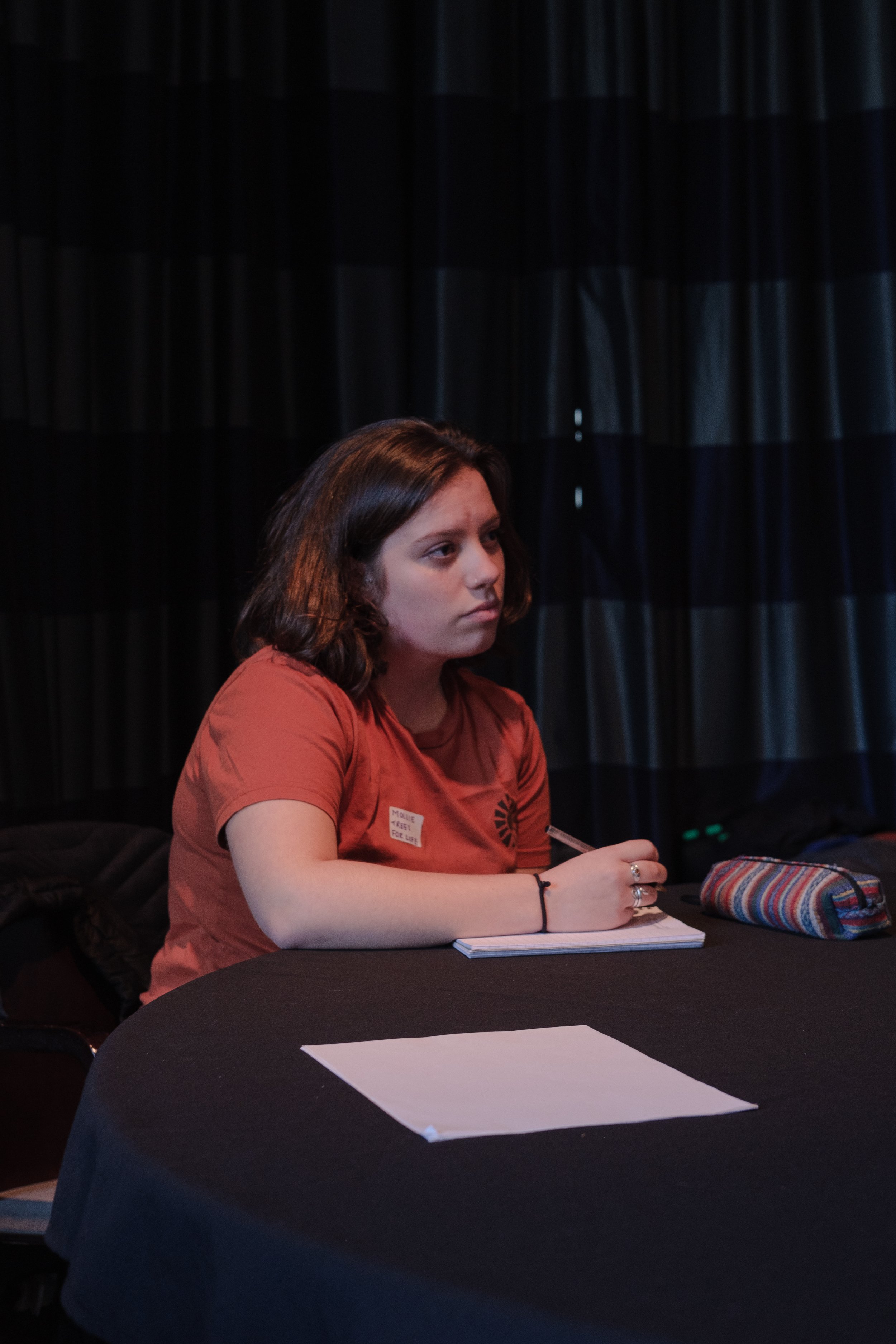
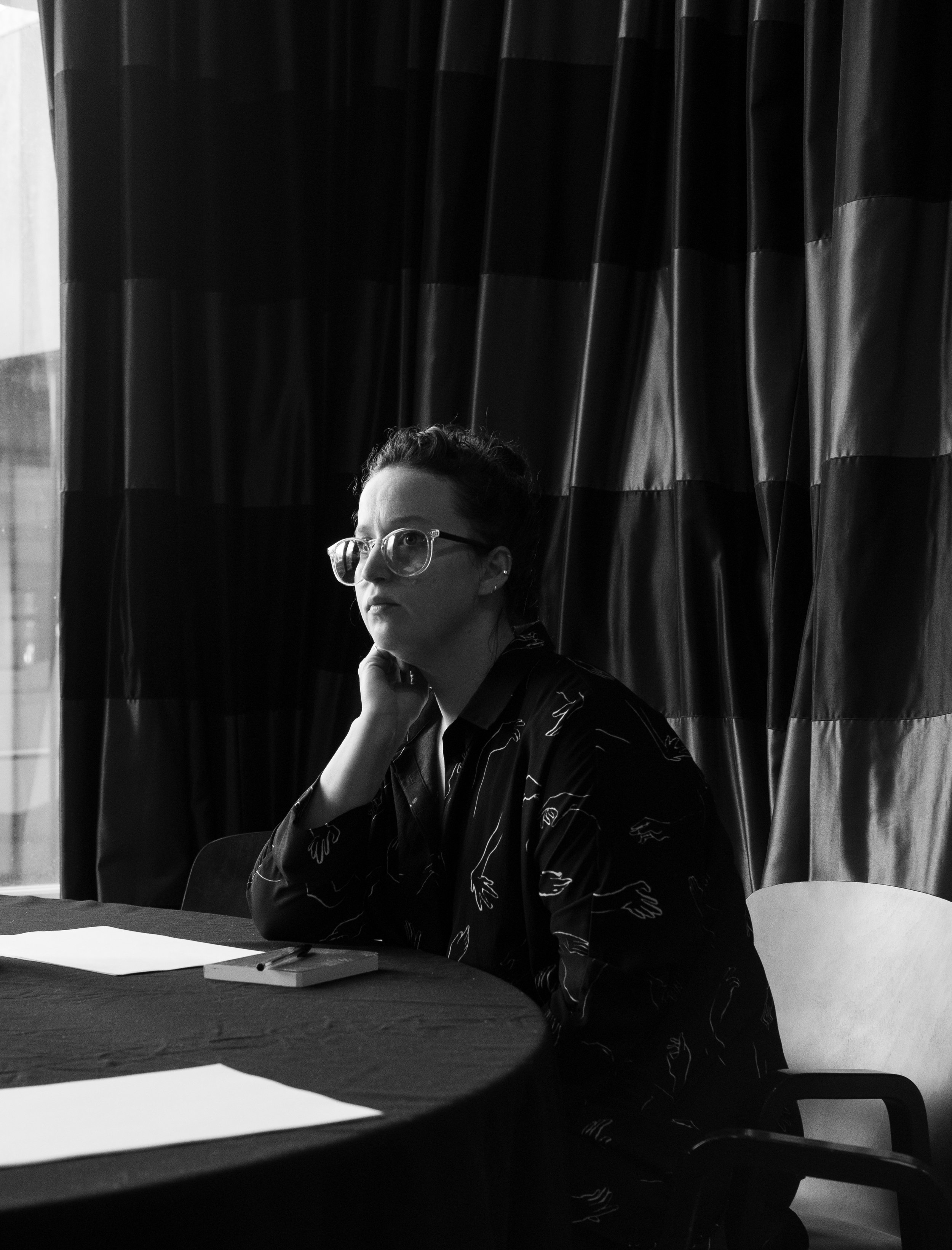
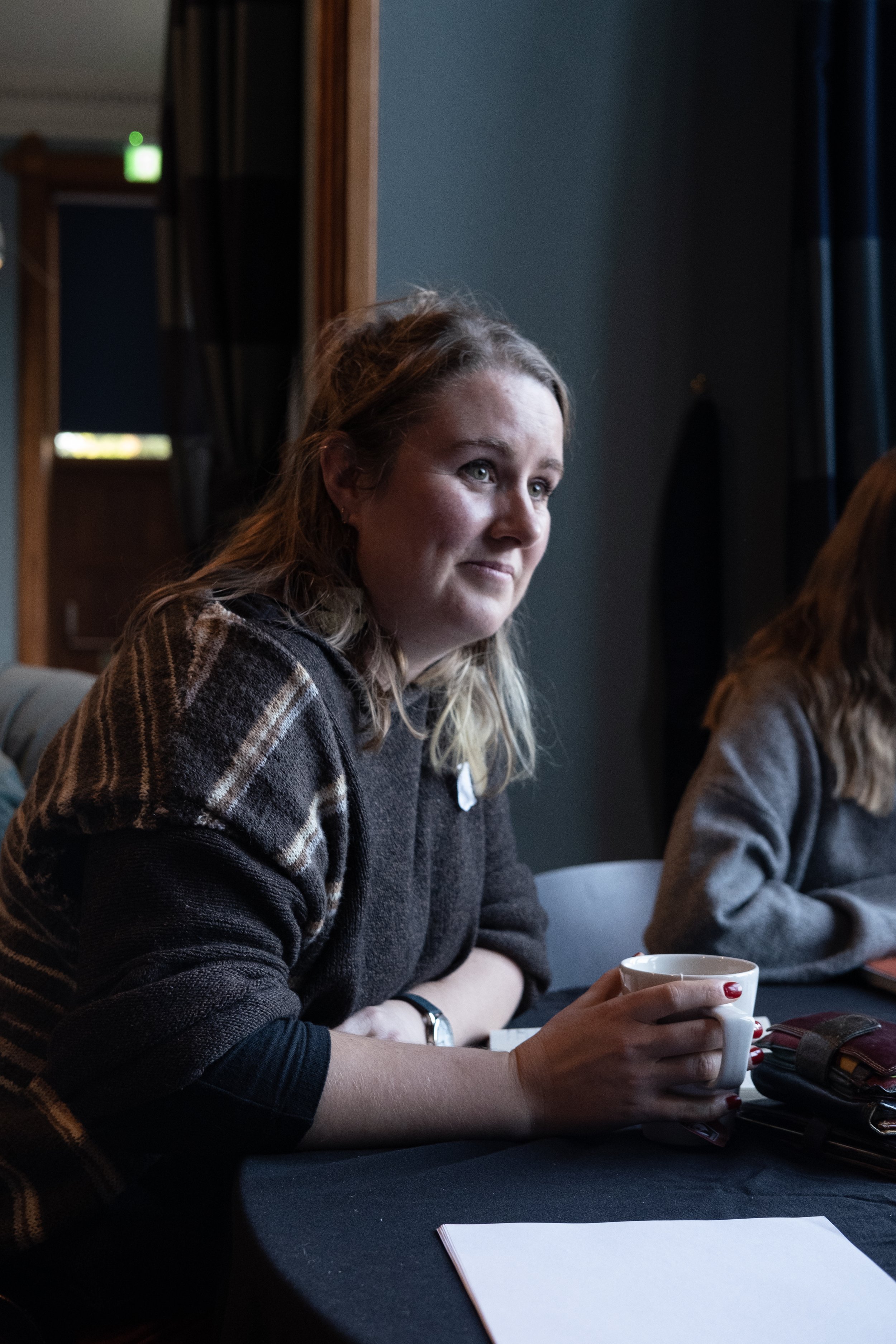
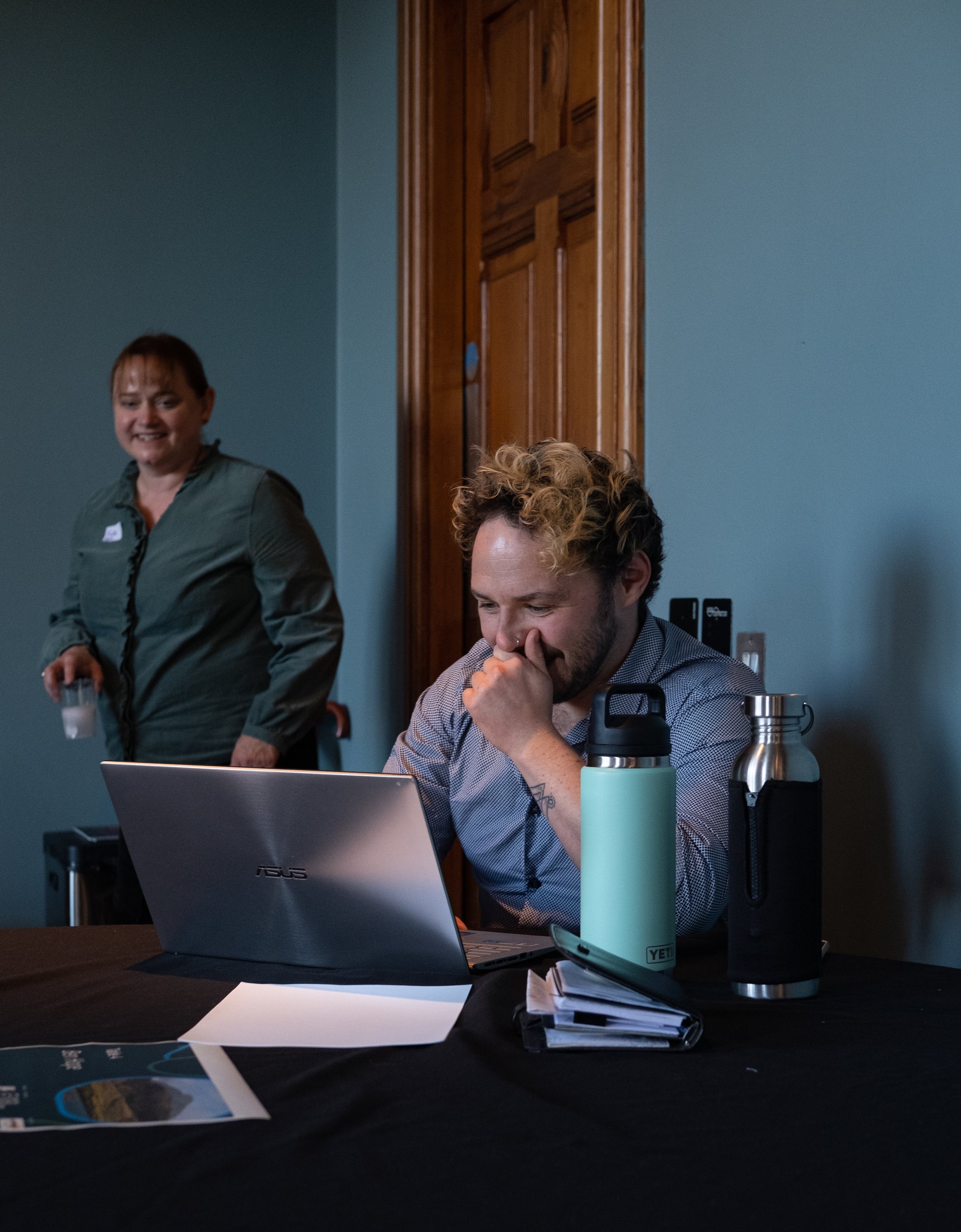
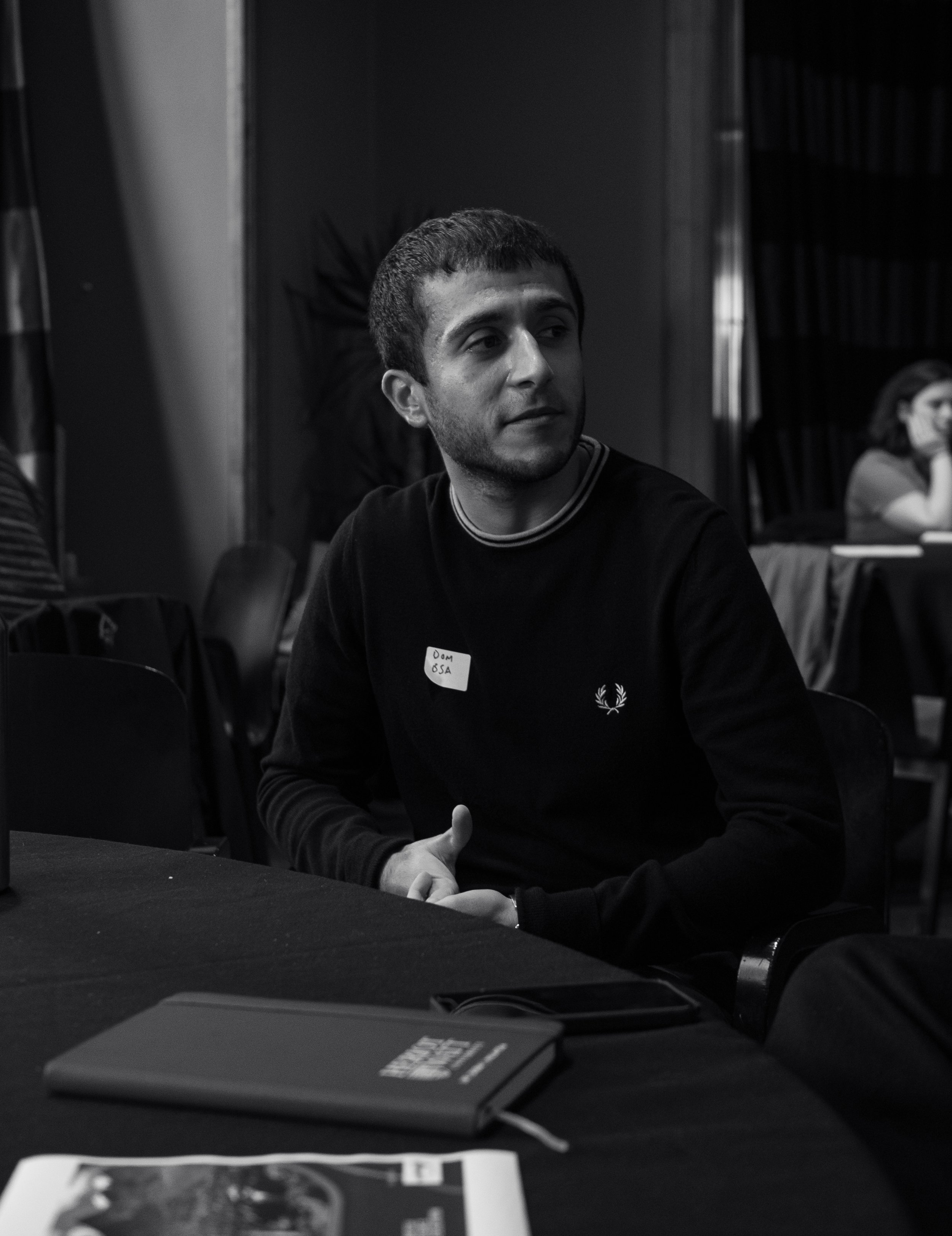
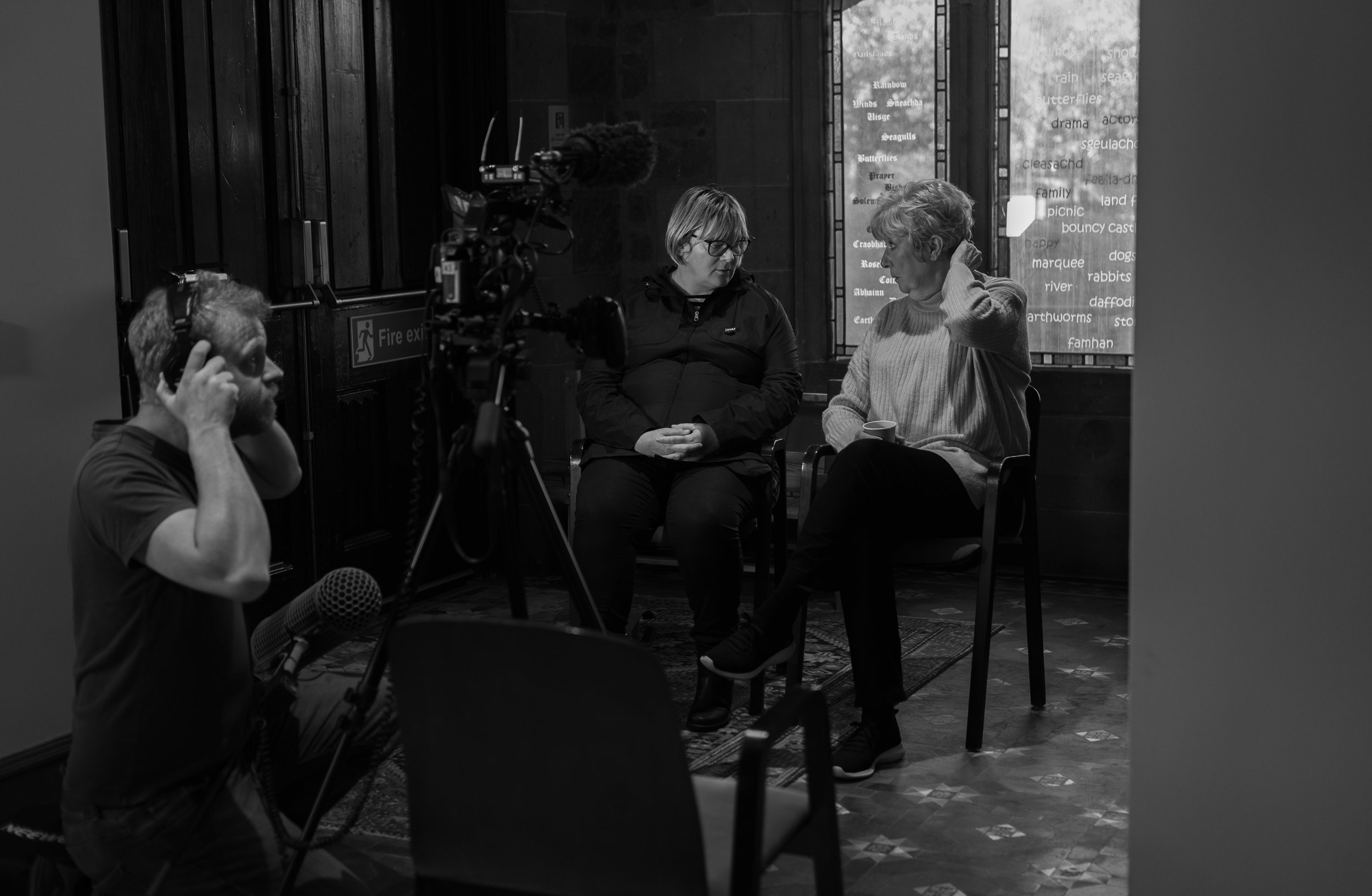
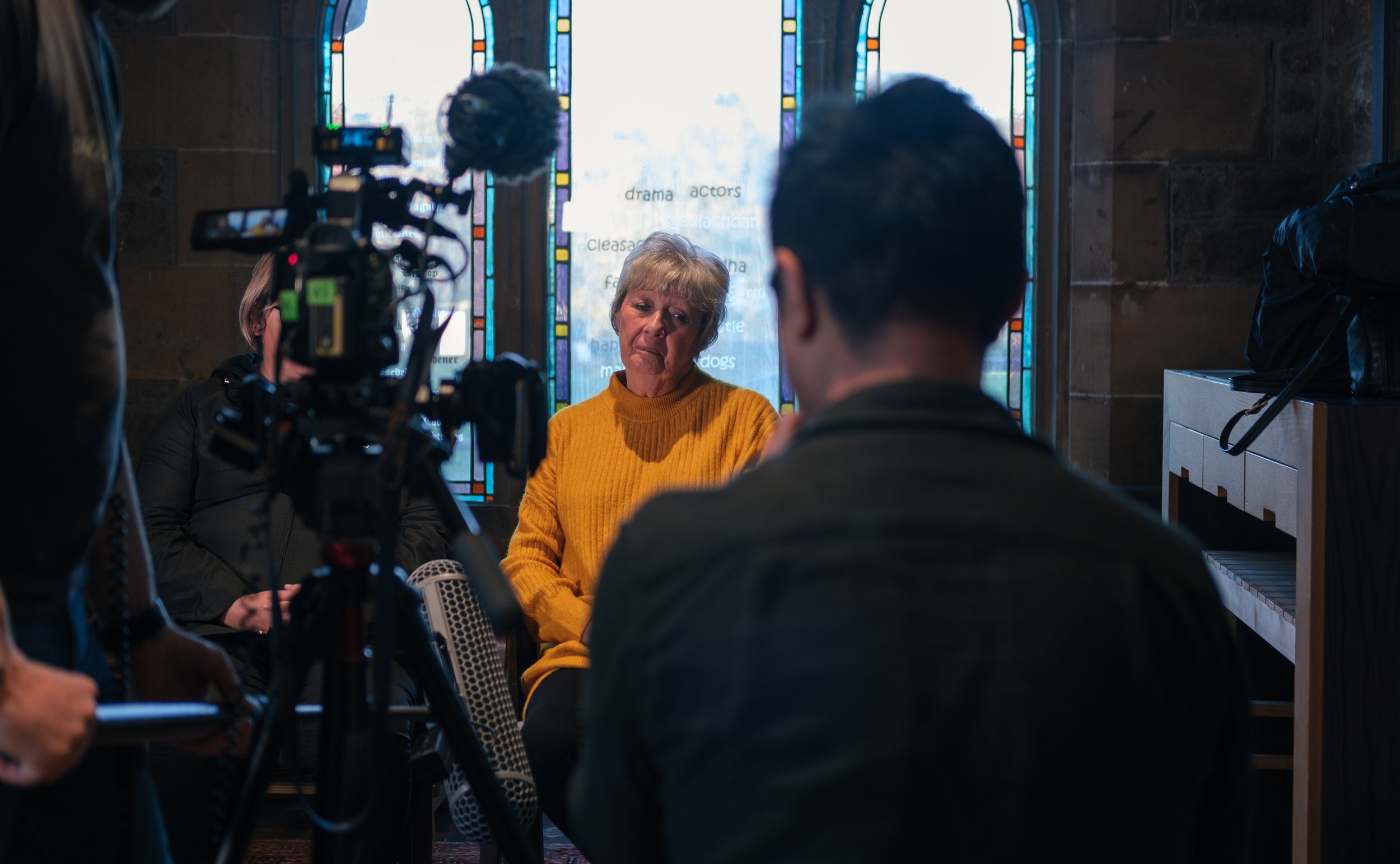
Raasay community CLIMAVORE citizen science event, July 2022. Credit: Jordan Young
Recorded webinar giving details of the grant, the application process, and the researcher matching process.
PDF version of the slides available here.
